|

HOME |
ABOUT | INDEX |
NEWS |
FACEBOOK |
CONTACT
BLACK
LIVES MATTER
African
American | Black History
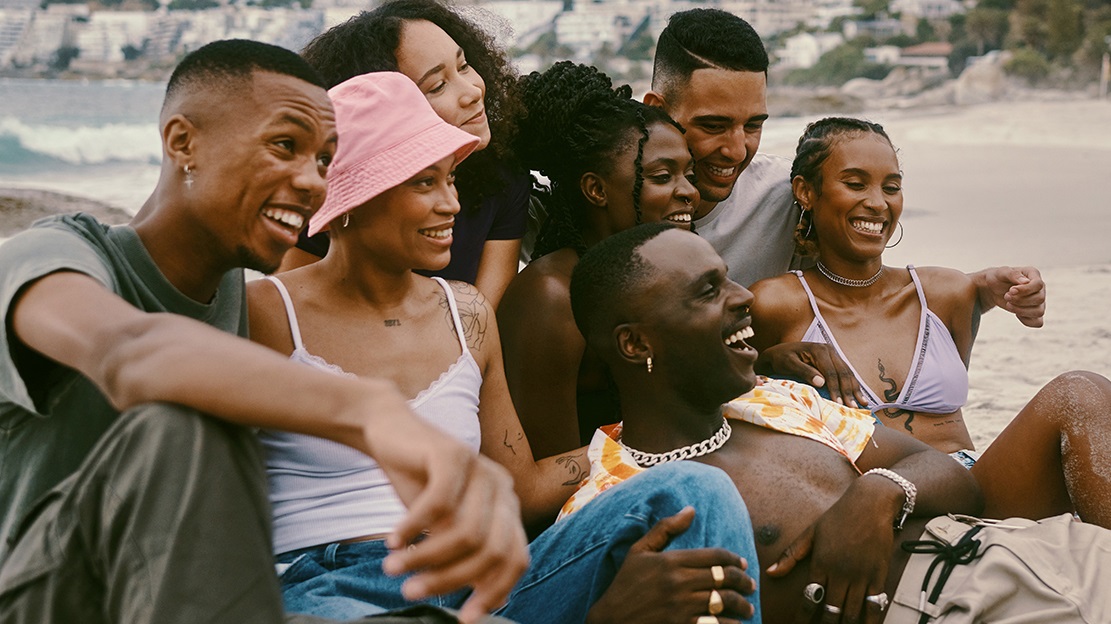
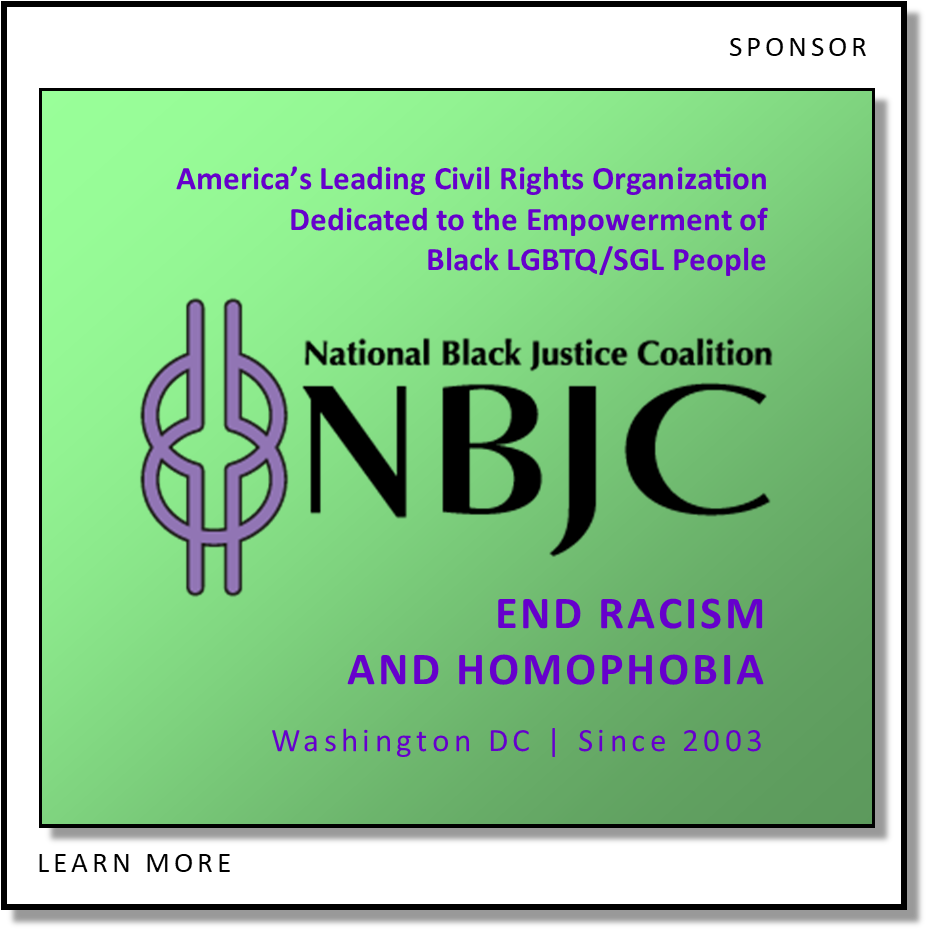
Hispanic|Latinx
Arab|Muslim|Middle East
Asian|Pacific
Indian|Hindu|Sikh
Jewish|Israeli
Diversity|Inclusion

Global Black
Pride Event Comes to Atlanta for 2024
The
city will sizzle this summer as the first US city to
host the global event..
Global Black Pride announced Atlanta will host its
first-ever US event later this year. The event will host
events empowering the Black queer experience, as well as
dance parties and musical events Atlanta Global Black
Pride 2024 takes place August 27 to September 2.
“We are honored and excited to bring Global Black Pride
to the United States for the first time, choosing
Atlanta as our host city,” Micheal Ighodaro, President
of Global Black Pride, said in a statement. “Known for
its deep roots in civil rights history and a vibrant
sense of community, Atlanta is the ideal location to
celebrate our diversity, resilience, and the ongoing
fight for equality and justice,”.
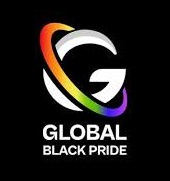
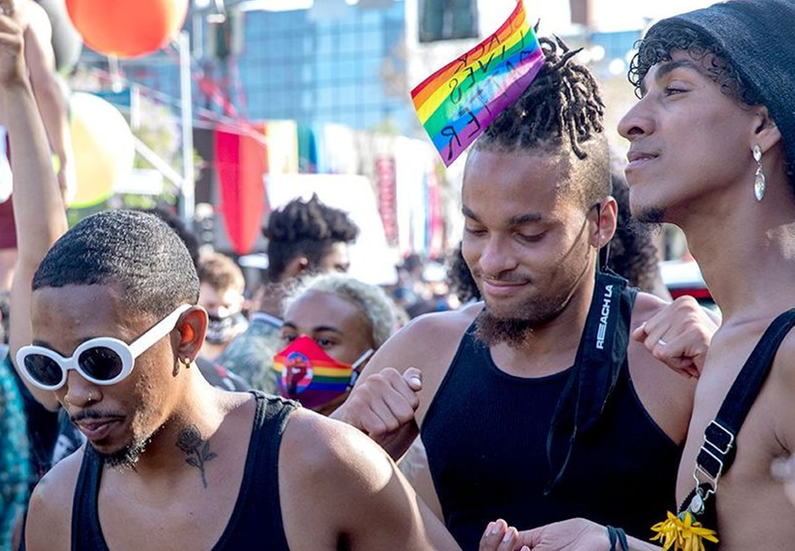
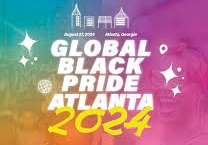
“Atlanta proudly stands as the LGBTQ capital of the
south and a champion for human rights, not only in our
region but on a global scale,” Malik Brown, the City’s
Director of LGBTQ Affairs, said in a statement. “We are
honored to welcome the first-ever Global Black Pride
gathering in the United States to the vibrant City of
Atlanta.”
Atlanta Global Black Pride will host a series of
workshops, conferences including examining human rights,
lectures, and empowerment brunches. The event will also
feature a booze cruise, dance parties, live main stage
performances, and even Whipped University – An Erotica
Dance and Theatric Experience.
Global Black Pride was founded in 2020 in response to
the global pandemic and economic shutdown and as a means
to connect and involve an isolated Black queer
community. Global Black Pride held its first in-person
event last year in Toronto. Atlanta Global Black Pride
2024 represents the first time a US city will host the
event.
[Source: Donald Padgett, Advocate, April 2024]
Global Black Pride Comes to Atlanta for 2024
Lynae Vanee: Unchecked
Domestic Terrorism
Amazing LGBTQ People Whose Groundbreaking
Lives Helped Shape Black History
Gov Newsom Chooses Queer Democratic Activist Laphonza
Butler to Fill Feinstein’s Senate Seat
Niecy Nash and Jessica Betts: First Same-Sex Couple on
Cover of Essence Magazine
Byron Perkins, First Out Gay College
Football Player in HBCU History
2023 Emmy Awards Come With a
Historic Wave of Black Queer Firsts
Different Fight Same Goal: Black Freedom Movement
Inspired Early Gay Activists
Black LGBTQ HIV+ Americans Still Face Constant
Discrimination
To Overcome the Dangers Facing our Community, LGBTQ
Leaders Must First Look Inward
Black Lives Matter: Street Mural in Washington DC
Kellen Stancil: Dance
Performance at Stonewall Day 2020
Another BLM Street Mural:
In Front of Trump Tower in NYC
Two Gay Black New Yorkers
Running for US Congress
Country Music Responds:
Dixie Chicks and Lady Antebellum Change Their Names
Black Voices
"No pride for some of us without liberation for all
of us."
-Marsha P
Johnson
"Injustice anywhere is a threat to justice
everywhere. We are caught in an inescapable network of
mutuality, tied in a single garment of destiny. Whatever
affects one directly, affects all indirectly."
-Dr Martin
Luther King Jr
"When injustice becomes law, resistance becomes
duty."
-Thomas
Jefferson, US President
"When
we see something that is not right, not fair, not
just... we have a moral obligation to say
something, do something, get in trouble, good trouble,
necessary trouble."
-Congressman John Lewis, Civil Rights Icon
"It is certain, in any
case, that ignorance, allied with power, is the most
ferocious enemy justice can have."
-James Baldwin
"We need, in every community, a group of angelic
troublemakers. When an individual is protesting
society's refusal to acknowledge his dignity as a human
being, his very act of protest confers dignity on him."
-Bayard Rustin, Civil Rights Activist with MLK
"We
cannot give up. We cannot give out. We cannot give in."
-Congressman John Lewis, Civil Rights Icon
"Rights are won only by those who make their voices
heard."
-Harvey Milk
Would Martin Luther King Jr Have Fought for LGBTQ
Rights?
Jay-Z’s Mom Gloria Carter Marries Longtime Girlfriend
Karine Jean-Pierre: Gay Black White House Press
Secretary
Why Juneteenth, Now a Federal Holiday, Is So Significant
Critical Race Theory: What it is and What it is Not
NBC: Pres Biden Signs Law Making Juneteenth National
Holiday
Celebrating Juneteenth:
Things to Think About
VP Mike Pence Cannot Say:
Black Lives Matter
Thousands Gather for BLM and LGBTQ Pride March
CNN Commentator: Hard
Being Black in America
Black Lives Matter: Peaceful Demonstrations
Black Lives Matter Foundation Wins Human Rights Prize
The Love: Black Eyed Peas,
Jennifer Hudson, Joe Biden
BLM and Pride 2020: Still We
155th Anniversary of
Juneteenth
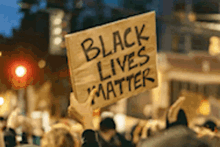
Black Lives Matter
"Black
people! I love you! I love us! Our lives matter! Black
lives matter!"
-Alicia
Garza, Co-Founder of Black Lives Matter Movement,
Creator of BLM Slogan
There is
an identification of a shared struggle between the
African-American and LGBTQ communities. The recent rash
of killings of black people parallels the recent rash of
killings of transgender people. The injustice
experienced by the black community mirrors the injustice
experienced by the LGBTQ community. Alicia Garza, one of
the founders of the BLM movement, is a queer woman of
color who understands discrimination as a black person
and as a queer person. It was Alicia who coined the
"Black Lives Matter" slogan. There is a real
sense of solidarity between the LGBTQ Pride movement and
the Black Lives Matter movement.
When the Covid-19 pandemic began, most LGBTQ
celebrations were canceled. But with protests across the
world drawing attention to police brutality
and the systemic racism facing the black community, many
of the organizations behind Pride festivals are
re-engaging their plans and pivoting to join the protest
movement.
"We affirm
the lives of Black queer and trans folks, disabled
folks, undocumented folks, folks with records, women,
and all Black lives along the gender spectrum. Our
network centers those who have been marginalized within
Black liberation movements. We are working for a world
where Black lives are no longer systematically targeted
for demise. We affirm our humanity, our contributions to
this society, and our resilience in the face of deadly
oppression. The call for Black lives to matter is a
rallying cry for ALL Black lives striving for
liberation."
-Black
Lives Matter
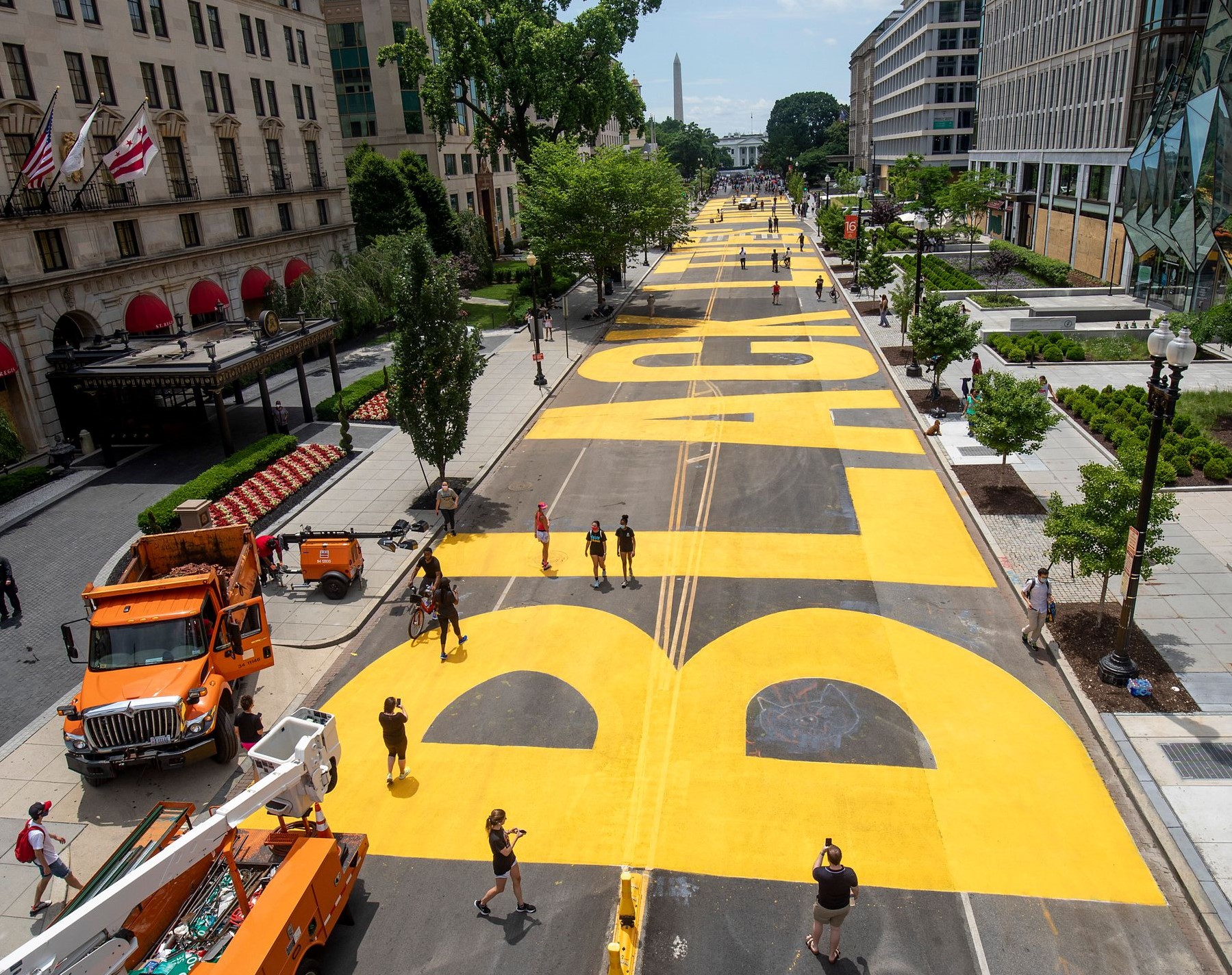
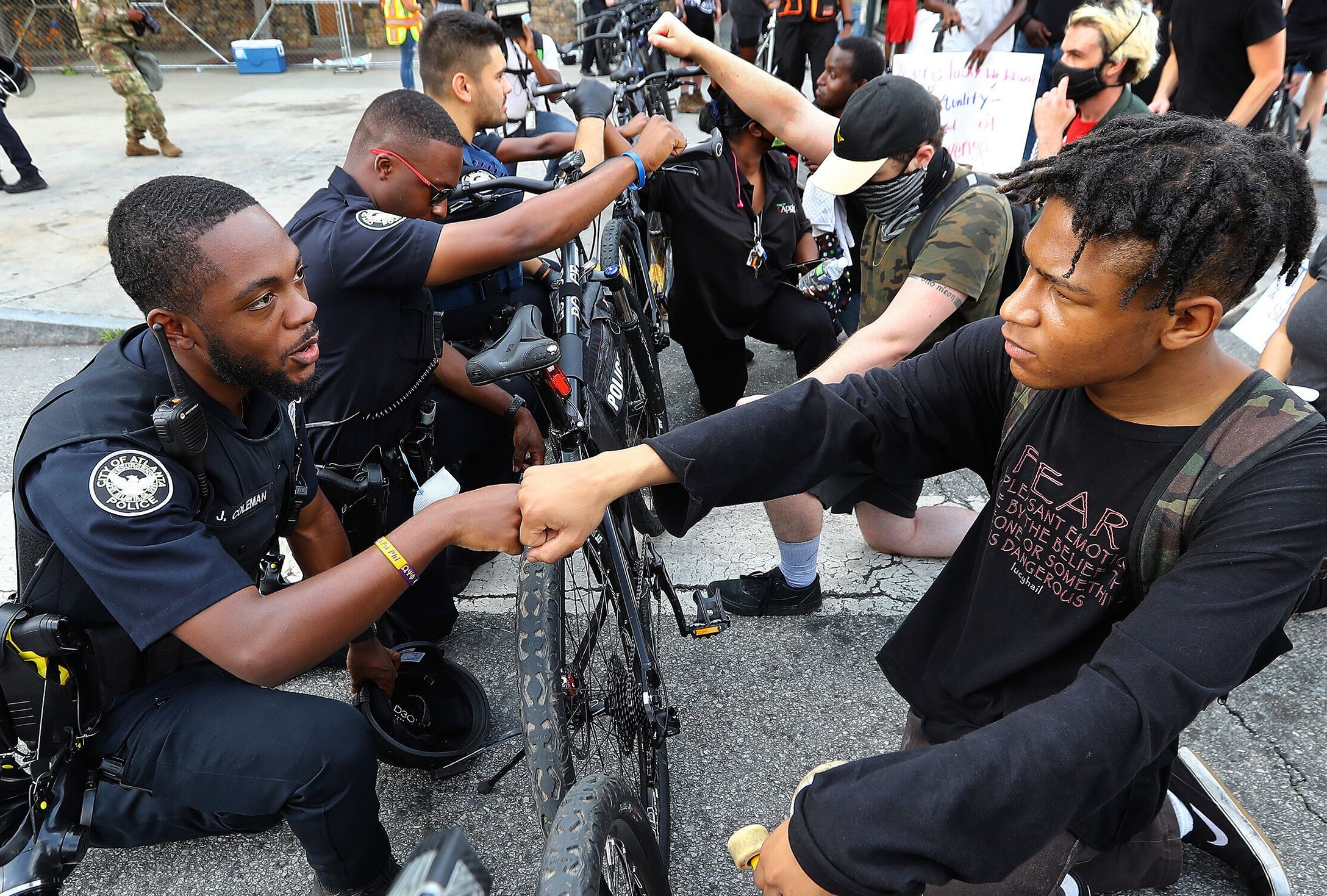
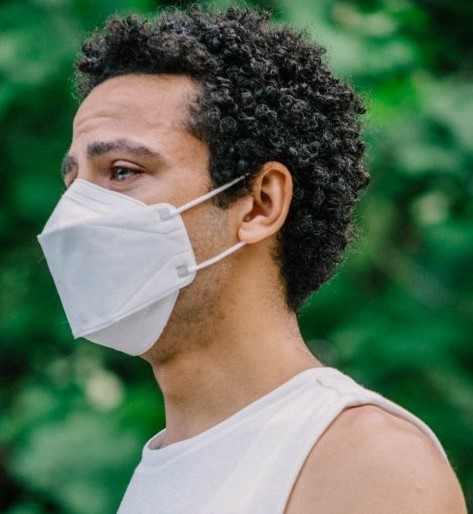
A Hug From John Lewis
John Lewis: Wake Up
America
Inspiring Legacy:
Congressman John Lewis
Rep. John Lewis: Emory
Commencement Address 2014
Patrisse Cullorss, BLM Co-Founder:
Ongoing Fight for Racial Justice
Alicia Garza, BLM
Co-Founder: Bringing Black Queer Folks to the Polls
In Lieu of Pride Parade:
Thousands Attend Vigil for Black Trans Lives
Thousands Demonstrate in
NYC: Support Black Trans Lives
Protest Led by LGBTQ
Support for Black Lives Matter
Bayard Rustin: Martin Luther King’s Views on Gay People
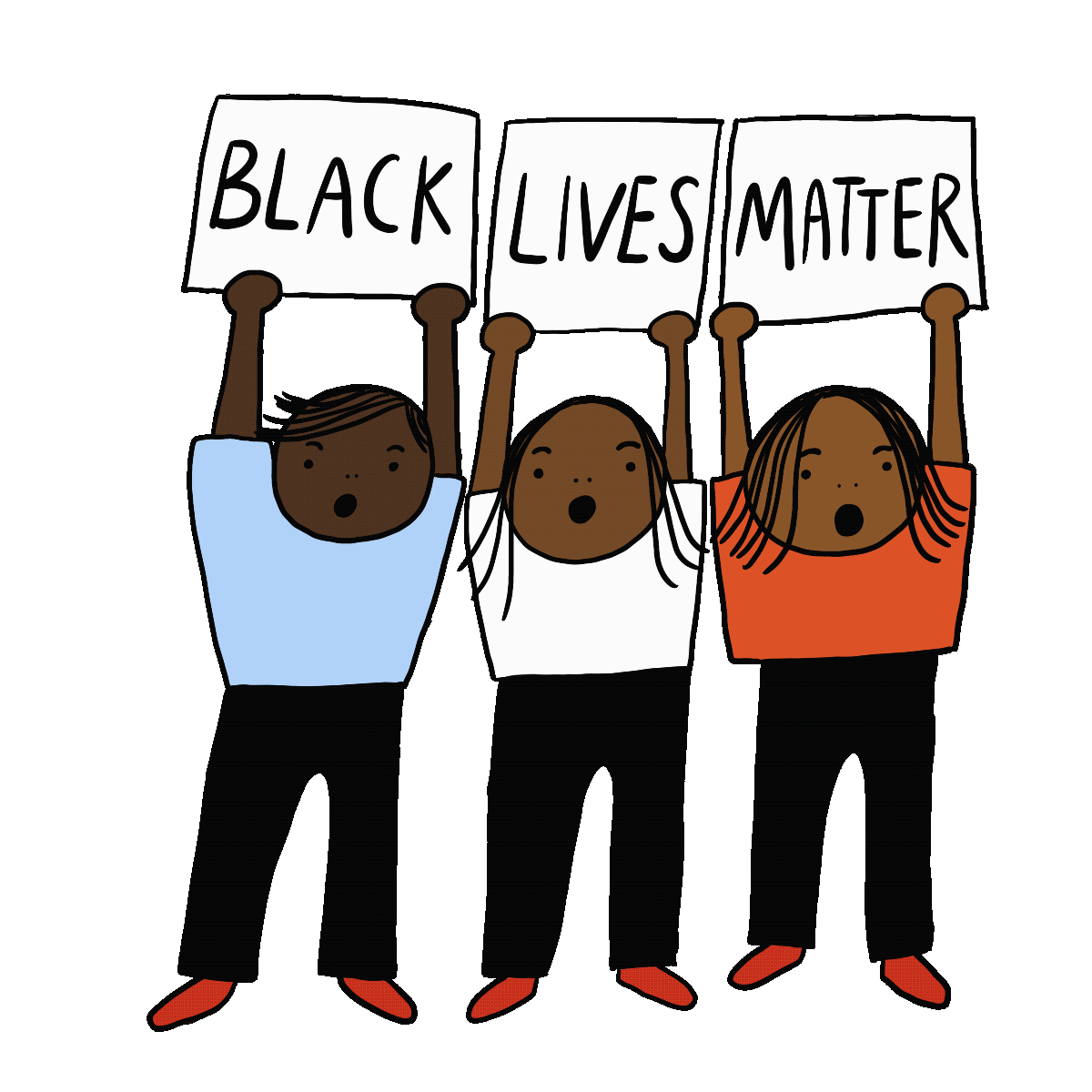
Lynae Vanee: Unchecked
Domestic Terrorism
Black Lives Matter: LGBTQ
Roundtable
Inspiring Legacy:
Congressman John Lewis
Civil Rights Icon John
Lewis Passes Away at 80
Increasing Connection
Between LGBTQ Community and Black Lives Matter
Laverne Cox on Black
Transgender Lives
Andrea Jenkins of
Minneapolis City Council: Speaking About George Floyd
Black Gay Journalist, Keith Boykin, Arrested at George
Floyd Protest
LGBTQ Pride Festivals
Become Black Lives Matter Protests
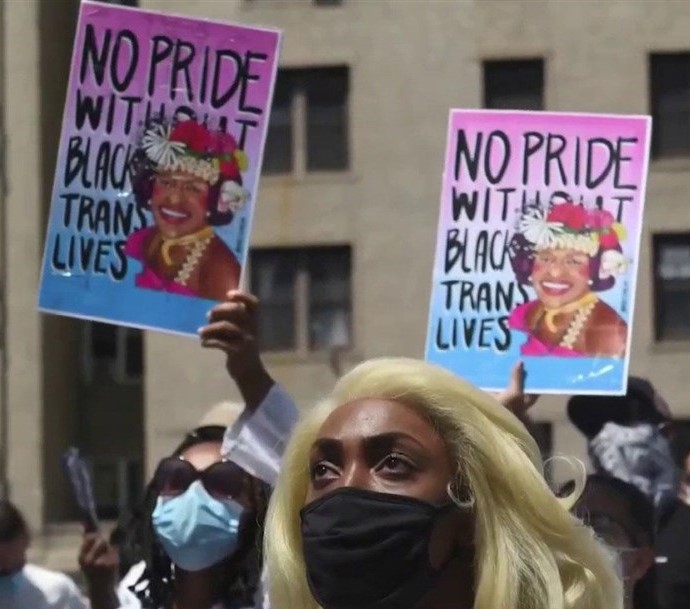
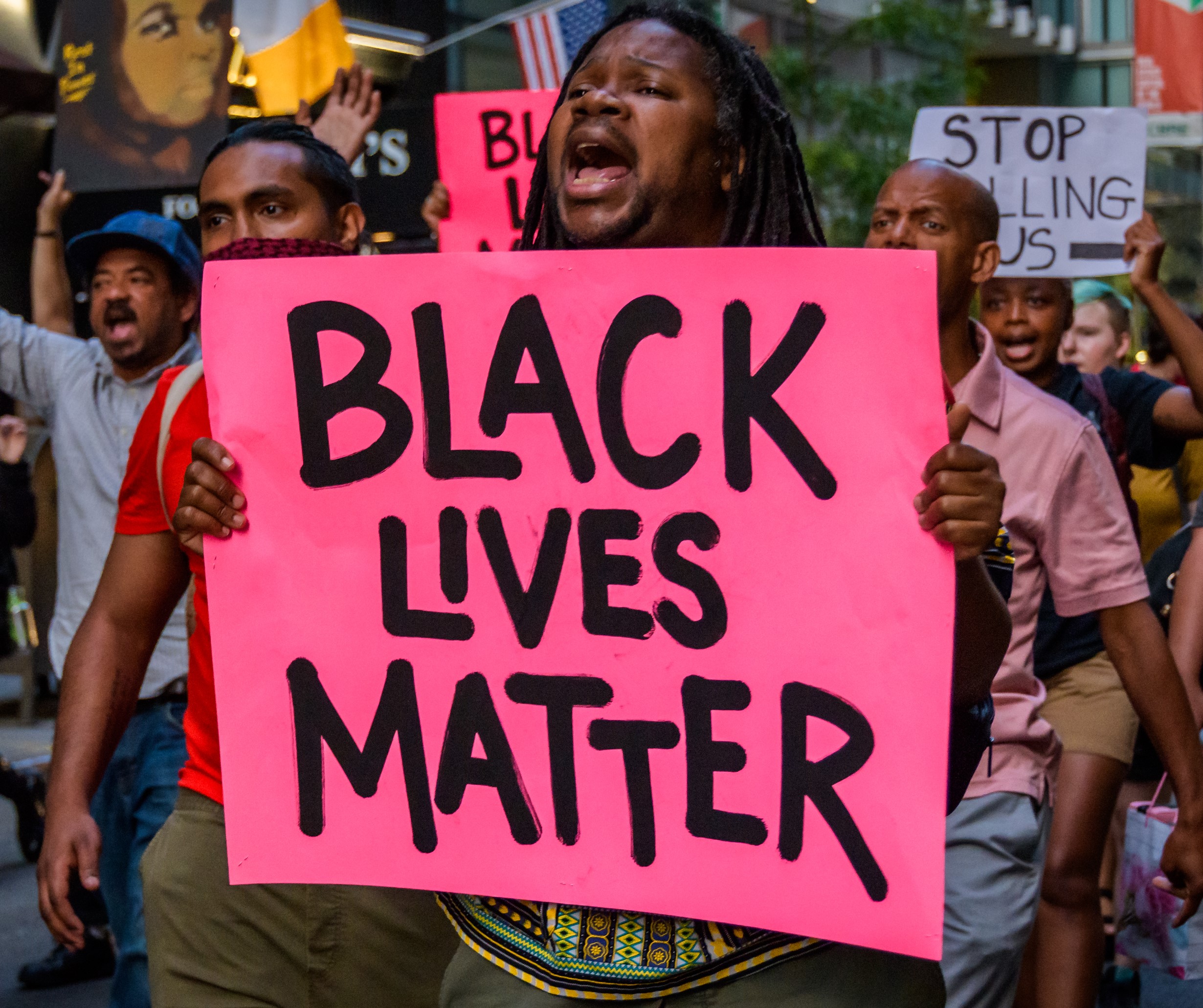
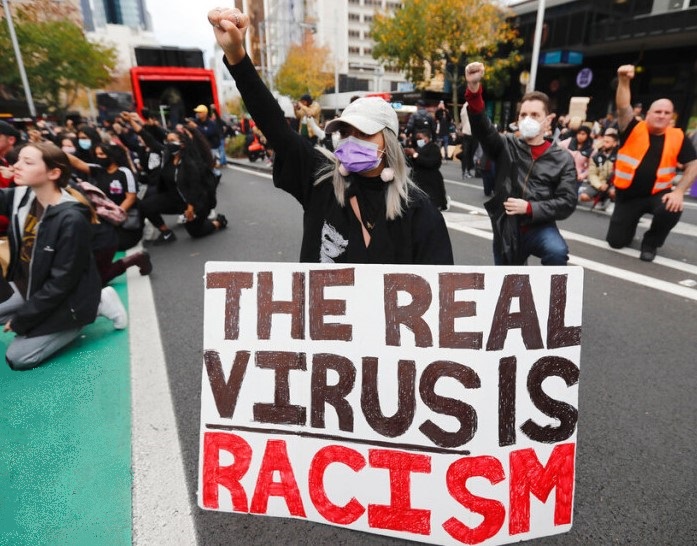
Martin Luther
King and the LGBTQ Community
What
does Dr. Martin Luther King Jr. mean to the LGBTQ
community?
Dr. Martin Luther King Jr. holds a significant and
enduring place in history for his pivotal role in the
American Civil Rights Movement, advocating for racial
equality and justice. While his primary focus was on
racial issues, his legacy extends beyond that,
resonating with various marginalized communities,
including the LGBTQ community.
Dr. King's philosophy and principles centered around the
idea of equality, justice, and the inherent dignity of
all individuals. His famous "I Have a Dream" speech
outlined a vision where people would be judged by their
character rather than the color of their skin. This
message of inclusivity and equal treatment transcends
racial boundaries and aligns with the struggles faced by
the LGBTQ community.
The LGBTQ community, like other marginalized groups, has
fought for equal rights and recognition. Dr. King's
teachings, emphasizing the importance of justice and
fairness for all, become a source of inspiration for
those advocating LGBTQ rights. The principles he
championed create a framework that supports the broader
concept of human rights, acknowledging the struggles
faced by various communities.

Op-Ed: Would Martin Luther King Jr Have Fought for LGBTQ
Rights?
Chicks Sing March March on
Stephen Colbert Show
Bayard Rustin: Martin Luther King’s Views on Gay People
Merging of Two Movements: LGBTQ Pride and Black Lives
Matter
About the Black Lives
Matter Movement
Amazing LGBTQ People Whose Groundbreaking
Lives Helped Shape Black History
Black Lives Matter: Around
the World
Sam Cooke: A Change is Gonna Come
Furthermore, Dr. King's commitment to nonviolent
resistance has been a guiding light for many movements,
including those advocating for LGBTQ rights. The idea of
peaceful protest and civil disobedience as powerful
tools for social change has been adopted by activists
within the LGBTQ community, mirroring the strategies
employed during the Civil Rights Movement.
It's important to note that Dr. King did not explicitly
address LGBTQ issues during his lifetime, as the
specific struggles faced by the LGBTQ community gained
prominence in the years following his death. However,
the overarching principles he advocated – equality,
justice, and the rejection of discrimination – provide a
moral and philosophical foundation for the ongoing fight
for LGBTQ rights.
Dr. Martin Luther King Jr. serves as a symbol of hope,
inspiration, and a model for advocacy not only for
racial justice but also for the broader pursuit of equal
rights and recognition for all marginalized communities,
including the LGBTQ community. His teachings continue to
resonate and influence those striving for a society that
upholds the principles of equality, justice, and dignity
for every individual.
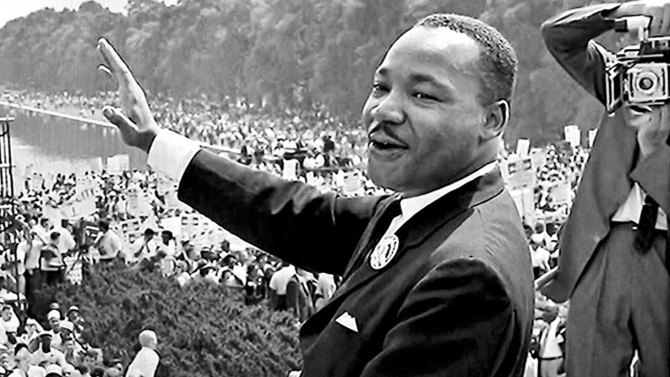
Racial Beginners
National Black Justice
Coalition
When Black Lives Matter
Meets LGBTQ Pride
American Black Film Festival Highlights
LGBTQ Storytelling
Black and LGBTQ:
Approaching Intersectional Conversations
Tyler Perry: Black Lives
Matter Hero
Remembering George Floyd
Black Lives Matter: Painted on DC Street Leading to the
White House
Actor Justice Smith Comes
Out: Supports BLM and QPOC
Being Black is Not a Crime
International Demonstrations: BLM Goes Global
Black Lives Matter: Peaceful Demonstrations
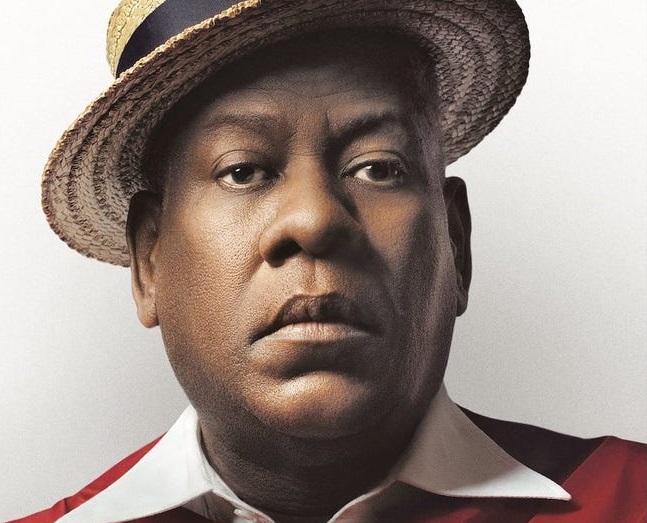
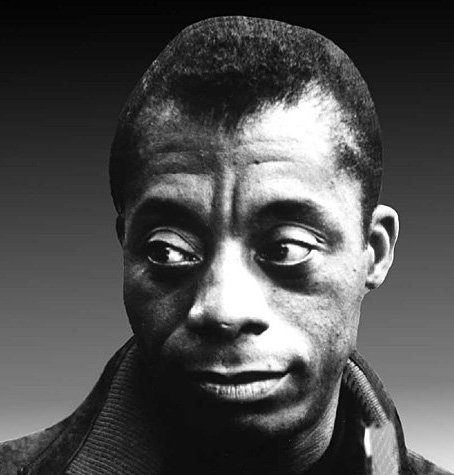
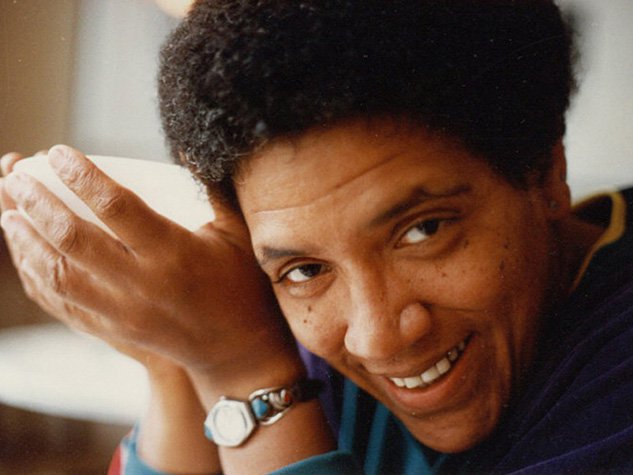
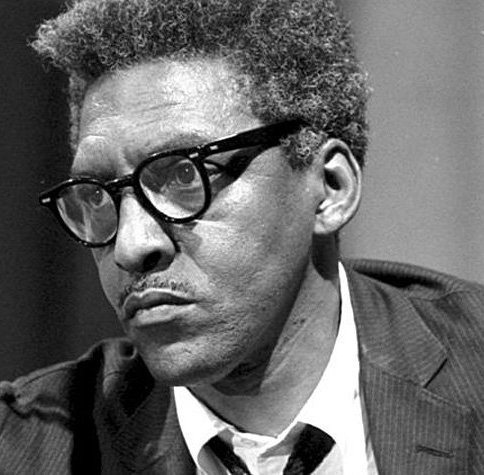
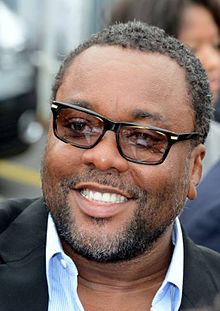
Black LGBTQ
Celebrities
Audre
Lorde - Essayist, Poet
James
Baldwin - Novelist, Playwright
Angela
Davis - Activist, Scholar, Author
Sylvester
- Disco Music Artist
Michael
Sam - Football Player
Josephine
Baker - Singer, Dancer, Actor
Don Lemon
- Journalist
Alphonso
David - Lawyer, Activist
Lori
Lightfoot - Mayor of Chicago
Benjamin
Banneker - Mathematician
Alice
Walker - Novelist, Poet
Langston
Hughes - Writer
Billy
Preston - R&B Musician
Keith
Green - Activist
Larnzell
Martin - Judge
LZ Granderson - Journalist
Bell Hooks
- Writer
Billie
Holiday - Jazz Singer
 |
Bayard
Rustin - Civil Rights Organizer, Advisor to MLK
George
Bellinger Jr - AIDS Activist
Alicia
Garza - Co-Founder of Black Lives Matter
John
Holiday - Opera Singer
Lorraine
Hansberry - Author of "Raisin in the Sun"
Karine Jean-Pierre - White House Press Secretary
Samantha
Irby - Author
Emile
Griffith - World Champion Boxer
Leslie
Herod - Politician
Ma Rainey
- Blues Singer
Patrisse
Cullors - Co-Founder of Black Lives Matter
Kehinde
Wiley - Artist
Carl Bean
- Archbishop
Randall Kenan - Author
Bill T Jones - Dancer, Choreographer
Carl Phillips - Poet
Charles
Montorio-Archer - Business Executive
Michael
Twitty - Chef
Laphonza Butler - First Black LGBTQ
Person in US Senate
 |
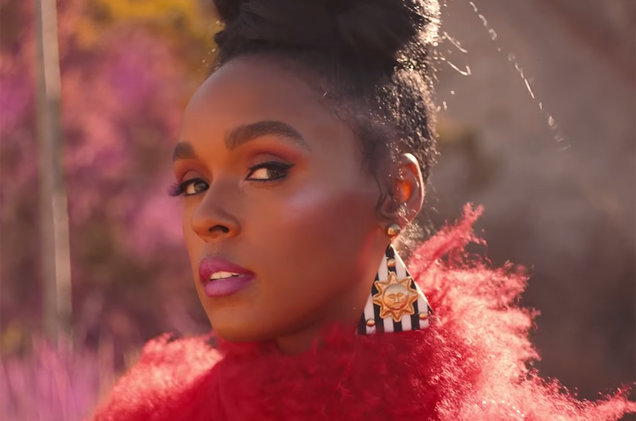
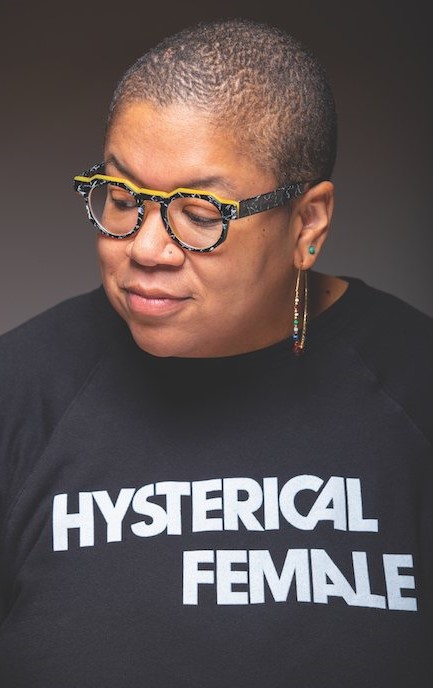
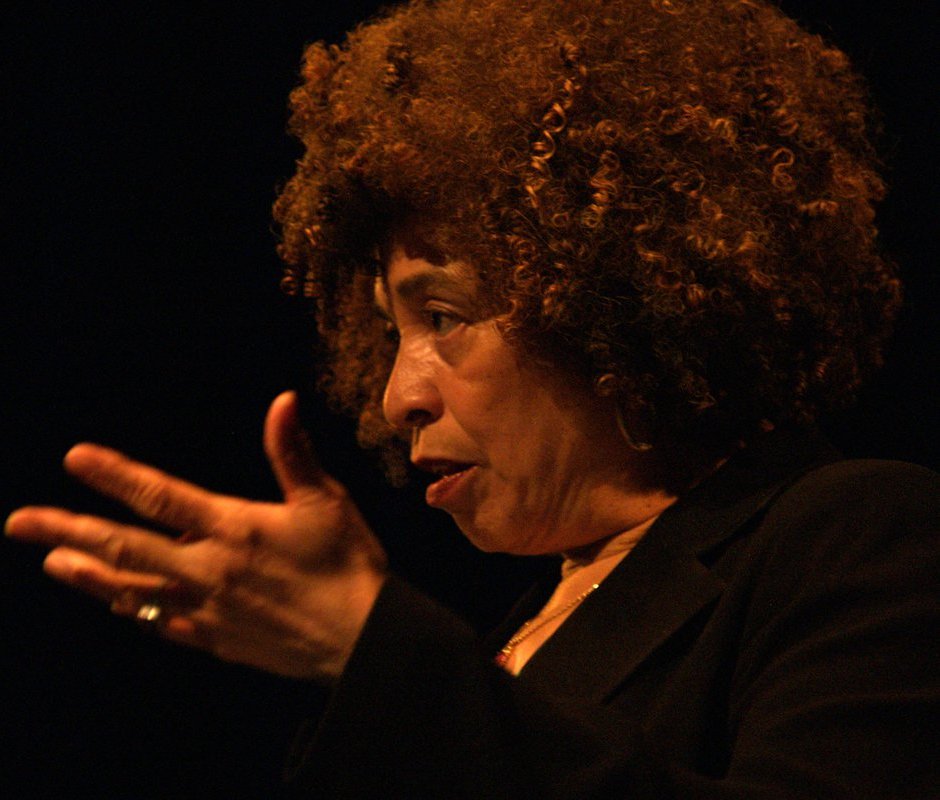 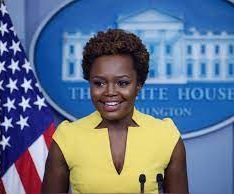 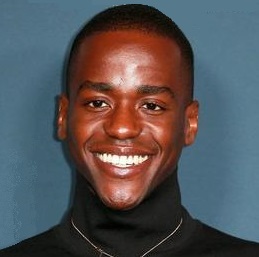
Laphonza Butler: California's New, History-Making US
Senator
When Black Lives Matter
Meets LGBTQ Pride
Cat Ndivisi: We Need to
Talk
Solidarity: Los Angeles Pride Supports Black Lives
Matter
Queer Black Actors Speak
Up for Queer Black Lives Matter
James Baldwin: Heartfelt Plea for Racial Justice and
Equality
Slideshow: Black LGBTQ
People in History
Info: Discrimination,
Prejudice, Bigotry
Janelle Monae: CBS Sunday Morning Interview
PBS Video: Black Trans Woman's Journey
Growing Up Black and Gay in the South
Black Gay Comedian: Sampson McCormick
Television Shows With Excellent Black
LGBTQ Characters
Gospel Music Would Be Nothing Without
Black Queer and Trans Artists
Janet Mock
- Magazine Editor
Sheryl
Swoopes - Basketball Player
Alvin
Ailey - Dancer, Choreographer
Pat Parker
- Poet
Darnell
Moore - Writer, Activist
Barbara
Jordan - Politician
Janelle
Monae - Singer, Actor
Billy
Strayhorn - Musician
Wanda
Sykes - Comedian, Actor
Ru Paul -
Drag Queen, TV Personality
Frank
Ocean - Rapper
Glenn
Burke - Baseball Player
Indya
Moore - TV Actor, Model
André Leon
Talley - Fashion Icon, Editor
Cynthia Erivo - Actor, Singer, Songwriter
 |
Langston
Hughes - Poet, Novelist, Playwright
Raven
Symone - TV Actor
Maya Hayes
- Soccer Player
Alberta
Hunter - Blues Singer
Anita
Cornwell - Author
Todrick
Hall - Singer, Dancer
Lee
Daniels - Movie Producer, Director, Writer
Lena
Waithe - Actor, Producer, Screenwriter
Domo
Wilson - Hip Hop Artist
Peter J
Gomes - Theologian
David Kato
Kisule - Teacher, Human Rights Activist
Luther
Vandross - Singer, Songwriter
Ellis B
Hazlip - TV Producer
Chris
Dickerson - Body Builder
Jerrod
Carmichael - Comedian
 |
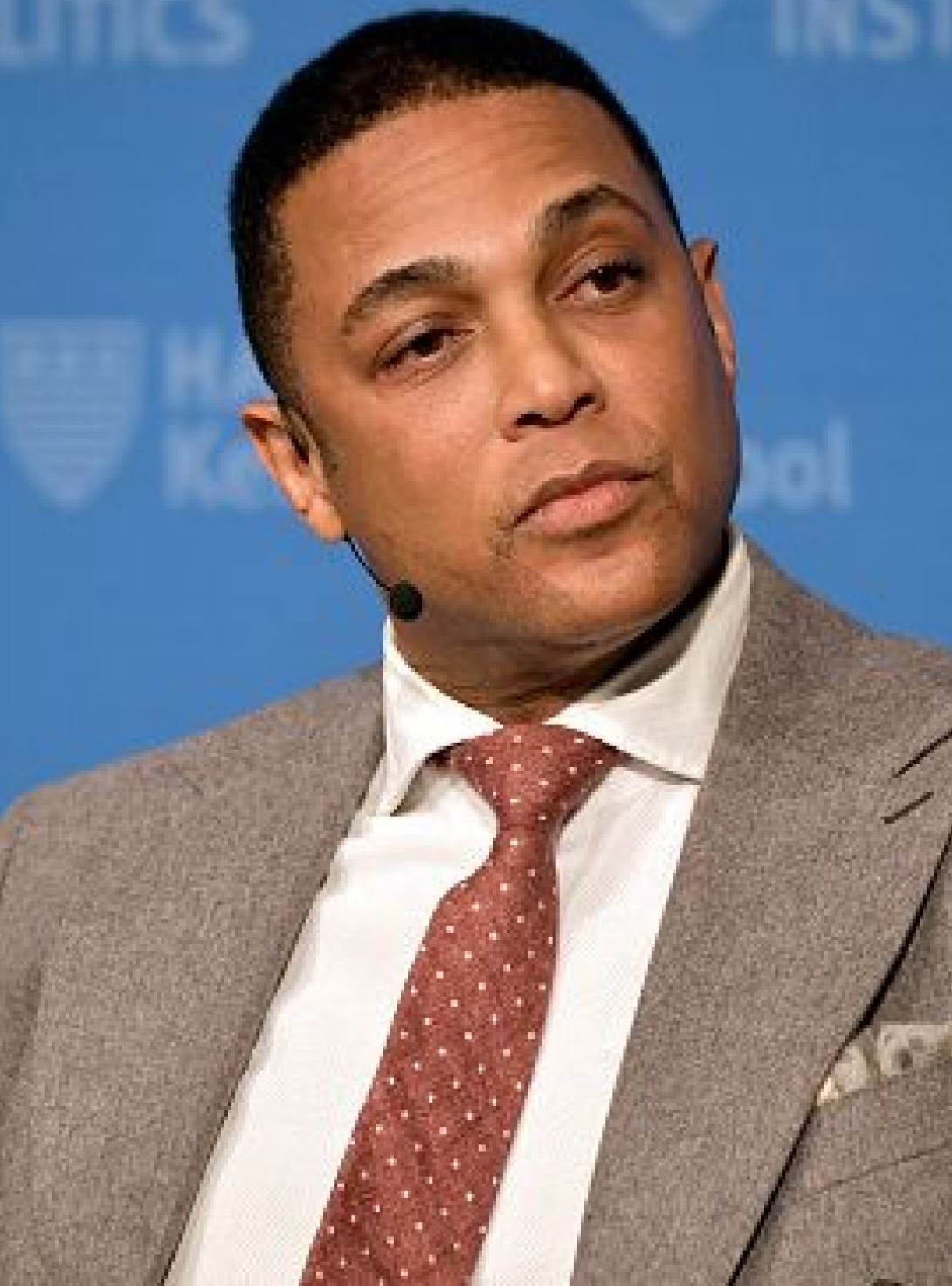
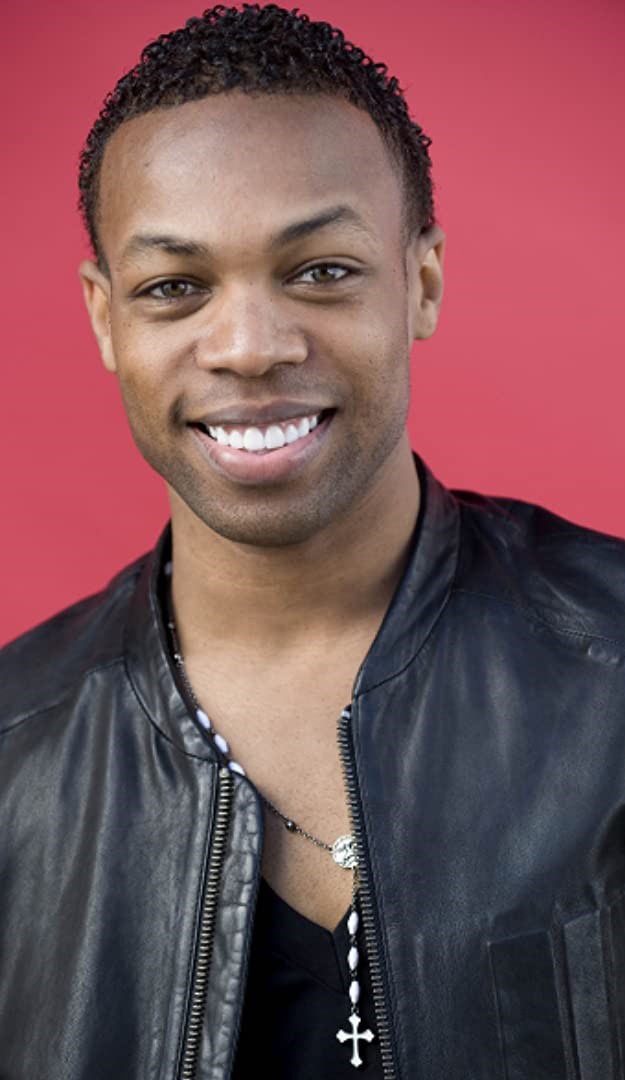
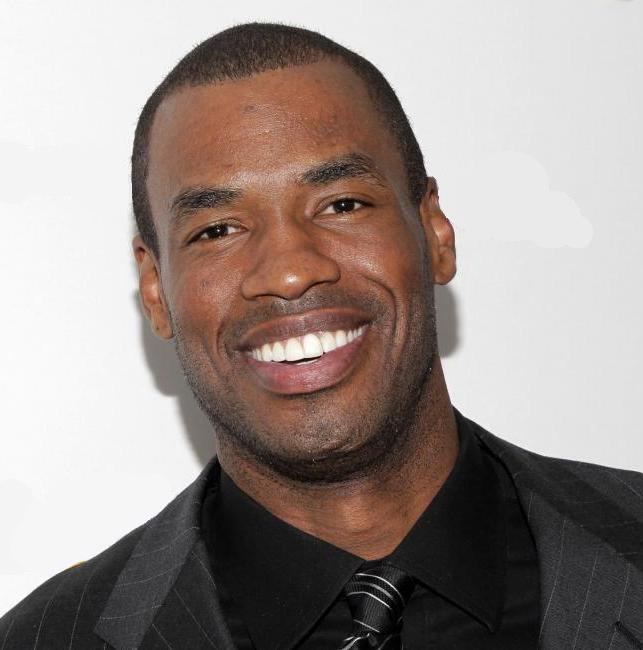
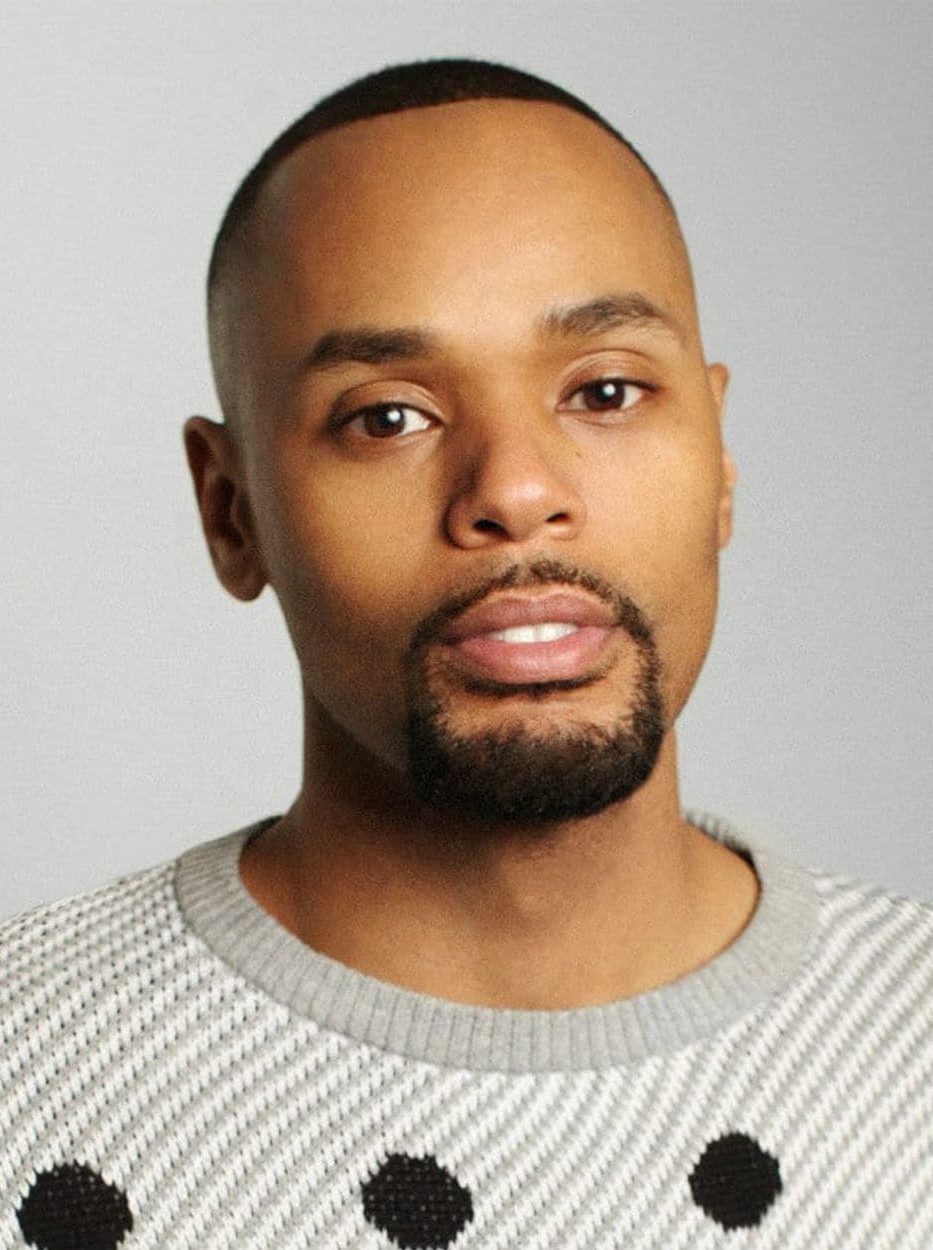
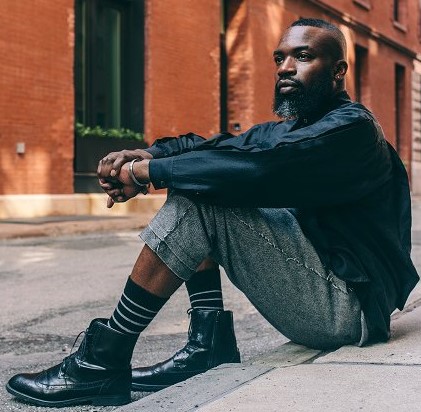
TV Shows With Excellent Black LGBTQ
Characters
Gay Black Poet Jericho
Brown: Americans Don't See Black People as Human
TED Talk: Root of Racial
Injustice
About the Black Lives
Matter Movement
Black Gay and Queer Men
From History You Should Know
Black Lesbians and Bi Women From History
You Need to Know
When Black Lives Matter
Meets LGBTQ Pride
James Baldwin: Heartfelt Plea for Racial Justice and
Equality
Black Lives Matter: Street Mural Demonstration
When Black Lives Matter
Meets LGBTQ Pride
NPR: Decade of Watching
Black People Die
National Black Justice
Coalition
Amazing LGBTQ People Whose Groundbreaking
Lives Helped Shape Black History
Lendale
Johnson - Tennis Player
Michael
Arceneaux - Author
Robin
Roberts - Newscaster
Bessie
Smith - Blues Singer
Joseph
Beam - Writer
Essex
Hemphill - Artist, Cultural Activist
Lil Nas X
- Country Music Rapper
Clark
Accord - Novelist, Journalist
Horace
Griffin - Minister
Jason
Collins - Basketball Player
Doug
Spearman - Actor
Johnny
Mathis - Pop Singer
Howard
Rollins - Actor
Azealia
Banks - Rapper
Gladys
Bentley - Singer
Russell
Thomas - Opera Singer
Jo-Ná A. Williams - Lawyer
 |
Nikki
Giovanni - Poet, Writer
Alice
Dunbar Nelson - Journalist, Activist
Paul
Winfield - Actor (Portrayed MLK)
Jackie
Walker - All-American Football Linebacker
Paris
Barclay - TV Producer, Director, Writer
Tarek Ali
- YouTuber
Meshell
Ndegeocello - Musician
Angel Haze
- Rapper
E Lynn
Harris - Novelist, Educator
Keith
Boykin - Broadcaster, Commentator, Author
Alain
LeRoy Locke - Philosopher, Writer, Educator
Cary Alan Johnson - Activist
John Amaeche - Basketball Player
Colman
Domingo - Actor
Byron
Perkins - First Out Gay HBCU Football Player
Davante
Lewis - First Out State Official in Louisiana
Mo'Nique -
Comedian, Actor
 |
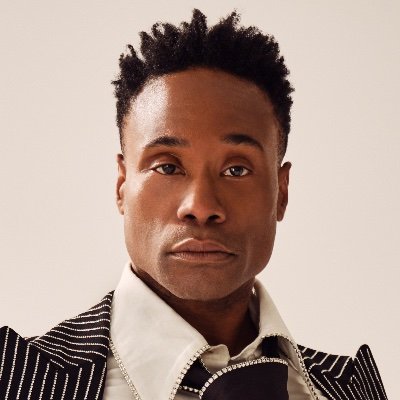
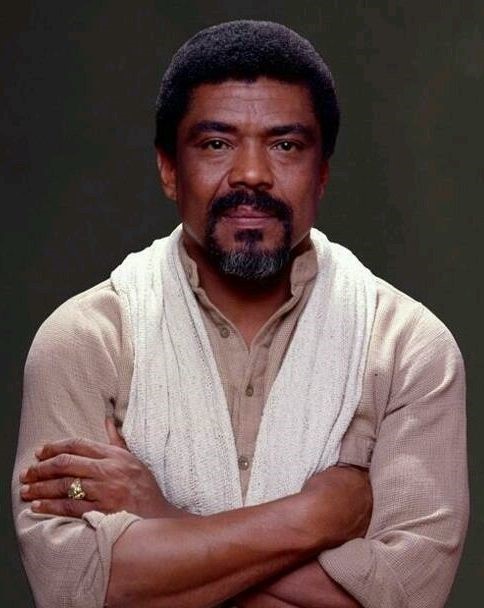
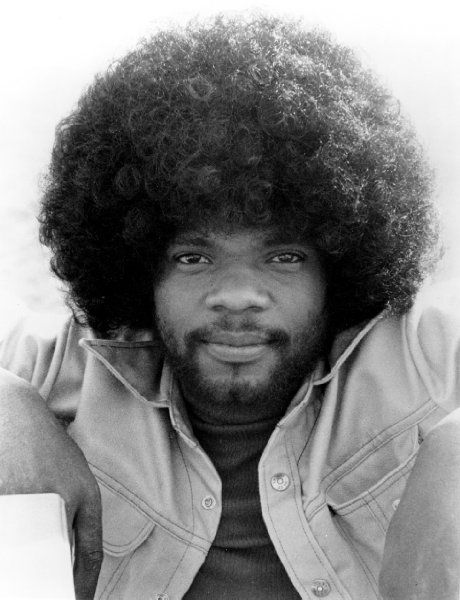
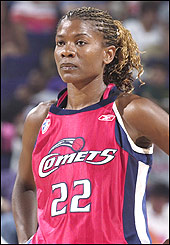
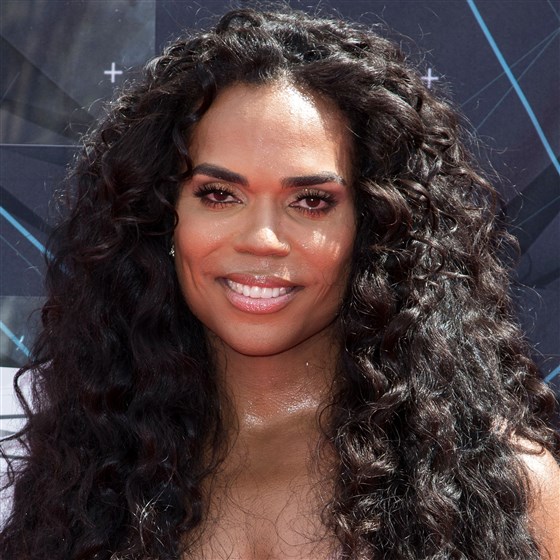
Racial Beginners
For What It's Worth: Billy
Porter
Merging of Two Movements: LGBTQ Pride and Black Lives
Matter
Black
Gay and Queer Men From History You Should Know
Television Shows With Excellent Black
LGBTQ Characters
Black, Bold, Beautiful: LGBTQ Black Celebs
Take a Knee: Sports is Back With Sideline Protests
Remembering Civil Rights
Icon Congressman John Lewis
March March: Protest Song by The Chicks
James Baldwin: Never-Aired Interview &
Profile (ABC TV 1979)
Bayard Rustin: Martin Luther King’s Views on Gay People
Billy
Porter - TV Actor
Phill
Wilson - AIDS Activist
Da Brat -
Rapper
Kellen
Stancil - Dancer, Choreographer
Nell
Carter - Singer, Actor
June
Jordan - Writer
Alan
Rogers - Military Officer
Laverne
Cox - Actor
Julius
Eastman - Composer
Derrick
Gordon - Basketball Player
Nadine
Smith - Activist
Jonathan
Burke - Broadway Actor
Jericho
Brown - Poet
Niecy Nash
- Actor
Ncuti
Gatwa - TV Actor
B Scott -
TV Host and Producer (BET)
 |
Moms
Mabley - Comedian
Wilson
Cruz - Actor
Wayne
Brady - Comedian
Giselle
Byrd - Director of Theatre Company
Andrea
Jenkins - Poet, Historian, Politician
Isaac
Julien - Photographer, Artist, Filmmaker
JL King - Author
Aaryn Lang - Media Personality, Trans Activist
Craig Washington - Activist
Zachary Jones - Bishop
Countee
Cullen - Poet
Franqi
French - Comedian
Deon Kevin
Johnson - Bishop
Shea
Diamond - Soul Singer, Trans Activist
Darren Walker - President of Ford Foundation
Ron Oden -
Politician
Jonathan
Capehart - Pulitzer Prize Winning Writer, Washington
Post
 |
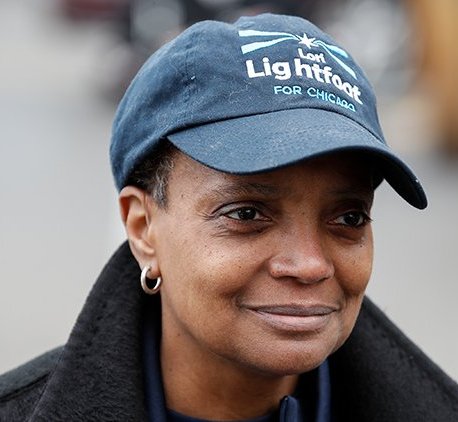
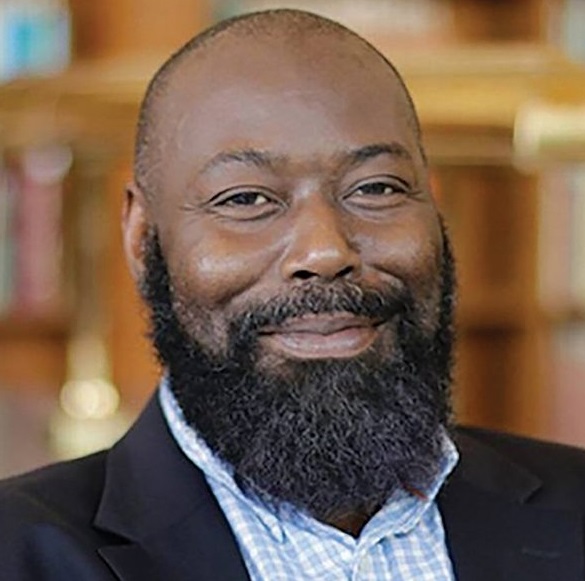
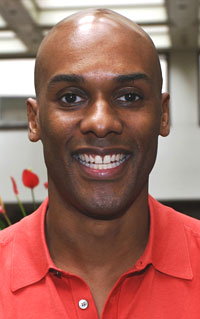
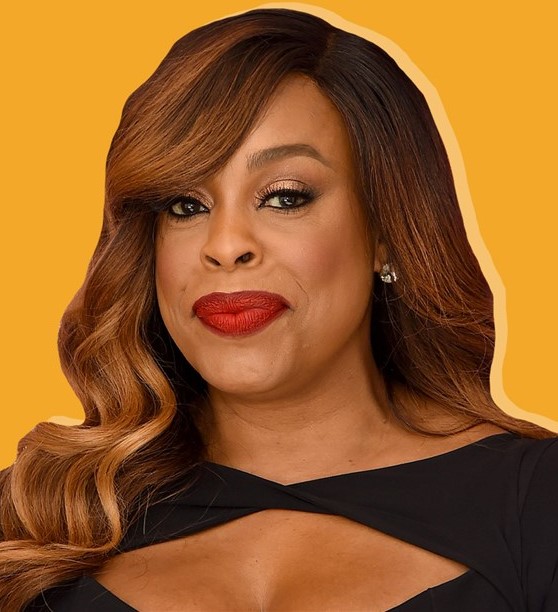
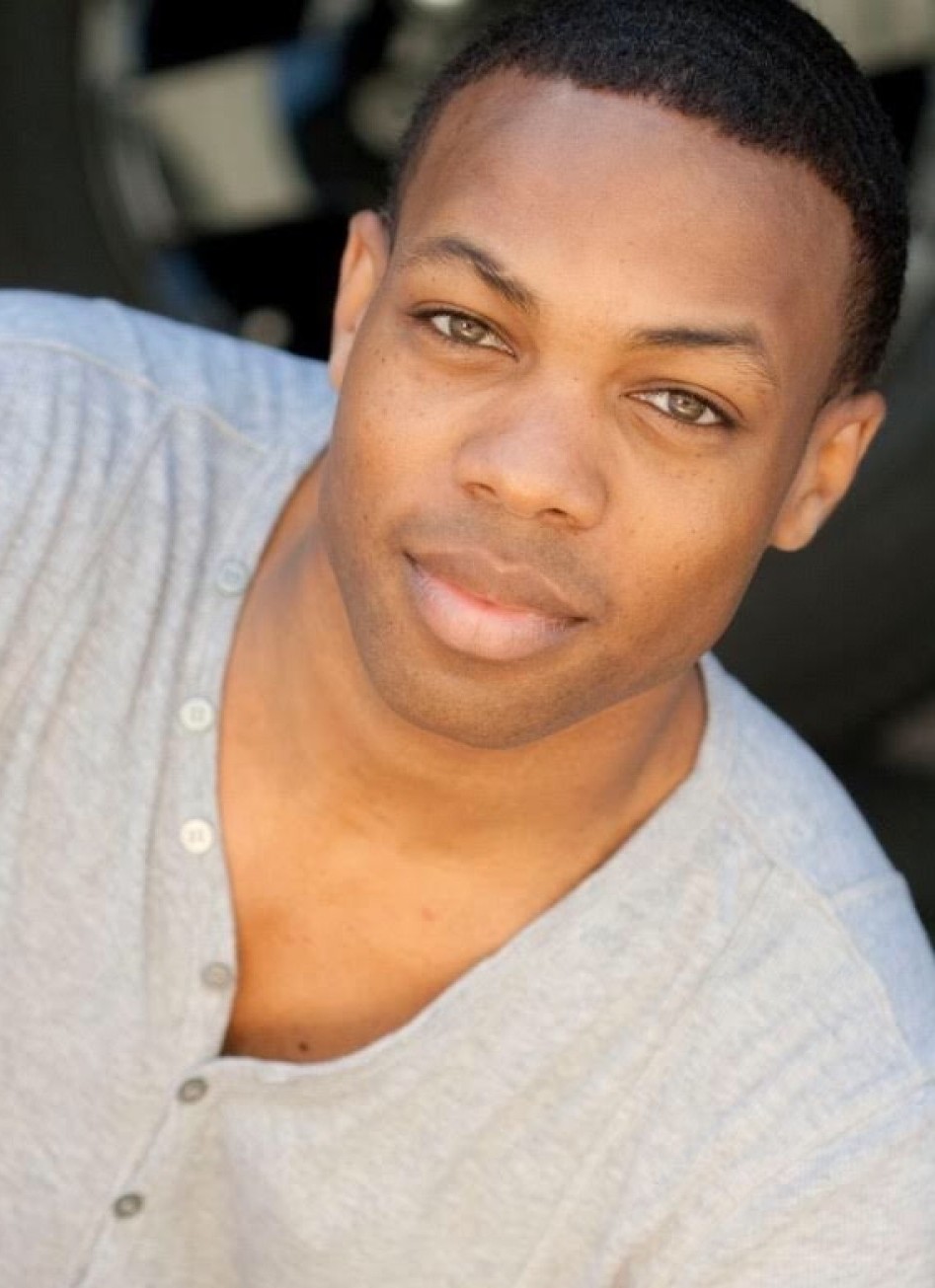
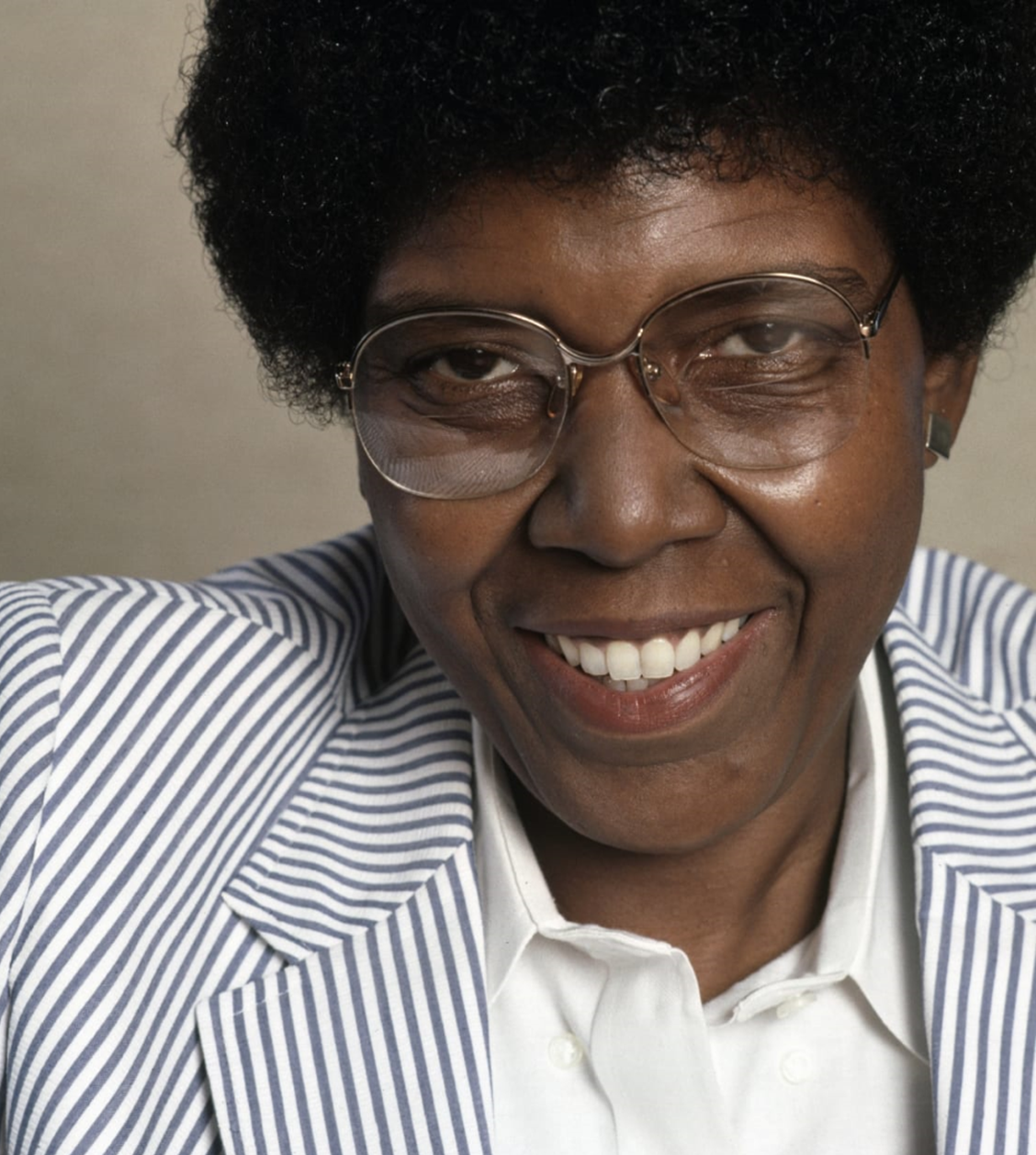
Television Shows With Excellent Black
LGBTQ Characters
Gavin Newsom Chooses Laphonza Butler to Fill Dianne
Feinstein's Senate Seat
Black, Bold, Beautiful: LGBTQ Black Celebs
GLAAD: Honoring Black LGBTQ Icons
Advocate: Black LGBTQ Pioneers
Huff Post: Prominent Black LGBTQ Icons
Black Lesbians You Should Know (1)
Coming Out Black: Black LGBTQ People in History
Black Gay and Queer Men From History You
Should Know
List: LGBTQ African Americans
Slideshow: Black LGBTQ
People in History
Queer Black Trailblazers
Ranker: LGBTQ Black Hollywood Celebrities
Black Gay Men You Should Know (1)
Our Families: LGBTQ
African American Stories
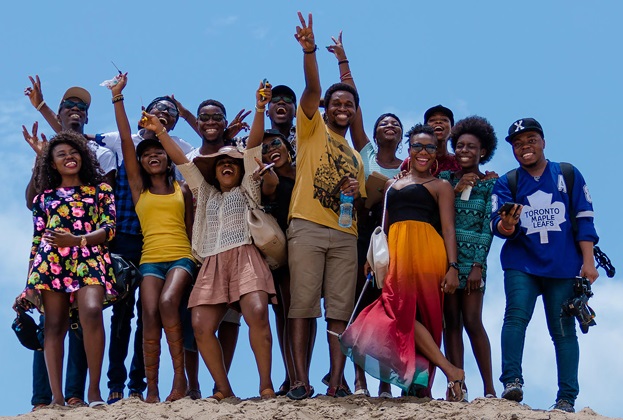
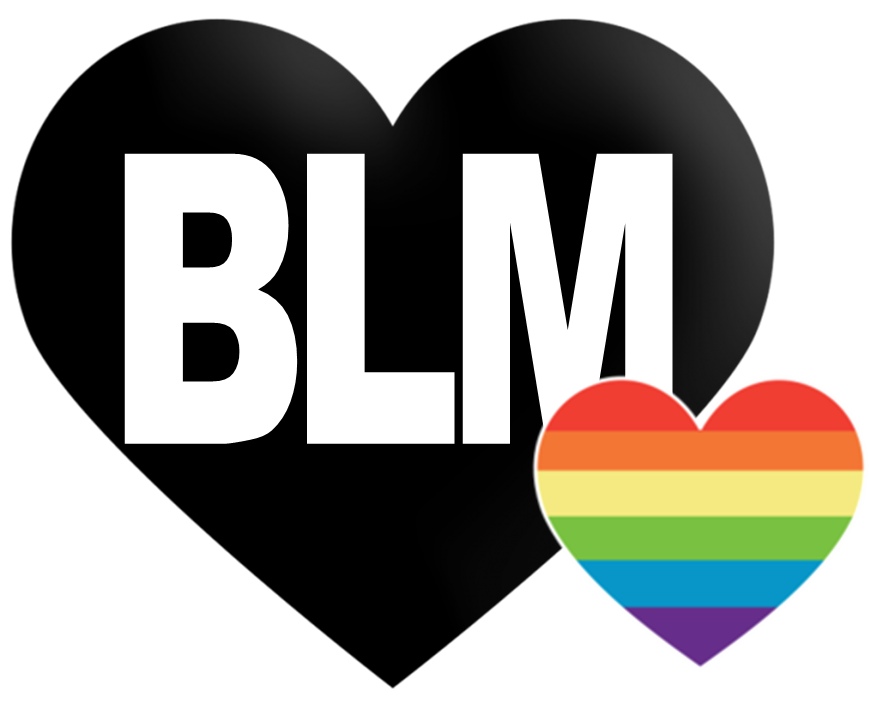
Remembering Civil Rights
Icon Congressman John Lewis
Congressman John Lewis
Talks About Civil Rights Movement
Civil Rights Leader Rep.
John Lewis: Tribute
Violent Crimes Against
Trans People and Black People
To Overcome the Dangers Facing our Community, LGBTQ
Leaders Must First Look Inward
James Baldwin: Never-Aired Interview and
Profile (ABC TV 1979)
Wanda Sykes: Black Lives
Matter, Quarantine, Current Events, More
Intersectionality: Insights From a Queer Man of Color
COVID 19 Impact: Serve Economic Hardships for LGBTQ
People of Color
Putting Intersectionality
Into Practice
Black Lives Matter
Founders: Patrisse Khan-Cullors, Alicia Garza, Opal
Tometi
Racism Tipping Point: Insights from Alicia Garza and Rev
William Barber
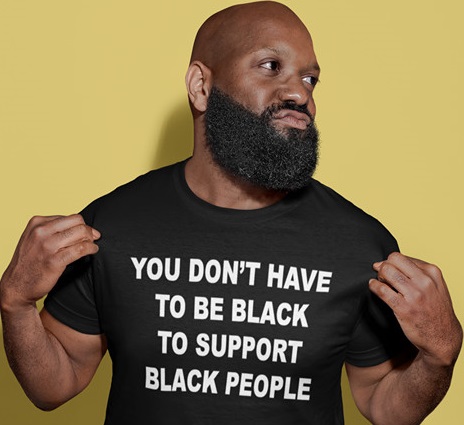
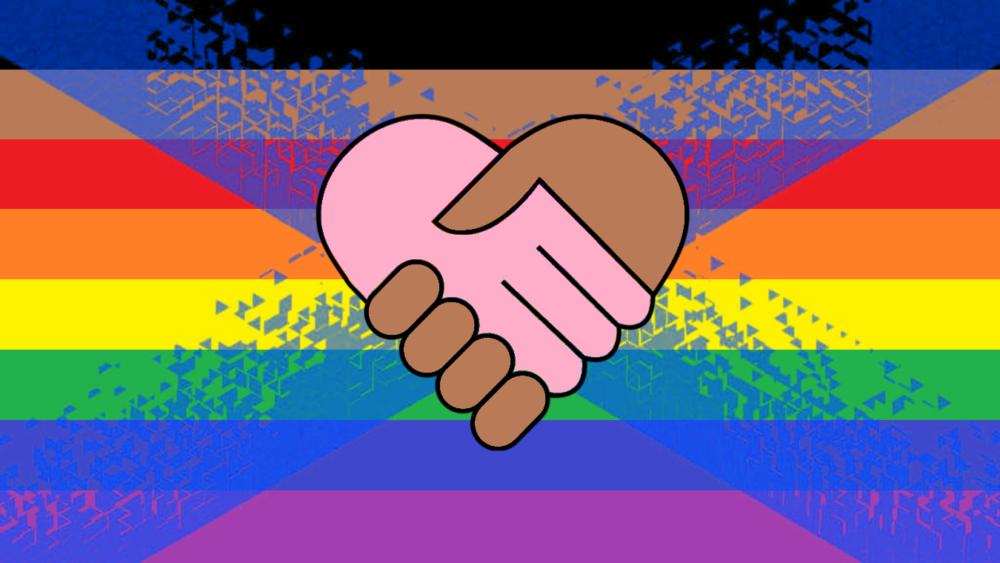
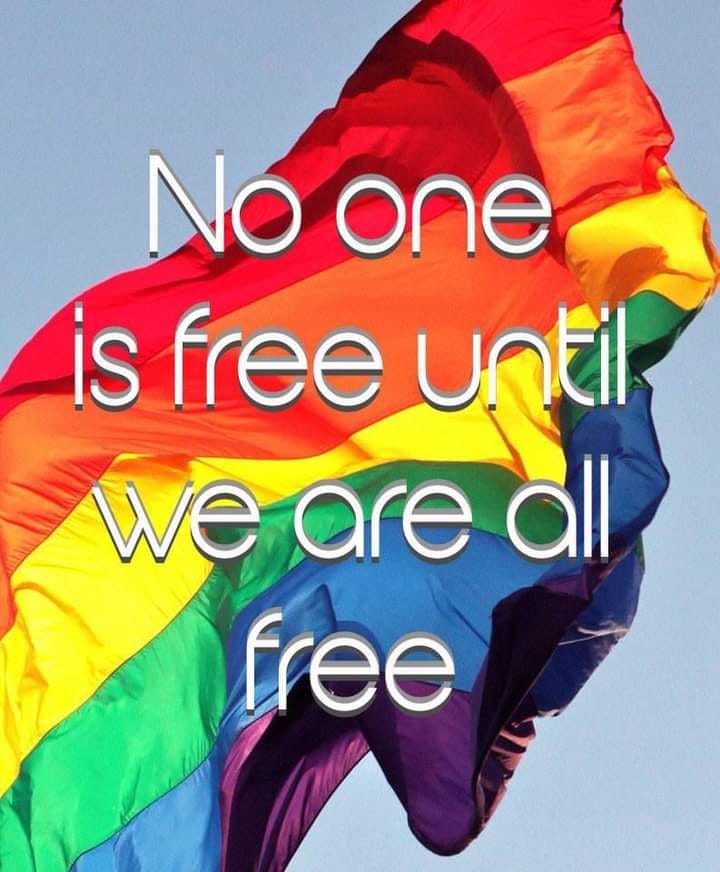
Black and Gay
Struggle
George
Floyd... Breonna Taylor... Ahmaud Arbery... Iyanna
Dior...
Eric
Garner... Michael Brown... Trayvon Martin... Tamir
Rice...
"Change
will not come if we wait for some other person or some
other time. We are the ones we've been waiting for. We
are the change that we seek."
-Barack
Obama
"In the
end, we will remember not the words of our enemies, but
the silence of our friends."
-Dr.
Martin Luther King Jr
"The trans
people of color are the ones who started the Stonewall
rebellion. Marsha P Johnson and Sylvia Rivera. Do you
want to know what they faced? Paying your dues with
hair, teeth, skin and bones. That's how people got to
this point here today. It didn't come easy."
-Renee Imperato
"There is
no such thing as a single-issue struggle because we do
not live single-issue lives."
-Audre
Lorde
"Would you
ask me how I’d dare to compare the civil rights struggle
with the struggle for lesbian and gay rights? I can
compare them, and I do compare them. I know what it
means to be called a nigger. I know what it means to be
called a faggot. And I can sum up the difference in one
word: None."
-Melvin
Boozer
"I fought too long and too hard to end discrimination
based on race and color, to not stand up against
discrimination against our gay and lesbian brothers and
sisters. Human rights, civil rights, these are issues of
dignity. Every human being walking this Earth, whether
gay, lesbian, straight, or transgender, is entitled to
the same rights. It is in keeping with America’s promise
of life, liberty, and the pursuit of happiness."
-John
Lewis, US Congressman
Lynae Vanee: Unchecked
Domestic Terrorism
Billy Porter on BET Awards 2022
Message for Black LGBTQ Youth
Queer Black Feminist Writer Bell Hooks Dies at 69
Being Black and Queer in
America Today
National Black Justice
Coalition
50 Years of Change: BLM
and the LGBTQ Pride Movement
LA Pride Revived as Black Lives Matter
Solidarity March
Why Pride 2020 is All About Black Lives Matter
Solidarity: Los Angeles Pride Supports Black Lives
Matter
Dr Cornel West: Future of
America Depends on Our Response
Blackish: Dre's Most
Profound Speech
Words Matter When Talking About Race and Unrest
International Demonstrations: BLM Goes Global
Roundtable: What Does
Justice Mean in 2020?
How to Support Black-Owned
Small Businesses
Black Gay and Queer Men
From History You Should Know
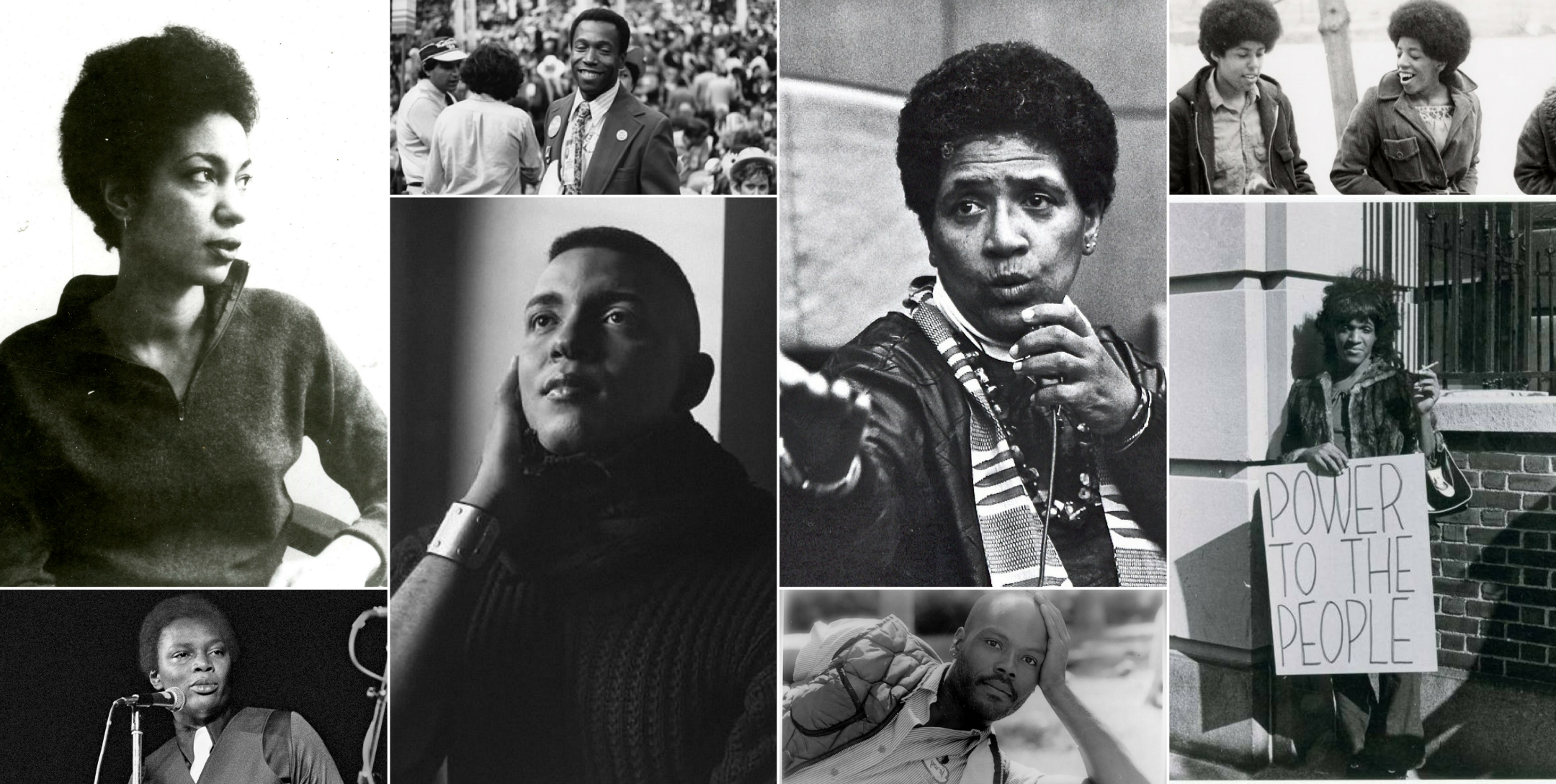
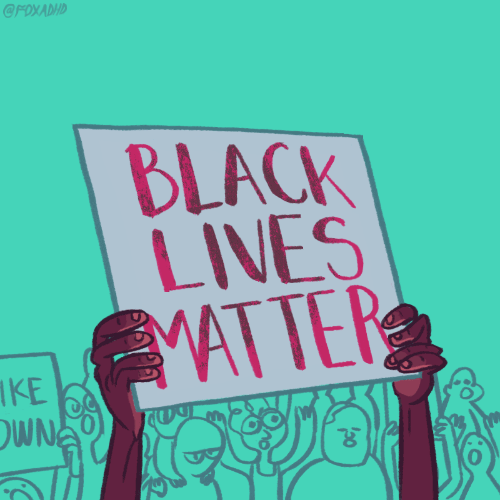
Queer
African-American activists who were courageous pioneers
in the struggle for equal rights for black people and LGBTQ people include such champions as June Jordan, Pat
Parker, Melvin Boozer, Assotto Saint, Audre Lorde,
Joseph Beam, Barbara Smith, and Marsha P. Johnson
The intersectionality of race and and sexual identity in the
current struggle for justice and equality reminds us
that no person can be defined simply by their skin color
or their ethnicity or their sexual orientation or their
gender identity. The overlap of experiences invites us
to recognize how much we all have in common. It's not
just about black people and LGBTQ people fighting their
separate battles, or even about the two communities
coming together. It's about black gay men, black
lesbians, black bisexuals, black transgender people, and
queer people of color fighting a battle that converges
within their own soul.
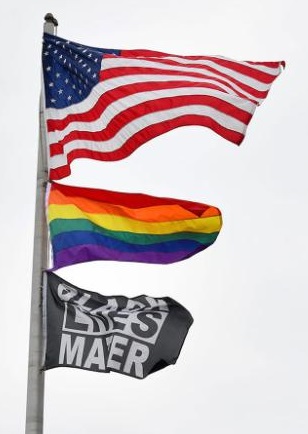 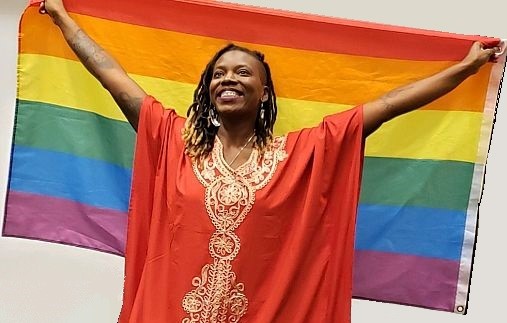
John Lewis: Wake Up
America
Civil Rights Leader Rep.
John Lewis: Tribute
Remembering Civil Rights
Icon Congressman John Lewis
To Overcome the Dangers Facing our Community, LGBTQ
Leaders Must First Look Inward
Trey Songz: How Many Times
Racial Beginners
Trevor Noah: The Dominoes
of Racial Injustice
LGBTQ Organizations Stand
in Solidarity With Black Lives Matter
Jide Zeitlin:
Black CEO Talks About Diversity and Inclusion
TED Talk: 50 Years of
Racism and Why Silence is Not the Answer
Thousands Gather for BLM and LGBTQ Pride March
Roundtable: Imagining
Tomorrow in America
Fabulous Photos: Harlem's
Queer Juneteenth Jubilee
Queer Black Pioneers Who
Made History
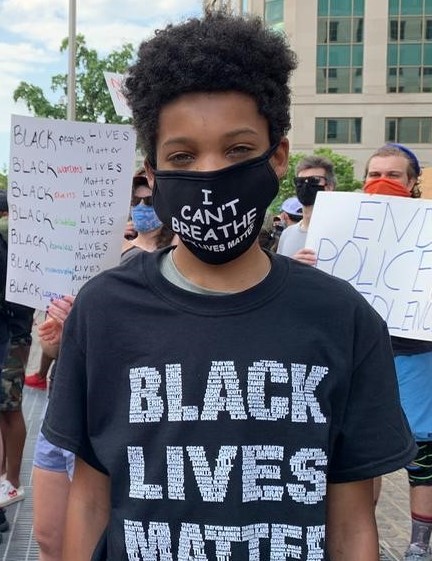
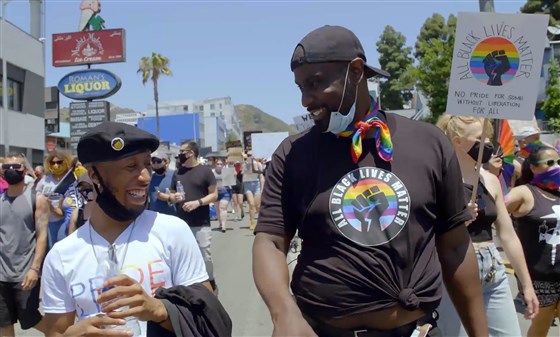
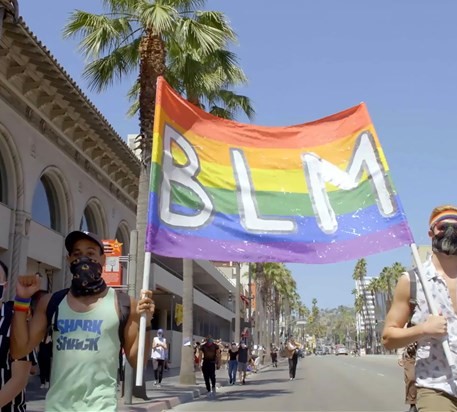
National Black Justice
Coalition
ACLU: Demand Justice Now
James Baldwin: 1965 Speech on Race Relations in America
Queer Roots of Black Lives
Matter
Breonna Taylor: Black Women's Lives Matter Too
Merging of Two Movements: LGBTQ Pride and Black Lives
Matter
Marques Brownlee: Reflecting on the Color of My Skin
James Baldwin: Never-Aired Interview and
Profile (ABC TV 1979)
CBS News: The List Keeps
Growing
World According to James
Baldwin
Bayard Rustin: Martin Luther King’s Views on Gay People
COVID 19 Impact: Serve Economic Hardships for LGBTQ
People of Color
The Look: Let's Talk About Bias
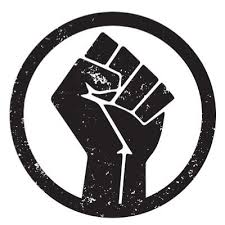
Juneteenth: June 19, 1865
Black Independence Day | Emancipation Day | Freedom Day
| Jubilee Day
General Order No. 3: All Slaves Are Free
Marks the true end of chattel slavery across the United
States, two and
a half years after the Emancipation Proclamation
Juneteenth: History and Information
Why Juneteenth, Now a Federal Holiday, Is So Significant
Celebrating Juneteenth:
Things to Think About
PBS: What is Juneteenth
Advocate: Why Juneteenth
is so Significant
History: Juneteenth
CNN: Juneteenth Becomes a Federal Holiday
NBC: Pres Biden Signs Law Making Juneteenth National
Holiday
AP: Biden Declares Juneteenth as Federal Holiday
ABC: Biden Signs Bill Making Juneteenth a Federal
Holiday
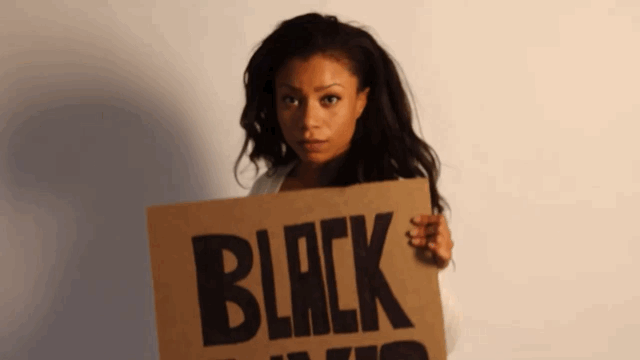
Language of the
Unheard
"A riot is
the language of the unheard."
-Dr. Martin Luther King Jr
"Without
community, there is no liberation."
-Audre
Lorde
"I
am a person who is unhappy with things as they stand. We
cannot accept the world as it is. Each day we should
wake up foaming at the mouth because of the injustice of
things."
Hugo Claus
"In
keeping silent about evil, in burying it so deep within
us that no sign of it appears on the surface, we are
implanting it, and it will rise up a thousand fold in
the future. When we neither punish nor reproach
evildoers, we are not simply protecting their trivial
old age, we are thereby ripping the foundations of
justice from beneath new generations."
-Aleksandr
Solzhenitsyn
"Freedom
is never voluntarily given by the oppressor. It must be
demanded by the oppressed."
-Dr.
Martin Luther King Jr
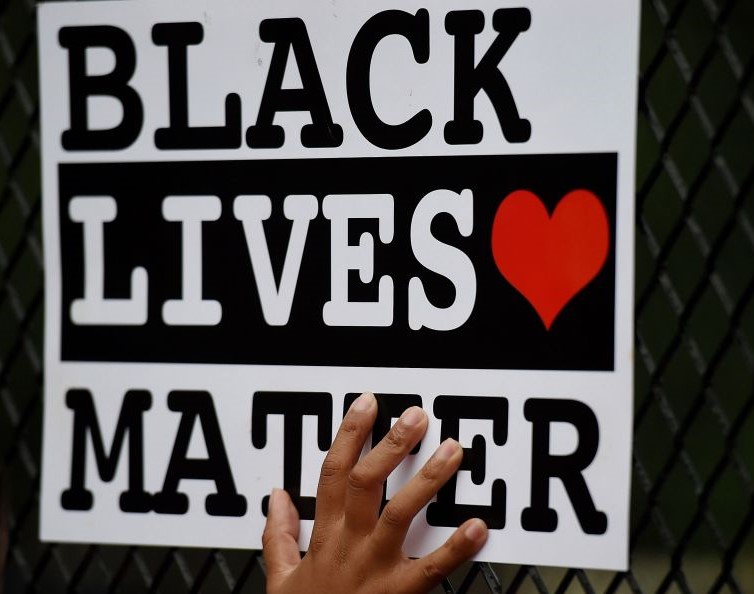
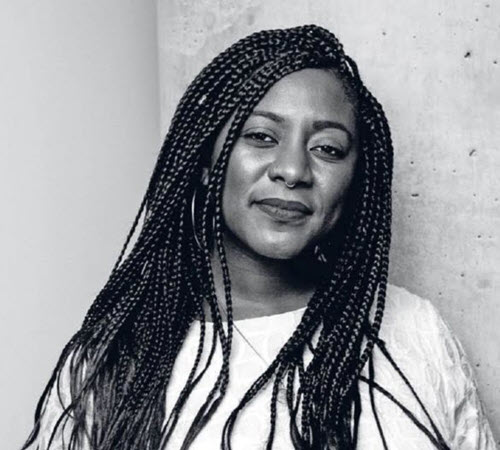
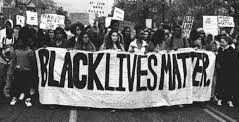
Pride 2020: Still We
John Legend: Redemption
Song
Black Lives Matter: Peaceful Demonstrations
LGBTQ Pride Festivals
Become Black Lives Matter Protests
Remembering George Floyd
Op-Ed: Would Martin Luther King Jr Have Fought for LGBTQ
Rights?
Black Gay and Queer Men From History You
Should Know
Racial Beginners
Black Lives Matter: Painted on DC Street Leading to the
White House
BLM isn't Enough if Black Trans People Aren't Safe
Jessica: Black LGBTQ
People You Should Know
Queer Black Trailblazers
Black Ivy League Students:
Why Black Lives Matter
Charlotte Police Officer
Does the Right Thing
Queer Blackathon: Black
LGBTQ Book Recommendations
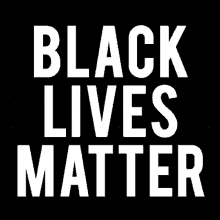 
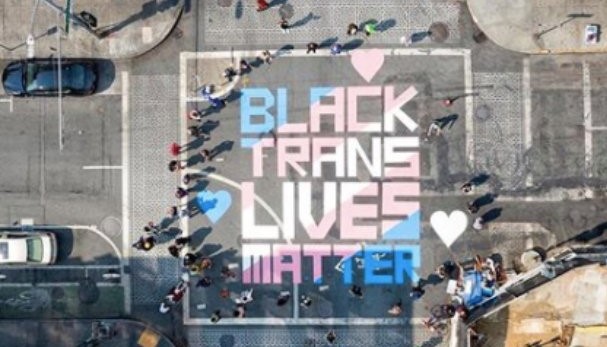
"Black
Americans are two-and-a-half times as likely as white
Americans to be killed by police officers."
-Statistic
"The ultimate measure of a person is not where he stands
in moments of comfort and convenience, but where he
stands at times of challenge and controversy."
-Dr.
Martin Luther King Jr
"There is no greater tyranny than that which is
perpetrated under the shield of the law and in the name
of justice."
-Charles-Louis de Secondat, baron de la Brède et de
Montesquieu
"Each
time a man stands up for an ideal, or acts to improve
the lot of others, or strikes out against injustice, he
sends forth a tiny ripple of hope, and crossing each
other from a million different centers of energy and
daring those ripples build a current which can sweep
down the mightiest walls of oppression and resistance."
-Robert F.
Kennedy
"Darkness
cannot drive out darkness. Only light can do that. Hate
cannot drive out hate. Only love can do that."
-Dr.
Martin Luther King Jr
"Don't be
afraid. Be focused. Be determined. Be hopeful. Be
empowered."
-Michelle
Obama
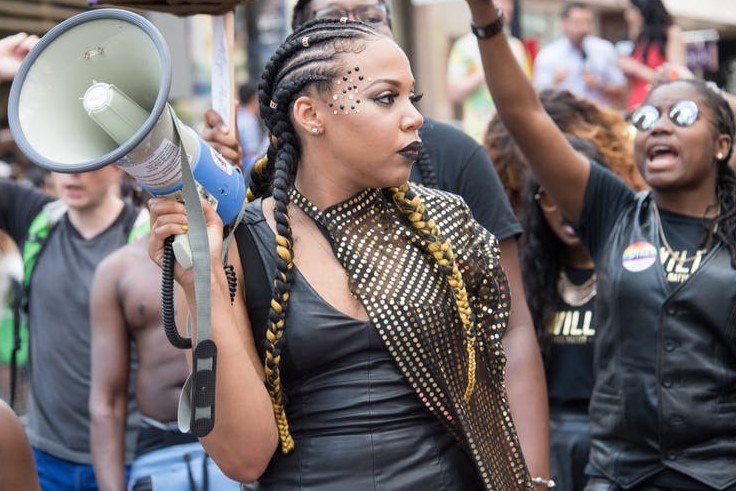
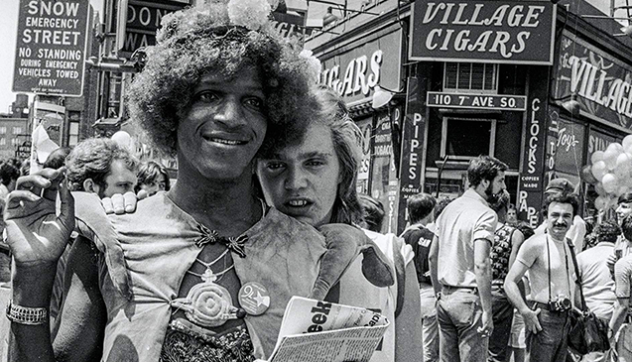
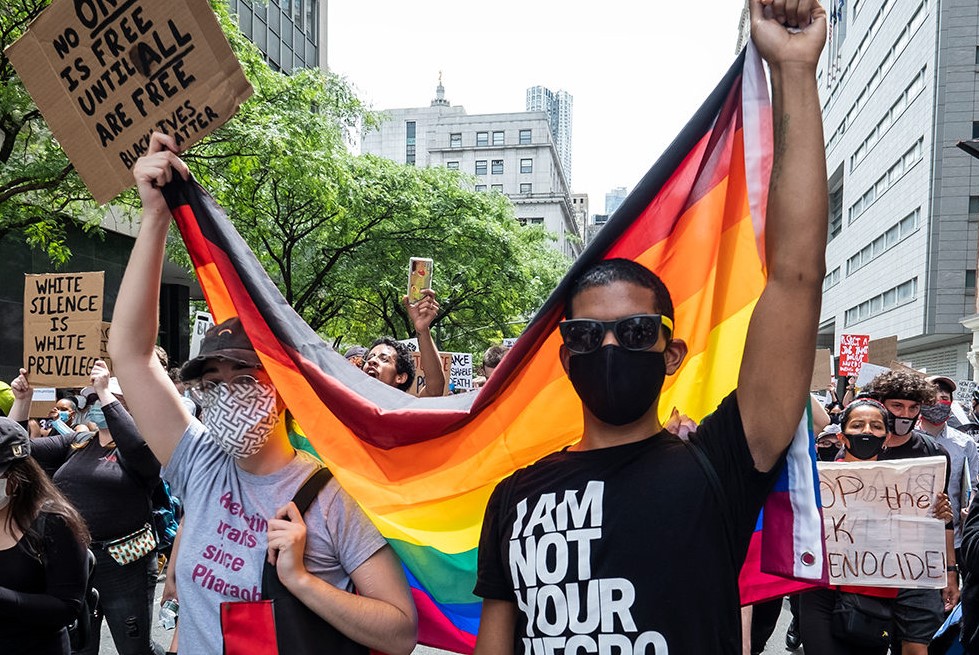
What Does it Mean to Be Queer and Black in America
Today?
Redefining What It Means to be a Gay Black Man
Queer Black Pioneers Who
Made History
Lee Gray Creates His Own
Space: Being Black and Gay
Black History Month: Days of Queer Excellence
Michael Arceneaux: I Can't Date Jesus
Amazing LGBTQ People Whose Groundbreaking
Lives Helped Shape Black History
Coming Out as a Black Transgender Woman
Lena Waithe: Gay Black Girls Rock
HRC: Being African American and LGBTQ
Kehinde Wiley: Painter of President
Obama Official Portrait
CNN: Civil Rights Leader Bayard Rustin
Pardoned After 67 Years
Video: Black Gay Men Attending Homophobic Churches
Black Gay and Queer Men
From History You Should Know
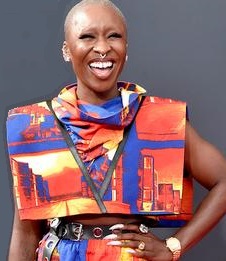
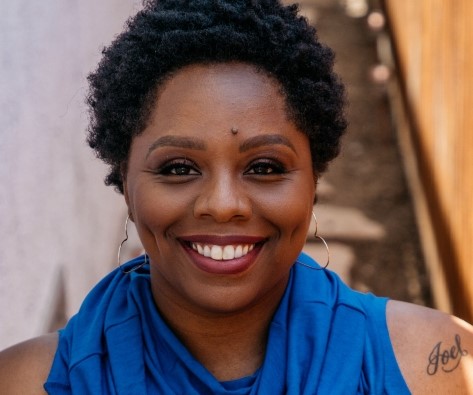
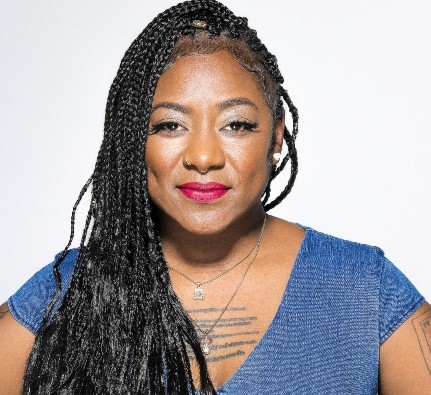
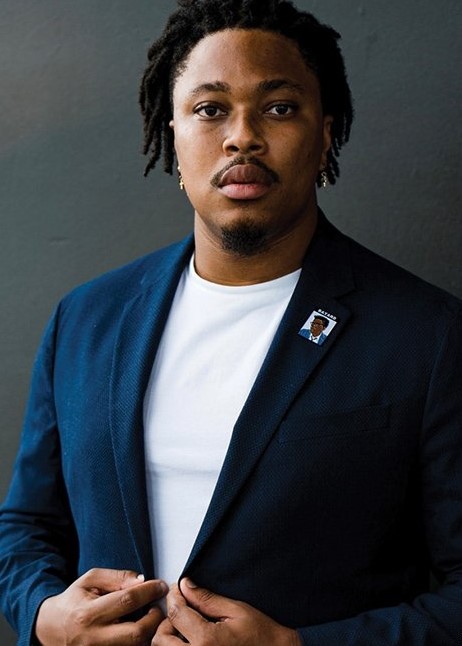
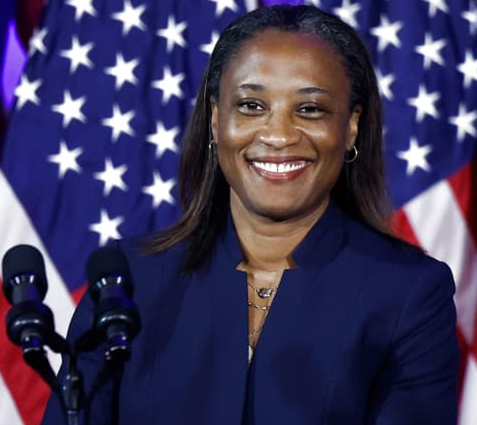
Lynae Vanee: Unchecked
Domestic Terrorism
Remembering Civil Rights
Icon Congressman John Lewis
Superstar Tenor Russell Thomas on Being a Black Queer
Man in Opera
MAP: Talking About LGBTQ Equality With African Americans
Black Gay Christians Speak Out
Merging of Two Movements: LGBTQ Pride and Black Lives
Matter
Essence: Liberated and Loved
Tarek Ali: The Truth of a Gay Black Man
To Overcome the Dangers Facing our Community, LGBTQ
Leaders Must First Look Inward
Holler If You Hear Me: Black and Gay in the Church
Bayard Rustin: Martin Luther King’s Views on Gay People
Gay Pride: Are Black Gay Men Proud?
Angela Davis: Radical Self
Care
Black History
Month
“Won’t it
be wonderful when black history and Native American
history and Jewish history and all of US history is
taught from one book. Just US history.”
-Maya
Angelou
Black
History Month honors the contributions of African
Americans to US history. Among prominent figures are
Madam CJ Walker, who was the first US woman to become a
self-made millionaire; George Washington Carver, who
derived nearly 300 products from the peanut; Rosa Parks,
who sparked the Montgomery Bus Boycott and galvanized
the civil rights movement; and Shirley Chisholm, who was
the first African American woman elected to the US House
of Representatives. Black History Month, also known as
African-American History Month, is an annual celebration
of achievements by African Americans and a time for
recognizing their central role in US history.
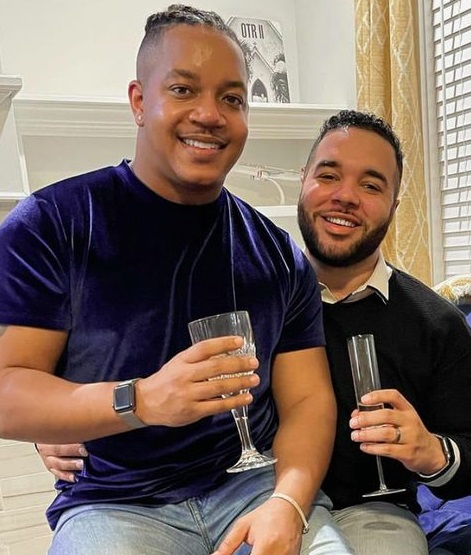
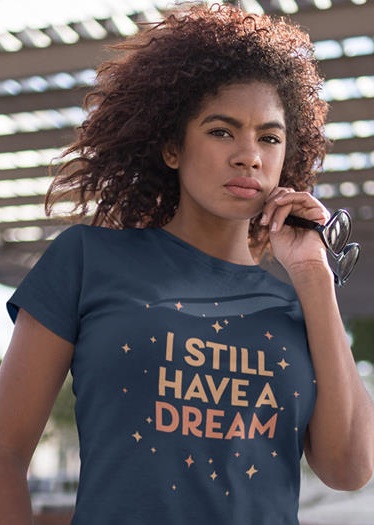
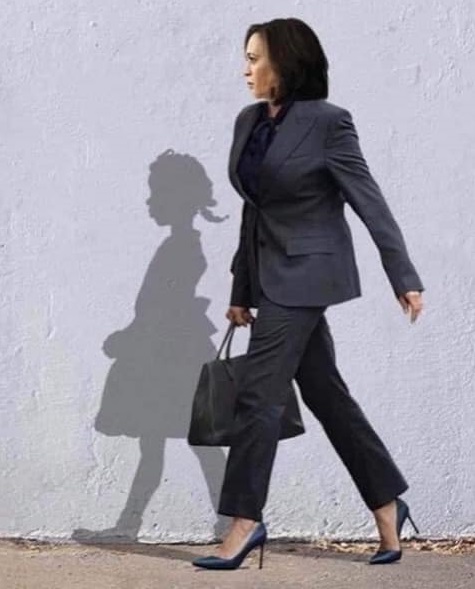
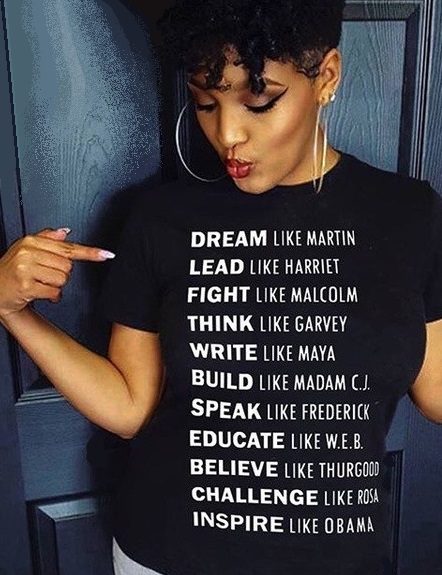
“Never be
limited by other people’s limited imaginations.”
-Dr. Mae Jemison, first African-American female
astronaut
“I refuse to accept the view that mankind is so
tragically bound to the starless midnight of racism and
war that the bright daybreak of peace and brotherhood
can never become a reality…. I believe that unarmed
truth and unconditional love will have the final word.”
-Dr.
Martin Luther King Jr
The celebration was expanded to a month in 1976, the
nation's bicentennial. President Gerald R. Ford urged
Americans to “seize the opportunity to honor the
too-often neglected accomplishments of black Americans
in every area of endeavor throughout our history.” That
year, fifty years after the first celebration, the
association held the first African American History
Month. By this time, the entire nation had come to
recognize the importance of Black history in the drama
of the American story. Since then each American
president has issued African American History Month
proclamations. And the association—now the Association
for the Study of African American Life and History (ASALH)—continues
to promote the study of Black history all year.
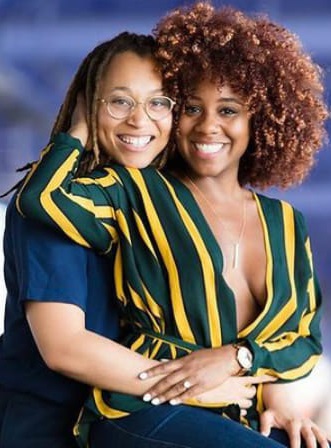
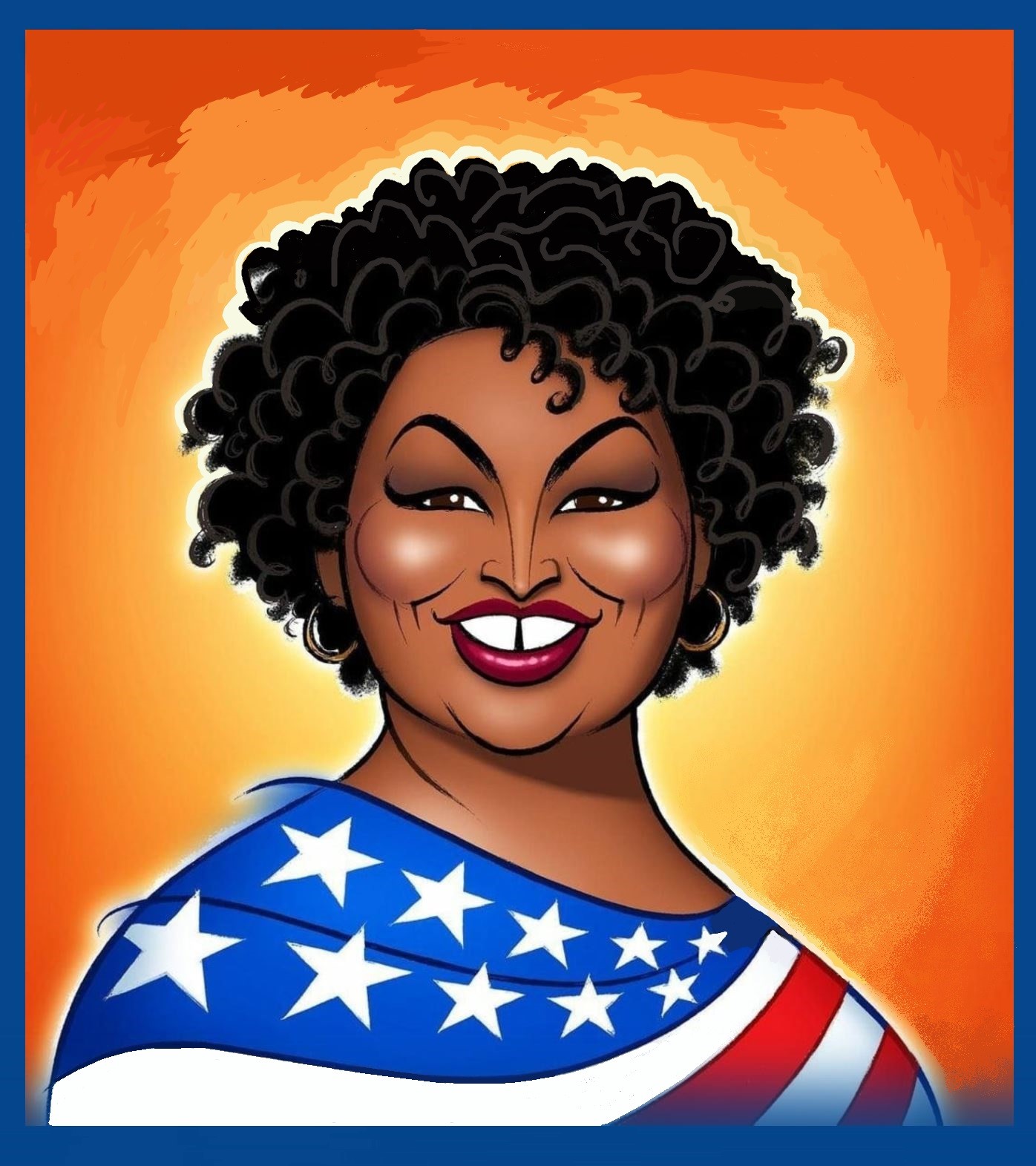
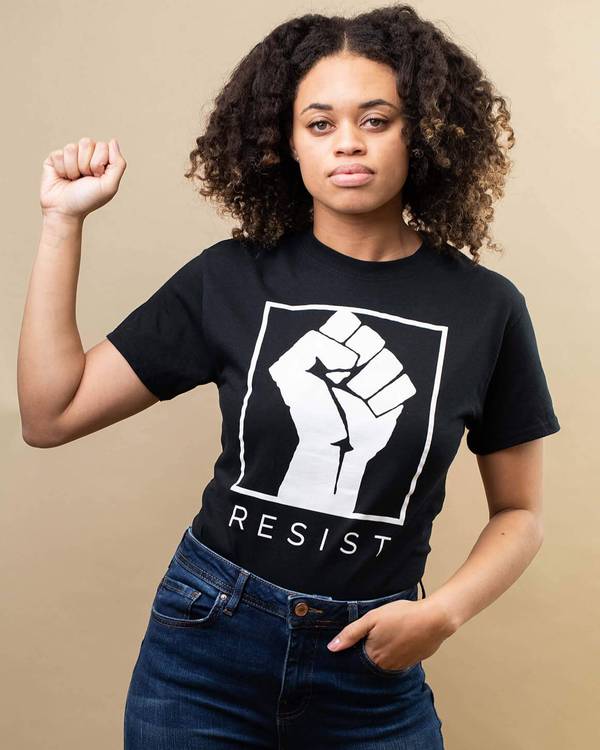
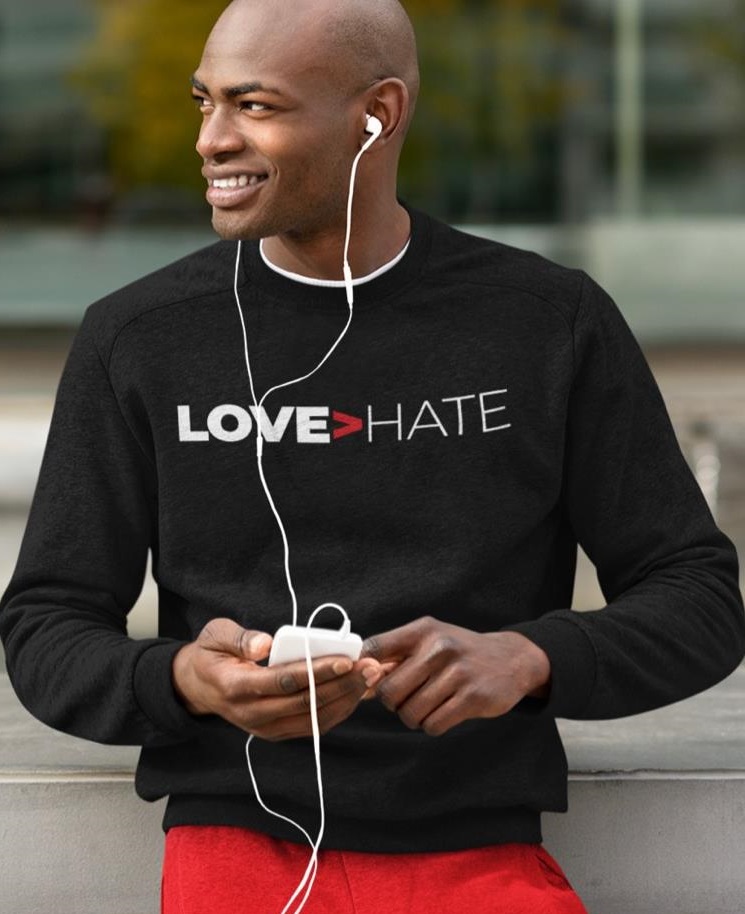
Black History Month Facts
TV Shows With Excellent Black LGBTQ
Characters
Black Gay and Queer Men
From History You Should Know
Amazing LGBTQ People Whose Groundbreaking
Lives Helped Shape Black History
Parade: Inspiring Black History Month Quotes
Essential Queer Black Films
Black, Bold, Beautiful: LGBTQ Black Celebs
Black Gay Man Davante Lewis Is First Out
State Official in Louisiana
Queer Black Pioneers Who
Made History
Pride: Inspiring Queer Black Heroes
National Black Justice
Coalition
Lynae Vanee: Unchecked
Domestic Terrorism
“The cost
of liberty is less than the price of repression.”
-W.E.B. Du Bois
“In recognizing the humanity of our fellow beings, we
pay ourselves the highest tribute.”
-Thurgood Marshall, first African American U.S. Supreme
Court member
The celebration of Black History Month began as “Negro
History Week,” which was created in 1926 by Carter G.
Woodson, a noted African American historian, scholar,
educator and publisher. It became a month-long
celebration in 1976. The month of February was chosen to
coincide with the birthdays of Frederick Douglass and
Abraham Lincoln.
On February 12, 2019, the NAACP marked its 110th
anniversary. Spurred by growing racial violence in the
early 20th century, and particularly by 1908 race riots
in Springfield, Illinois, a group of African American
leaders joined together to form a new permanent civil
rights organization, the National Association for the
Advancement of Colored People (NAACP). February 12,
1909, was chosen because it was the centennial
anniversary of the birth of Abraham Lincoln.
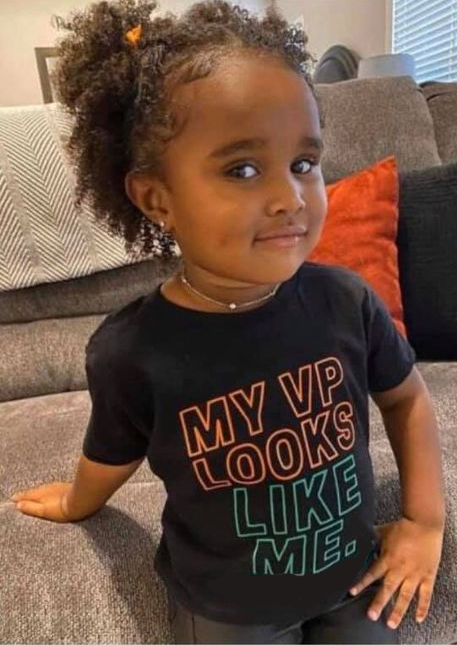
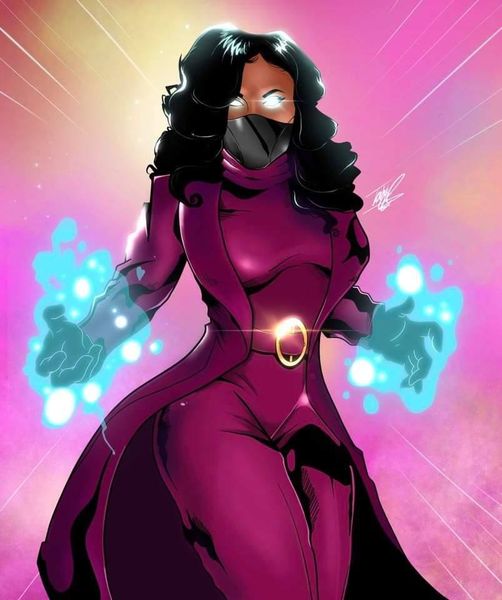
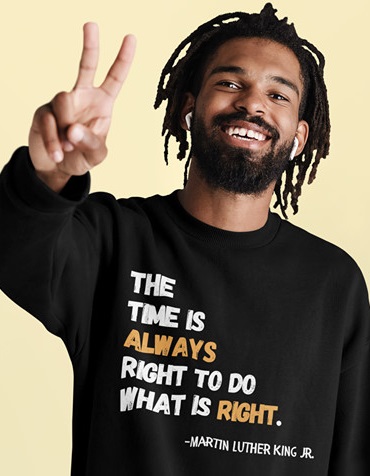
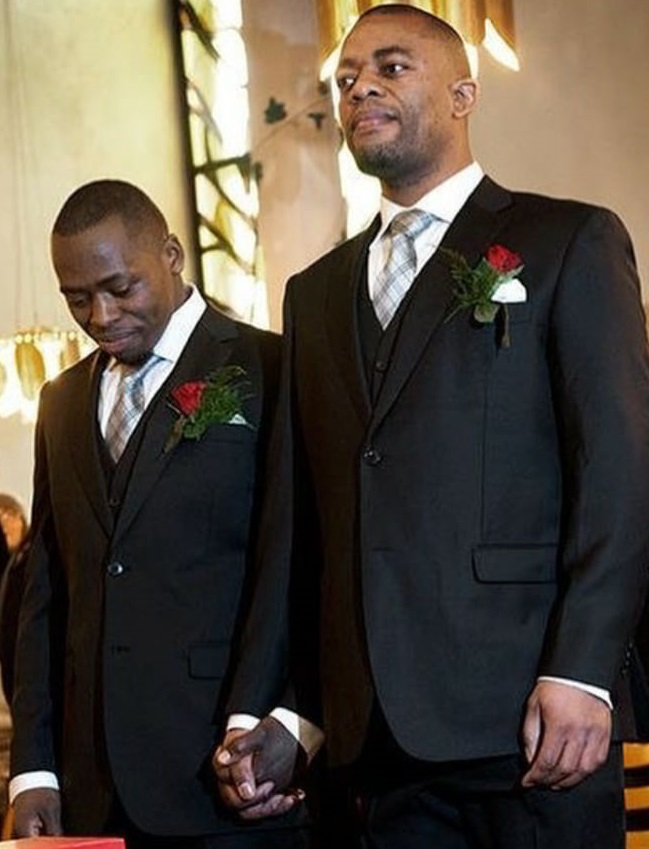
“One day
our descendants will think it incredible that we paid so
much attention to things like the amount of melanin in
our skin or the shape of our eyes or our gender instead
of the unique identities of each of us as complex human
beings.”
-Franklin
Thomas, activist, philanthropist, and former president
of the Ford Foundation
“My humanity is bound up in yours, for we can only be
human together.”
-Desmond Tutu
While Rosa Parks is credited with helping to spark the
civil rights movement when she refused to give up her
public bus seat to a white man in Montgomery, Alabama in
1955—inspiring the Montgomery Bus Boycott—the
lesser-known Claudette Colvin was arrested nine months
prior for not giving up her bus seat to white
passengers.
Television Shows With Excellent Black
LGBTQ Characters
PBS: Little Known Black History Facts
Video: Black LGBTQ
People You Should Know
ABC News: Importance of Black History Month Year Round
Interesting Black History Facts
Must-See Documentary Films Celebrating Iconic Black
LGBTQ Historical Figures
Slideshow: Black LGBTQ
People in History
Black Gay and Queer Men From History You
Should Know
Oprah: Black History Facts
Gospel Music Would Be Nothing Without
Black Queer and Trans Artists
Background and Info: Black History Month
Syd and Mike: Blackaroni
and Cheese (The Intervention)
Black Queer Films To Watch This Black
History Month
Feminista Jones: Black Feminism
Karine Jean-Pierre: White House Press
Secretary is a Gay Black Woman
White House press secretary Karine
Jean-Pierre on Oct 11 2022 shared her
own story of coming out in recognition
of National Coming Out Day, urging other
Americans not to feel discouraged.
“Like so many in the LGBTQ community,
coming out wasn’t an easy thing to do.
My family was traditional and
conservative. Being gay in my family
wasn’t something that you mentioned out
loud or celebrated,” Jean-Pierre said at
the start of the White House press
briefing.
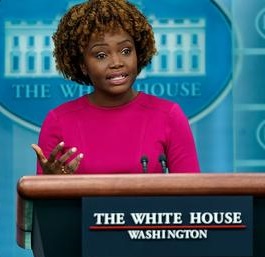
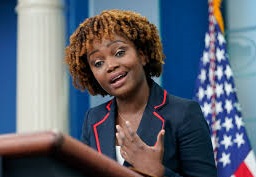
Karine Jean-Pierre: White House Press
Secretary is a Gay Black Woman
Karine Jean-Pierre Reflects on Coming
Out as Gay: Wasn't an Easy Thing
Karine Jean-Pierre: Wikipedia
“But my family, like many families, grew
to accept who I was. Who I loved didn’t
change who I was as a person. It didn’t
change the things I liked to do, and it
didn’t change the goals I had for my
life,” she continued. “The beauty of
America is its freedom and the promise
that you can do anything you want
regardless of your race, sex, country of
origin, sexual orientation or gender
identity.” Jean-Pierre expressed
her appreciation for President Biden and
first lady Jill Biden for being
supportive of the LGBTQ community.
Jean-Pierre is the first openly gay
woman and the first Black woman to serve
as White House press secretary. She took
over the role in May for Jen Psaki.
Oct 11 marked National Coming Out Day,
which was started more than 30 years ago
in support of members of the LGBTQ
community who have come out about their
sexual orientation or who are struggling
with the process of coming out. “I
celebrate our LGBTQI community this
National Coming Out Day. Never doubt
that you are loved and appreciated for
being exactly who you are,” Vice
President Harris tweeted.
[Brett Samuels, the Hill, Oct 2022]
Queer Black Trailblazers
James Baldwin: Explaining the Riots of 1968
First Openly Gay HBCU Football Player Byron Perkins
Reveals New Boyfriend
Dr Cornel West on Racial
Justice: Anderson Cooper Moved to Tears
Performative Allyship: Supporting Black-Owned Businesses
Trevor Noah: Protests
Sweep Across America
LGBTQ Allies and Advocates
Raise Funds for Black Trans Lives
Dr Anthony Fauci: Inequities and Disparities in
Healthcare
Justice Smith: Queer Black Lives Matter Too
Racial Beginners
TV Shows With Excellent Black LGBTQ
Characters
Queer People Of Color From History You
Should Definitely Know About
Superstar Tenor Russell Thomas on Being a Black Queer
Man in Opera
All LGBTQ People Should Stand in Solidarity with Black
Athletes
Black Trans Lives Matter
Mural at Compton's Cafeteria Site
The Aunties:
Preserving Harriet Tubman's Legacy
Meet
Donna Dear and Paulette Greene
The
forthcoming short film profiles the beloved couple, and
shows how deep love can be a powerful tool to fight the
climate crisis.
At a party celebrating the first day of 1974, Donna
Dear, an Ohio-born military woman, met the educator
Paulette Greene at her home in New York City. The
connection was cosmic. Though both were in separate
relationships at the time, they would soon find their
way to each other, beginning a partnership that would
take them overseas and across decades. After years in
Asia, where Donna was stationed, the couple returned
stateside, settling on Mt. Pleasant Acres Farms in
Maryland, near where Paulette’s great-grandparents once
lived. At the time, neither Donna nor Paulette, known to
most simply as “the aunties,” knew their land held a
potent history. A surge of research about twenty years
ago revealed that the aunties’ farm sat on land where
legendary abolitionist Harriet Tubman took members of
her family out of enslavement. What’s more, a beautiful
poplar tulip on the property was, in fact, The Witness
Tree, a historic site where those escaping slavery would
pray before their journey north.
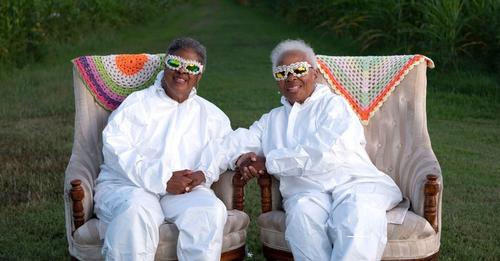
"The Aunties" (Official Trailer)
Farmers Donna Dear and Paulette Greene Continue Harriet
Tubman’s Legacy
Them Magazine: Interview with Donna Dear and Paulette
Greene
Nearly
fifty years since that brisk January afternoon, the
couple are the subject of a forthcoming short film
co-directed by their nieces, urban farmer, activist, and
artist Jeannine Kayembe-Oro and artist and scholar
Charlyn Griffith-Oro. Titled “The Aunties: From the
North Star to the Poplar,” the short documentary traces
the couple’s origin story, their relationship to
Tubman’s legacy, and the ongoing work they do on the
farm promoting climate justice in Maryland’s Chesapeake
Bay. “As Black queer and trans people, the archive of
our stories is often so small. When we’re talking about
environmental justice, it’s even smaller,” said
Kayembe-Oro of the project, which was produced by the
Center for Cultural Power with an all-Black, queer, and
femme crew. “It was a great moment to bring the aunties’
story to the Center’s platform so that more LGBTQ folks
can find in the aunties an answer to the question, what
can my future look like.”
[Source:
Wren Sanders, Them, Sept 2023]
Black, Bold, Beautiful: LGBTQ Black Celebs
GLAAD: Honoring Black LGBTQ Icons
Advocate: Black LGBTQ Pioneers
Huff Post: Prominent Black LGBTQ Icons
Black Lesbians You Should Know (1)
Coming Out Black: Black LGBTQ People in History
Black Gay and Queer Men From History You
Should Know
List: LGBTQ African Americans
Slideshow: Black LGBTQ
People in History
Queer Black Trailblazers
Ranker: LGBTQ Black Hollywood Celebrities
Black Gay Men You Should Know (1)
Our Families: LGBTQ
African American Stories
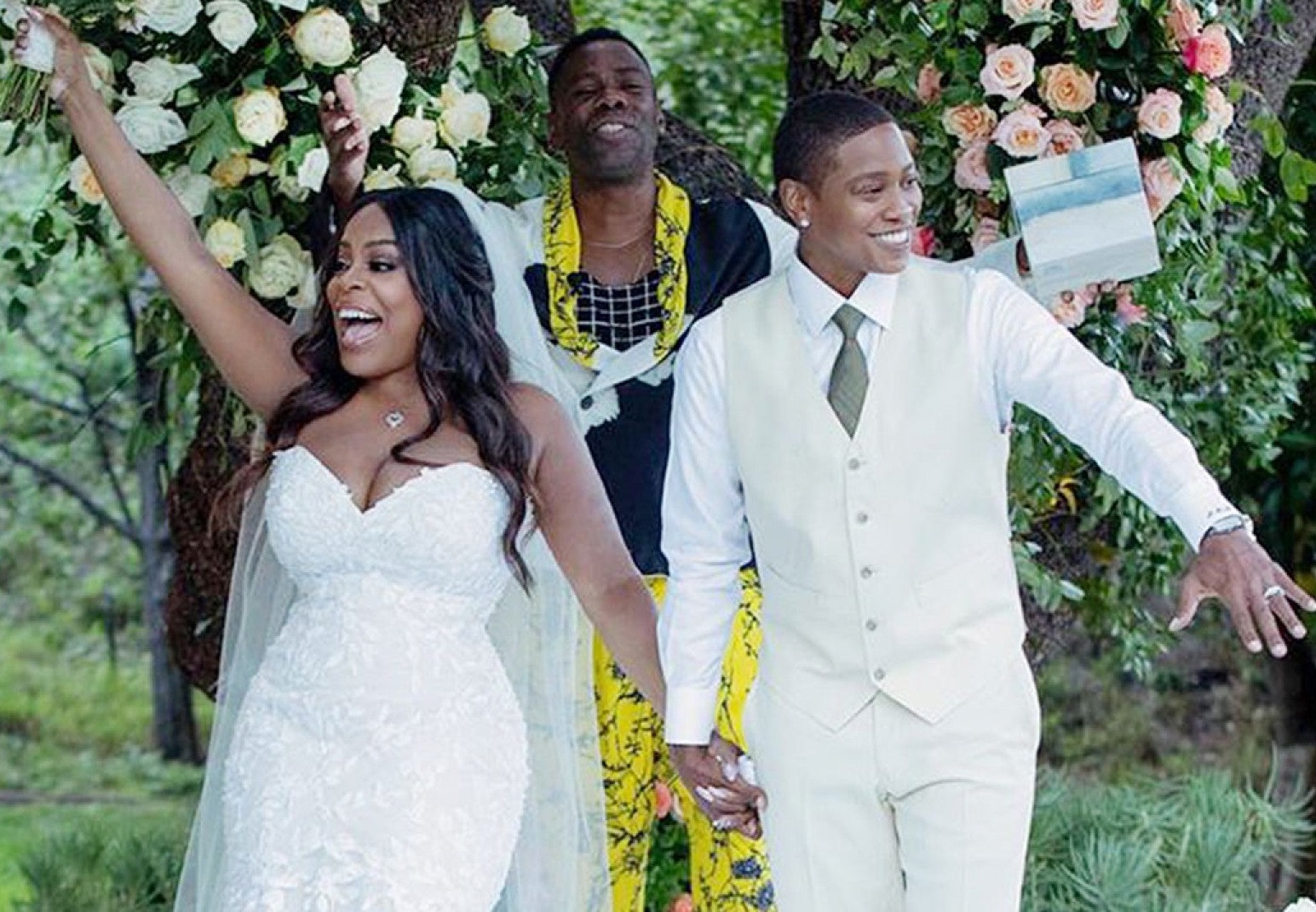
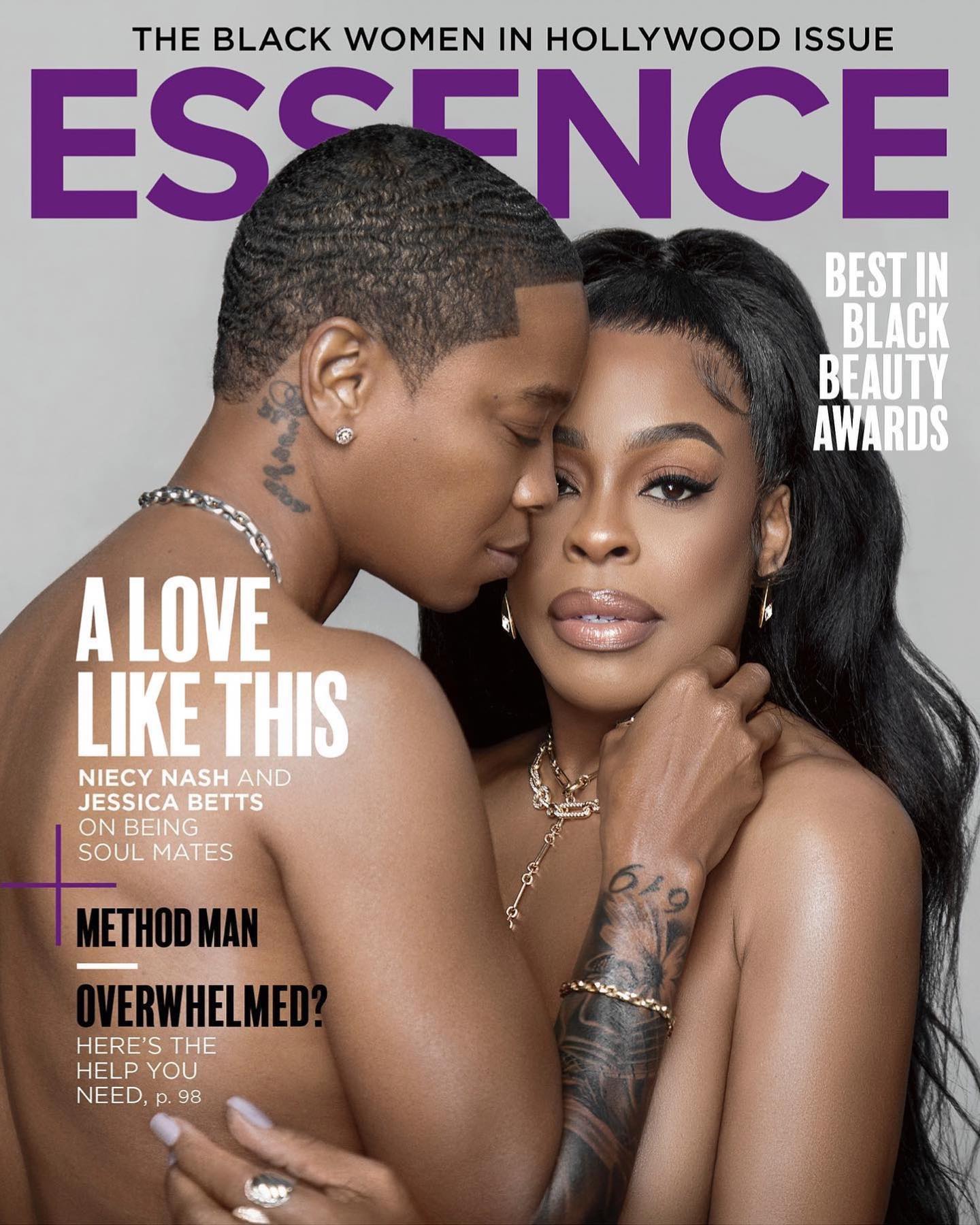
Niecy Nash and
Jessica Betts: First Same-Sex Couple on Cover of Essence
Magazine
Niecy Nash
and her wife, singer Jessica Betts, are making history.
The duo were featured on the cover of the latest edition
of Essence magazine, the first same-sex couple to do so.
The award-winning actress and television host shared the
cover of the magazine's March/April 2022 "Black Women in
Hollywood" issue on social media, the couple embracing
each other.
Essence has been an influence for African-American women
since its first publication in May 1970. The monthly
lifestyle magazine covers fashion, beauty, entertainment
and culture. In a news release, the magazine described
the issue featuring Nash and Betts as "honoring
breakthrough moments of even more Black women in every
area of their lives."
Niecy Nash and Jessica Betts Celebrate Making History as
First Same-Sex Couple to Cover Essence
Niecy Nash and Jessica Betts Become First Same-Sex
Couple To Grace Cover Of Essence
Niecy Nash and Jessica Betts: First Same-Sex Couple on
Cover of Essence Magazine
Niecy Nash and Jessica Betts in Historic
Essence Cover
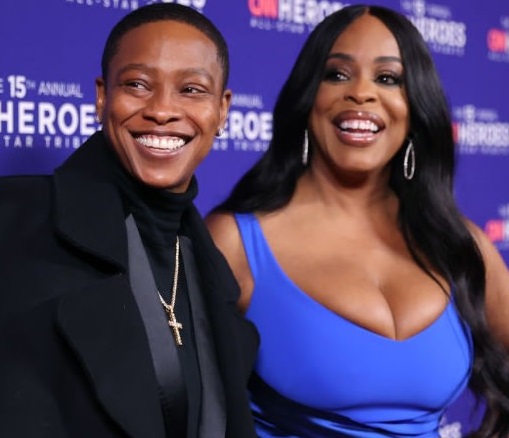
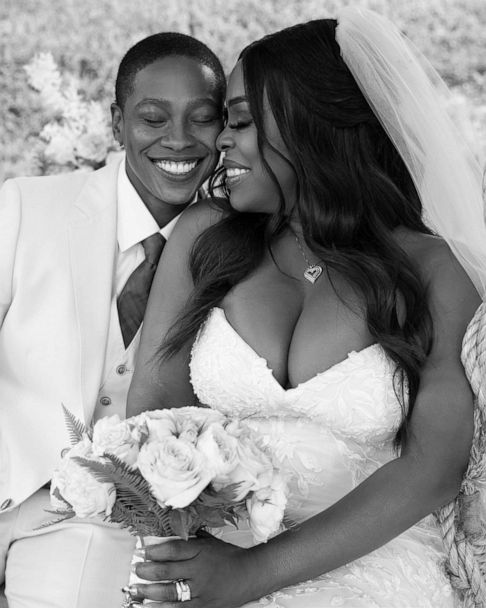
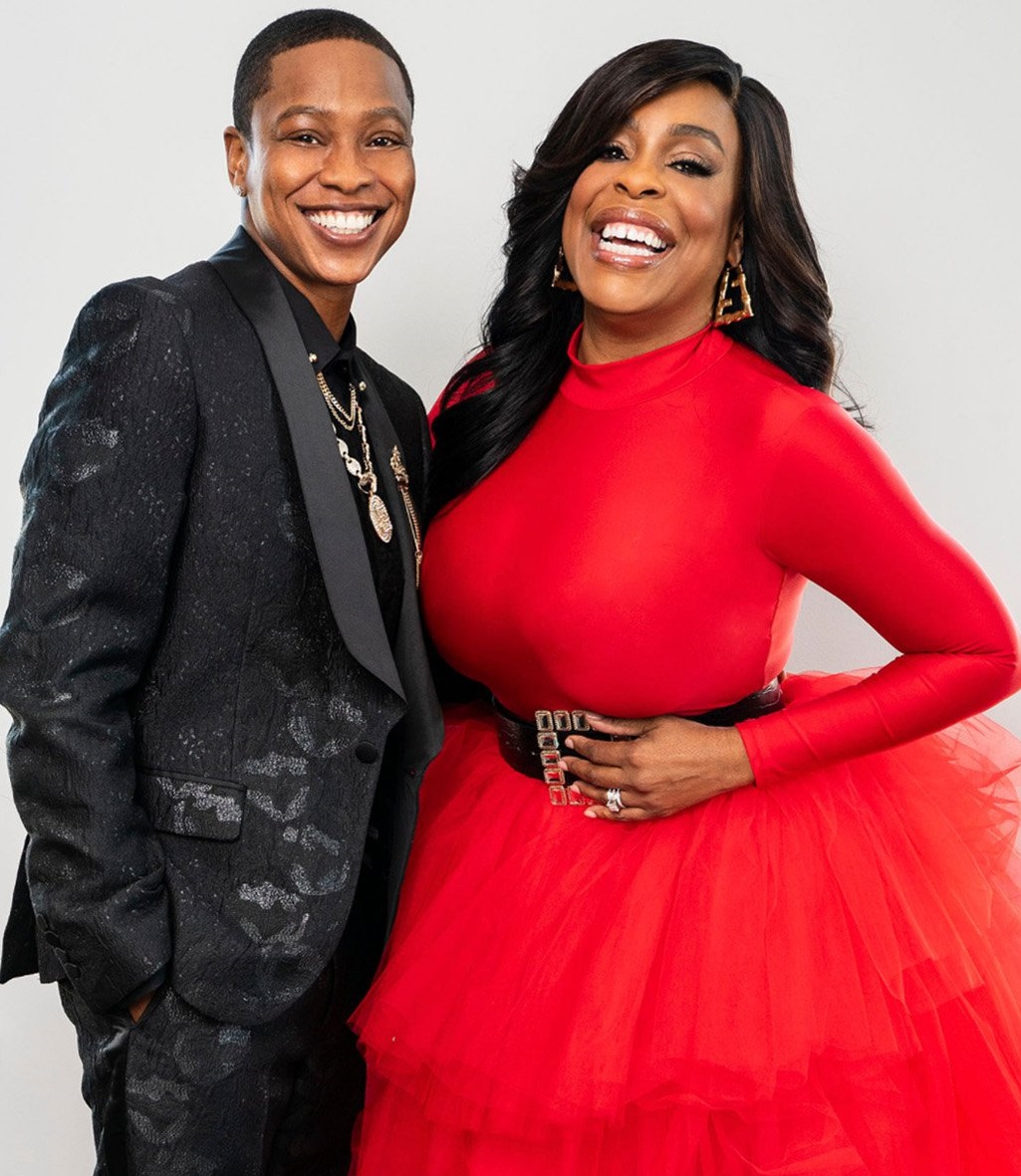
In the interview with Essence, the couple opened up
about their love story and how their relationship
blossomed into marriage. "The least of my attraction is
gender," Nash told Essence." What I was and am still
attracted to is Jessica's soul. She was the most
beautiful soul I had ever met in my life. Now that I've
experienced it, I can't imagine going through life
without it," she said.
[Source: Jonathan Franklin, National Public Radio,
February 2022]
National Black Justice
Coalition
Things to Know If You Are
QPOC
Black and Gay in New Orleans in the 60s
The Truth About Homophobia in the Black Community
Cory and Davonta: How We Met
Black Love: Same Sex Couples' Quest for Marriage
Equality
People of Color: Pioneers in Marriage Equality
TV Shows With Excellent Black LGBTQ
Characters
Coming Out: Black Gay
Broadway Star Jonathan Burke
James Baldwin: Explaining the Riots of 1968
Video: Racism in the LGBTQ Community
Black Queer Films To Watch This Black
History Month
Coming Out as
LGBTQ and Black
For many black individuals, coming out involves
additional cultural factors that make the process more
challenging but no less rewarding. It includes having to
deal with homophobic churches, strong family foundations
that emphasize heterosexuality, homophobia in the black
community, and racism in the broader LGBTQ community.
Thanks to brave LGBTQ black activists and their allies
there is more support and acceptance than ever before,
but there still exist many prejudices and roadblocks for
LGBTQ blacks.
Religion -
The church has traditionally played a central role in
guiding the day-to-day lives and beliefs of many black
Americans. Some churches and individual parishioners
have been unwelcoming to people with a different sexual
orientation or gender identity. The stance of the many
in the black community on homosexuality, either you
don’t talk about it or you condemn it, has been
historically dictated by the church. Over the past few
decades, new churches have been established specifically
to welcome and affirm LGBTQ people of color. Some
long-established black churches also have made progress
toward being more welcoming.
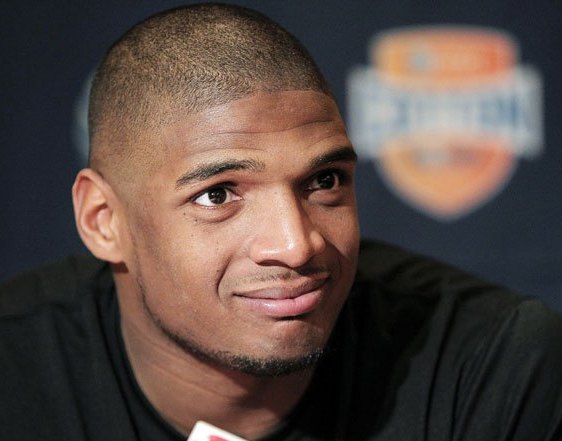

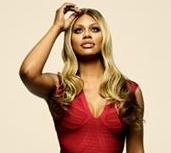
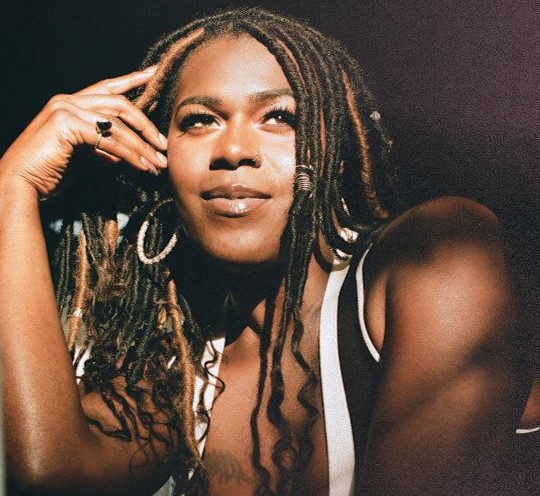
Family -
The black family unit often functions as a haven and
stronghold of support in a society where racism is still
prevalent. Often, there is no place in this fortress of
strength for a “weakness,” as homosexuality is often
viewed. LGBTQ children are sometimes viewed as being
detrimental and damaging to the black family and give a
negative impression for the whole black community.
Society and Media
-
Within the LGBTQ community, many of the same prejudices
that we see in the rest of society based on race, class,
and ethnicity still exist, which create unique
challenges black LGBTQ American trying to fit into the
LGBTQ community. Many LGBTQ communities and
organizations have been viewed as historically white and
can be uncomfortable or unwelcoming for some black
Americans. Black LGBTQ Americans have been virtually
invisible in history and when they are depicted their
sexual orientation is rarely mentioned. The media and
entertainment world rarely show LGBTQ people as anything
but white.
[Source: Coming Out for African Americans, Human
Rights Campaign]
B. Scott on BET: First
Trans Non-Binary Host and Producer
Students Explain: Being
Queer, Black and Proud
Black LGBTQ People in History
Love the One You're With: Black Queer Men Fight for Love
LGBTQ African American Stories
Black Lesbians You Should Know (2)
TED Talk: African and Gay
Info: Discrimination,
Prejudice, Bigotry
Black Love: Queer Couples Share Their Definition
Famous Black Lesbians You Should Know
Short Film: Who I Am
Derrick Gordon: Black LGBTQ Basketball Player
Minority Leaders in LGBTQ Movement
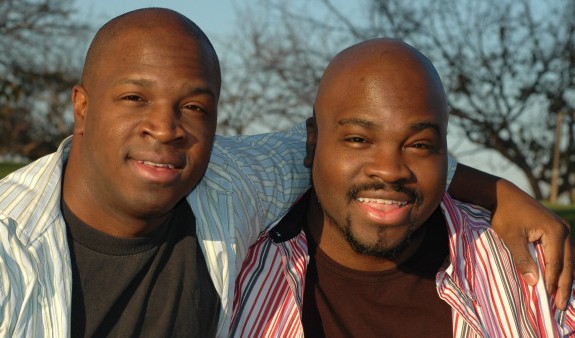
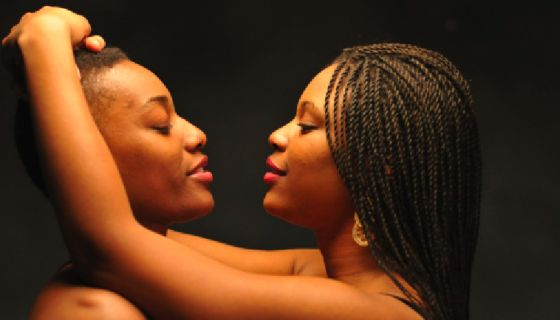
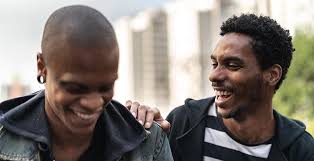
Essential Queer Black Films
Benjamin Carlton: Gay Black Minister
Black Gay and Queer Men From History You
Should Know
Chef Michael Twitty: Unites His Black and Jewish
Heritage With Food
Stunning Photos: Queer Africans
Janelle Monae: Growing Up
Queer and Black
Superstar Tenor Russell Thomas on Being a Black Queer
Man in Opera
Info:
Black Gay Drag Slang
How Many African Americans are LGBTQ?
Mia and Pauline
Where Would MLK Have Stood on Marriage Equality?
LGBTQ African American Celebrities
Jasika Nicole: Being Biracial and Queer in Hollywood
Info: Down Low Culture
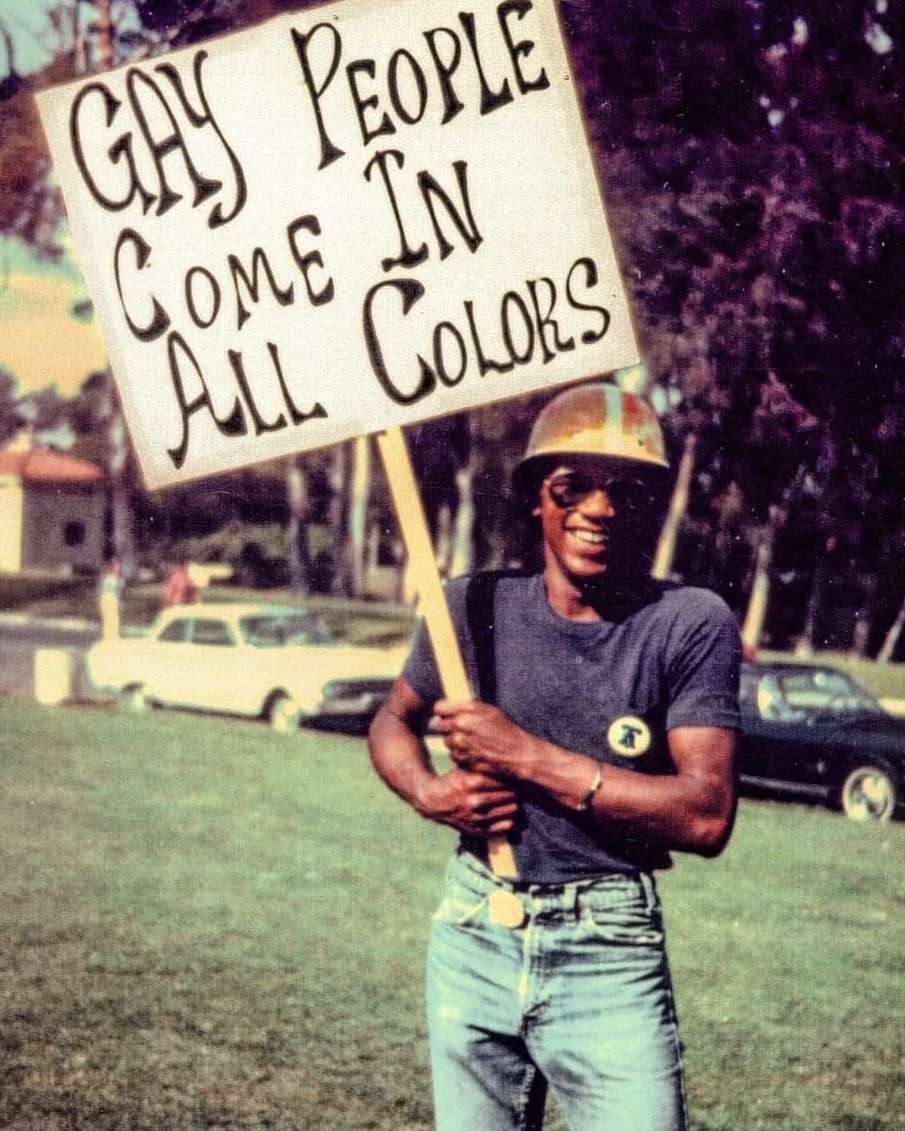
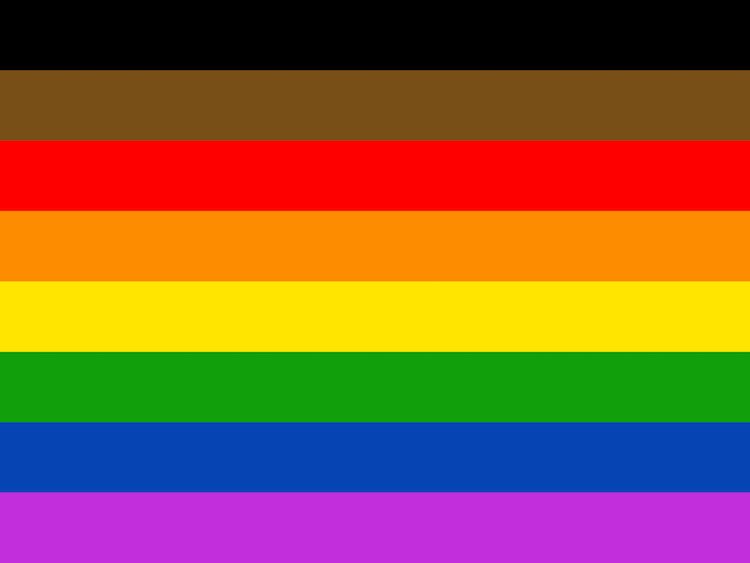
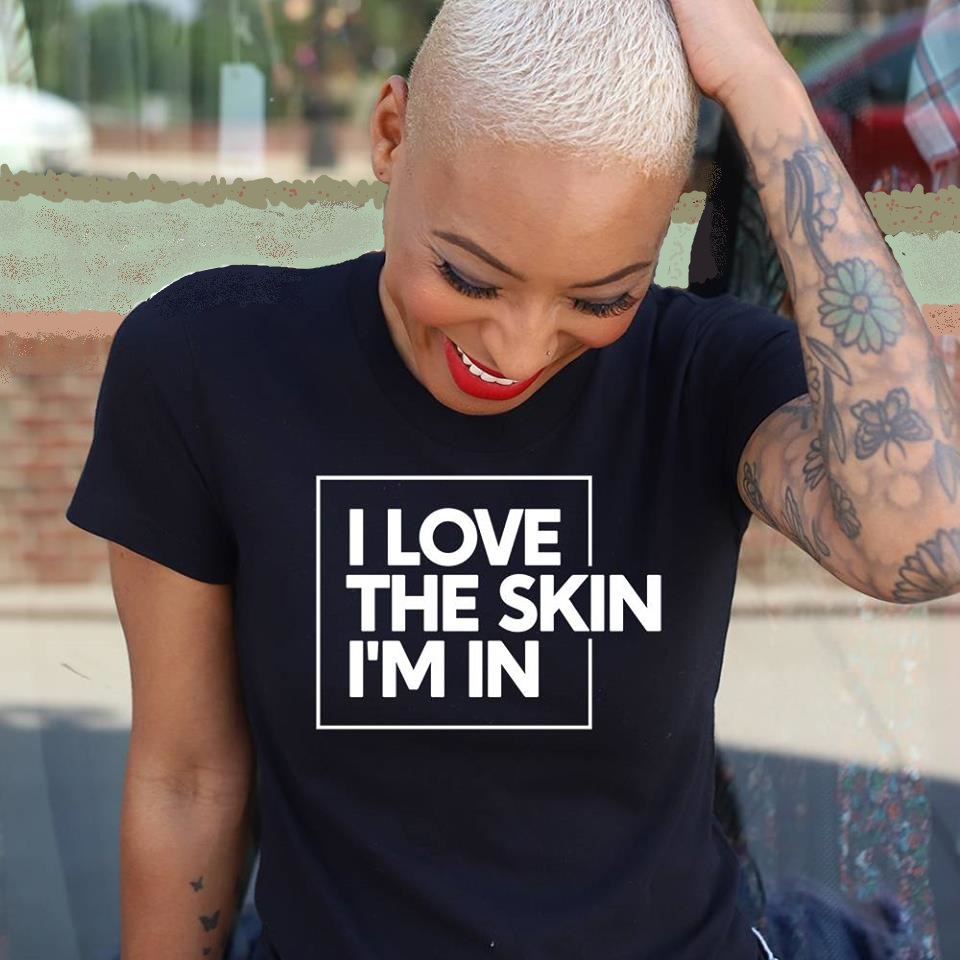
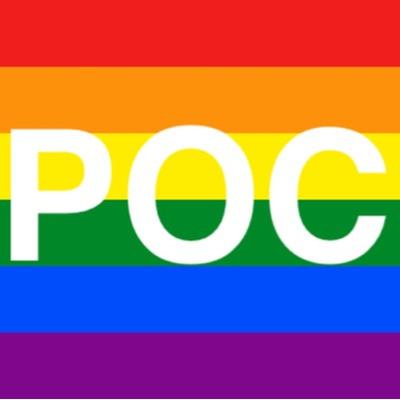
LGBTQ People of
Color
The term QPOC (Queer People of Color) has begun making
some traction in the LGBTQ African-American community
and in other non-white LGBTQ circles. Another popular
term being used is QBIPOC (Queer Black, Indigenous,
People of Color).
Thirty-nine percent of LGBTQ adults identify as people
of color, including 15 percent who identify as Latinx,
11 percent as Black, two percent as Asian Pacific
Islander, and one percent as Native American. This is
more diverse than the overall US adult population, which
is 65 percent white. The higher representation of people
of color in LGBTQ communities is in part related to age.
With increasing acceptance of LGBTQ people, younger
generations are more likely to be out as LGBTQ. Younger
people are also more likely to be of color, which is the
main reason that a large proportion of people of color
identify as LGBTQ. From service provision to movement
building, there is a need to respond and adapt to a new
generation in the US that is more diverse than any
previous generation in terms of race, sexual
orientation, and gender identity.
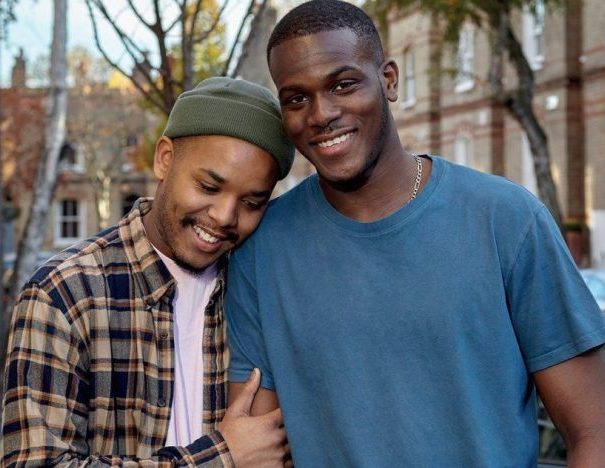
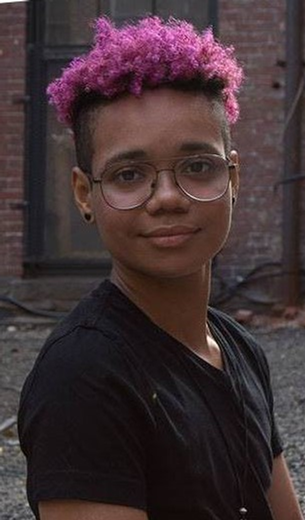
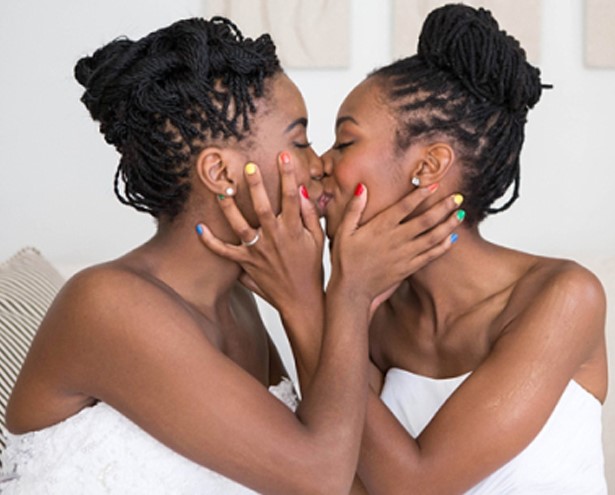
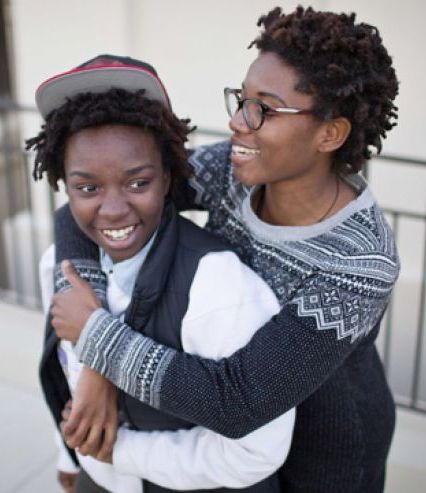
At the intersection of two marginalized identities,
LGBTQ people of color often face stark disparities:
--One in
five youth in the juvenile justice system identify as
LGBTQ, 85 percent of whom are people of color.
--LGBTQ people of color face high rates of unemployment:
15 percent of African American LGBTQ adults are
unemployed, as are 14 percent of Latinx LGBTQ adults and
11 percent of API LGBTQ adults, compared to 8 percent
unemployment for the general population.
--Gay and bisexual men of color continue to make up the
majority of new HIV/AIDS infections in the US, with
Black men accounting for 39 percent of 2014 HIV
diagnoses among men who have sex with men, and Latinos
accounting for 24 percent.
[Source: Funders for LGBTQ Issues]
Being an LGBTQ Person of Color
Things to Know If You Are
QPOC
Funders for LGBTQ Issues: LGBTQ People of Color
LGBTQ People of Color: Double Discrimination
LGBTQ Spaces: Uncomfortable for Queer People of Color
Movement Advancement Project: LGBTQ People of Color
Brown Boi
Project: Communities of Color Talk About Gender
LGBTQ People of Color Call
Rural America Home
TV Shows With Excellent Black LGBTQ
Characters
Bayard Rustin
Posthumously Pardoned
As a civil
rights leader and an advocate for justice, Bayard Rustin
was no stranger to being behind bars. He was arrested
for his anti-war efforts in opposition to World War II.
He was arrested for protesting segregation laws in the
Jim Crow-era South. But in 1953, he was arrested for
reasons outside his activism — for having sex with men.
Rustin was jailed on a "morals charge." He was
eventually convicted of misdemeanor vagrancy and was
sentenced to 60 days in jail. The offense landed him on
the sex offender list, cost him jobs and was used to
delegitimize the civil rights movement by people like
segregationist Sen. Strom Thurmond, who read Rustin's
arrest record on the Senate floor.
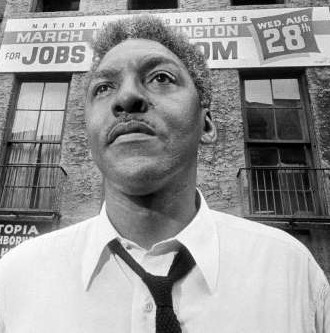
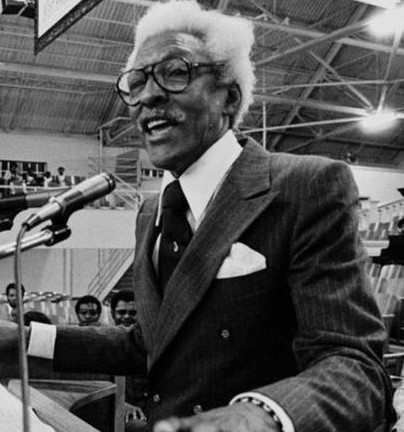
In February 2020, 67 years after that arrest and 33
years after his death, Rustin received a pardon from
California Gov. Gavin Newsom. "Mr. Rustin was
criminalized because of stigma, bias, and ignorance,"
Newsom said in the pardon. "With this act of executive
clemency, I acknowledge the inherent injustice of this
conviction, an injustice that was compounded by his
political opponents' use of the record of this case to
try to undermine him, his associates, and the civil
rights movement."
Rustin's pardon is part of a new initiative from
Newsom's office to grant clemency to people who were
prosecuted in California for being gay, inspired by a
push from leaders of the California Legislative Black
Caucus and the California Legislative LGBTQ Caucus. "In
California and across the country, charges like
vagrancy, loitering, and sodomy have been used to
unjustly target lesbian, gay, bisexual, transgender, and
queer (LGBTQ) people," according to a news release from
Newson's office. "Law enforcement and prosecutors
specifically targeted LGBTQ individuals, communities and
community spaces for criminal prosecution. Now, as a
proudly LGBTQ-allied state, California is turning the
page on historic wrongs."
Rustin led and organized some of the most pivotal
protests of the civil rights movement. Most famously, he
was the mastermind behind the 1963 March on Washington.
He was the main person who pushed the movement (and
Martin Luther King) toward nonviolent ideas and tactics.
Rustin traveled to India in 1948 to learn more about
pacifist ideas and helped introduce those teachings to
King. Following the success of the Montgomery bus
boycott in 1956, Rustin became a close confidant and
advisor of King. Rustin played a significant role in the
formation of the Southern Christian Leadership
Conference. Though former President Barack Obama awarded
Rustin the Presidential Medal of Freedom in 2013, he
remains much less known when compared to his civil
rights movement peers. Some academics argue this is due
to the homophobia of the time.
[Source:
CNN, February 2020]
Biography: Bayard Rustin, Advisor to
Martin Luther King
Biographical Notes: Bayard Rustin
CNN: Civil Rights Leader Bayard Rustin
Pardoned After 67 Years
PBS: Bayard Rustin, Designer of the
March on Washington
Posthumous Pardon for Bayard Rustin
The Gay Man Black History Erased
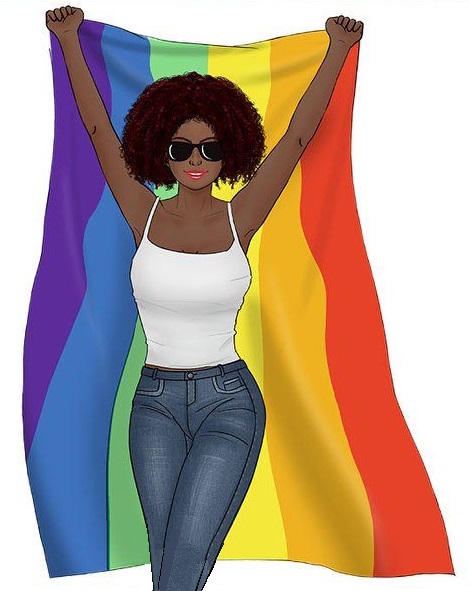
Notes on
LGBTQ African Americans
LGBTQ Developmental Tasks for African-American Students
"Those who stand outside the circle of this society’s
definition of acceptable women, those of us who are
poor, who are lesbian, who are Black, who are older –
know that survival is not an academic skill. It is
learning how to stand alone, unpopular and sometimes
reviled, and how to make common cause with those others
to define and seek a world in which we can all flourish.
It is learning how to take our differences and make them
strengths."
-Audre Lorde, 1984, Sister Outsider
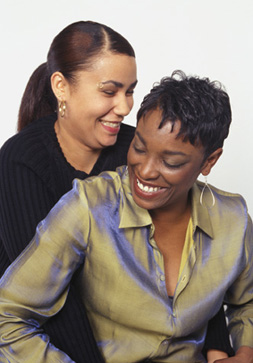

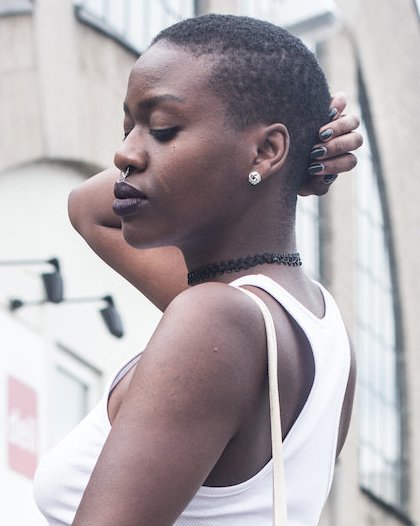
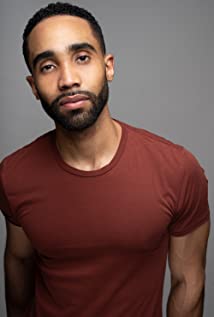
"I hate being invisible. Being both Black and gay, I
haven’t developed the courage to fight on two
battlefields. So I’ve chosen one by default; the obvious
one, the easy one, the Black one… As a gay person, I’ve
feared losing the love of family, and facing the wrath
of community. I’ve searched through an obscure history.
Allies are gay friends also trying to remain invisible
and straight friends sworn to keep my secret… While I
openly share the beauty of my Black experience, insight
gained from being gay is shared only when it’s safe.
Black publications proudly announce their arrival, while
gay publications arrive hidden in plain manila
envelopes…When I’m hurt as a Black person I have an
instant support network. When I’m hurt as a gay person,
I’m left to lick my wounds until I find a safe place… I
fear taking on another label and providing people with
yet another reason to view me as a target. It’s
difficult enough educating people to see Black people as
multi-dimensional and not flat stereotypes. Why take on
the added burden? I suffer as a result of this decision…
Just as Black people need distance from the distorted
image reflected by Whites, so too do we as gays need an
environment in which to affirm ourselves…When people
think, “gay” they see, “White.” When they think “Black”
they fail to see “gay” …Our success in being invisible
robs us of knowing ourselves and each other. It further
robs us of being known on our own terms...Yet, the risk
of being visible is one that too few of us is willing to
take. Someday I’ll marshal the strength to fight on two
battlefields. Until then I’ll choose the obvious one,
continue to be invisible and hate it."
-Chuck, Blackstripe
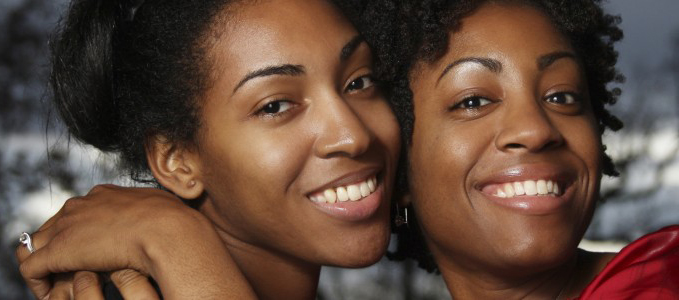
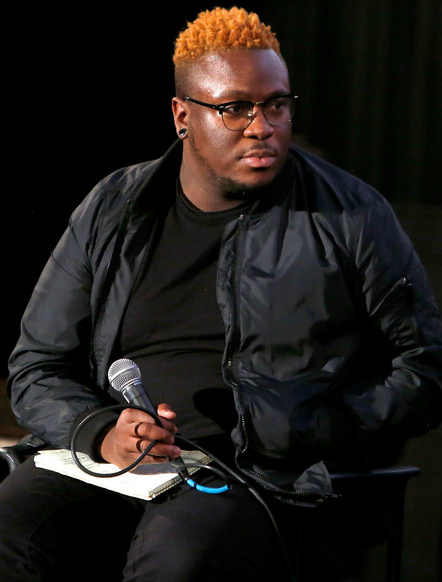
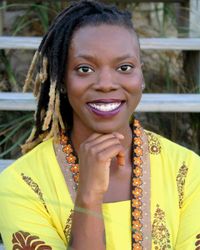
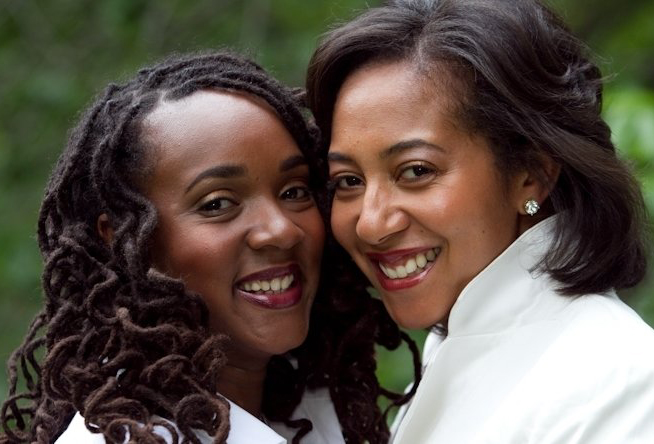
These two excepts highlight the challenges gay African
Americans must face. They have the task of dealing with
the intersection of multiple identities (intertwined
states of “otherness”): Sexual orientation, race, and
gender (women). This can be a stressful and lonely
journey. The challenge is in learning how to negotiate
and manage these simultaneous states of social
realities.
[Source: Dr. Angela D. Coker, University of
Alabama at Birmingham, School of Education]
HRC: Religion and Coming Out Issues for African
Americans
Black Gay Christians Speak Out
Queer Black Man Talks to His Grandmother
Black Love: Queer Couples Share Their Definition
Michael Arceneaux: Gay, Black, and Beyonce Obsessed
Nobody by Jade Novah and Cynthia Erivo
LGBTQ African American Celebrities
What Does it Mean to Be Queer and Black in America
Today?
Info: Discrimination,
Prejudice, Bigotry
Janelle Monae: Growing Up
Queer and Black
Gospel Music Would Be Nothing Without
Black Queer and Trans Artists
Things to Know If You Are
QPOC
Black Gay Men You Should Know (1)
Our Families: LGBTQ
African American Stories
Tia and Nadine
Essential Queer Black Films
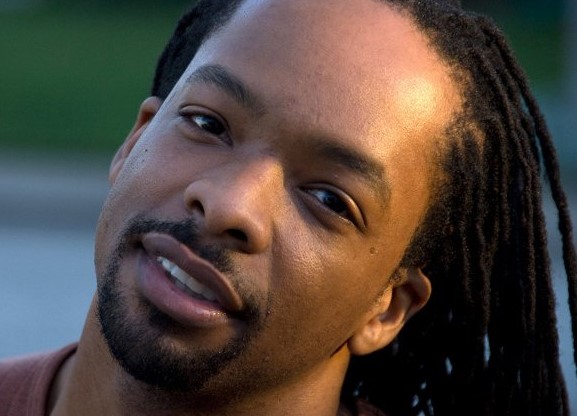
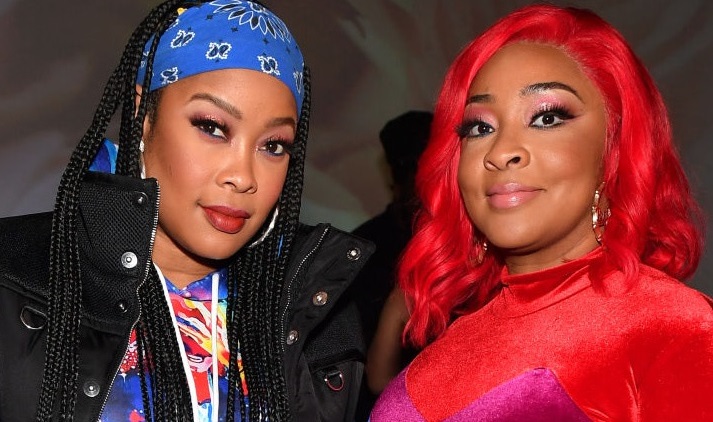

Video: Black Gay Men Attending Homophobic Churches
Growing Up Black and Gay in the South
Mia and Pauline
Black Gay and Queer Men From History You
Should Know
Beauty of Blackness
Chef Michael Twitty: Unites His Black and Jewish
Heritage With Food
Black Lesbians You Should Know (1)
Raven-Simone: Don't Label Me Gay or African American
LGBTQ African American Stories
Video Talk: Black Gay Man Learns to Love Himself
Janelle Monae: Growing Up
Queer and Black
Famous Black Lesbians You Should Know
Feminista Jones: Black Feminism
Trans Sistas of Color Project
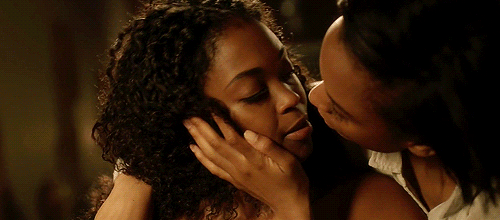
How Many African Americans
are LGBTQ?
According
to one report, there is a growing number of individuals
who identify as lesbian, gay, bisexual, transgender, or
queer in the black community.
The study indicates there are more than one million
African-American LGBTQ adults in the US. Of those
individuals, 84,000 are in same-sex households with
about 34 percent of couples raising children. These
numbers come about a year after a Gallup report that
found African-Americans make up the largest share of the
LGBTQ community.
The report highlights some key findings, including the
fact that 58 percent of African-American LGBTQ couples
are female, and the economic challenges many LGBTQ
African-Americans face.
For example, the report finds overall higher
unemployment rates and lower proportions with a college
degree among LGBTQ African-Americans, when compared to
their non-LGBTQ counterparts. However, these
disadvantages are not present among African-Americans in
same-sex couples, with 25 percent having completed a
college degree, compared to 22 percent of
African-Americans in heterosexual couples. In addition,
71 percent of African-Americans in same-sex couples are
employed compared to 68 percent of their heterosexual
counterparts.
[Source:
Huffington Post, Black Voices, October 2013]
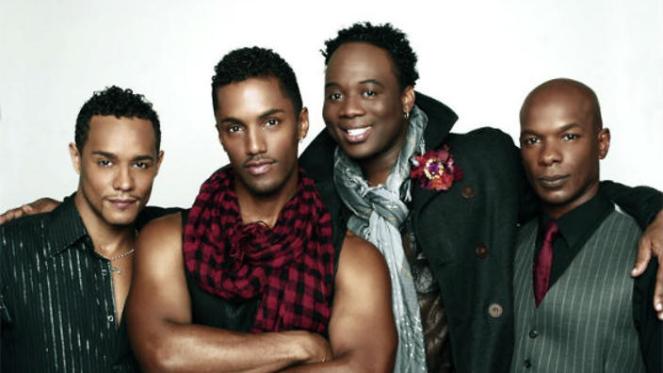
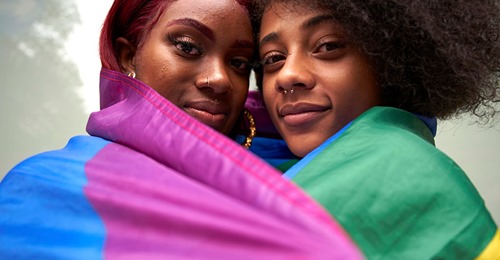
Redefining What It Means to be a Gay Black Man
Coming Out as a Black Transgender Woman
Tia and Nadine
Black Lesbians You Should Know (2)
HRC: Being African American and LGBTQ
MAP: Talking About LGBTQ Equality With African Americans
Video: Racism in the LGBTQ Community
Black Love: Same Sex Couples' Quest for Marriage
Equality
Channing-Studville
Black Gay Men You Should Know (2)
Gay Pride: Are Black Gay Men Proud?
National Black Justice
Coalition
Queer POC: Realities of Being a Young Black Gay Man
James Baldwin: Speaking on Dick Cavett Show
Video Talk: Black Gay Man Learns to Love Himself
Her Story: The Lesbian and the Black Church
Lori Lightfoot:
Black Lesbian Becomes Chicago Mayor
Chicago mayoral candidate Lori Lightfoot trounced her
opponent in April 2019 and made history. Lightfoot will
be the only black lesbian mayor in the nation. And the
first out mayor of one of America’s three largest
cities.
“A Black lesbian taking power in the nation’s
third-largest city is a historic moment for so many
communities that are too often ignored in American
politics,” said former Houston mayor Annise Parker.
Parker, the President & CEO of LGBTQ Victory Fund
formerly held the record as the “highest ranking” out
mayor. Houston is the nation’s fourth largest city.


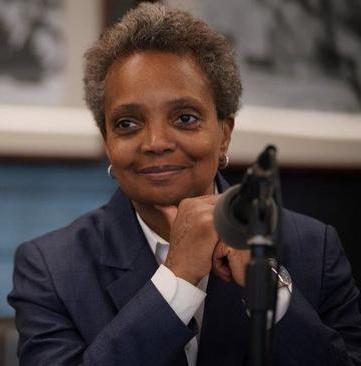
LGBTQ Nation: Black Lesbian Becomes Chicago Mayor
USA Today: Chicago Makes History with First Gay, Black,
Female Mayor
Chicago Tribune: Lori Lightfoot Breaks the Rules
“Chicago’s enormous influence on the national dialogue
provides a platform for Lori to promote more inclusive
solutions to the challenges facing our cities and nation
– and to be a credible messenger as well,” Parker said.
“Lori will certainly remain focused on the issues facing
Chicago. But as the highest-ranking LGBTQ person ever
elected mayor of an American city (a title she takes
from me) she is also now a key leader in the movement to
build LGBTQ political power nationwide.”
“As the
first openly LGBTQ woman of color to be elected mayor in
any of America’s 100 largest cities and the first black
woman to serve as Mayor of Chicago, Lightfoot is an
inspiration to thousands of LGBTQ people of color who
have a new role model in elected office,” DNC chair Tom
Perez said in an emailed statement.
“This historic win reaffirms that our diversity is our
greatest strength, and that our elected leaders should
reflect the diversity of the communities they represent.
I look forward to working with Mayor-elect Lightfoot as
she fights to build a brighter future for all. The
people of Chicago will be well served with her
leadership.”
Queer Black Trailblazers
Tarek Ali: The Truth of a Gay Black Man
How Can LGBTQ White People
Be Better Allies to Black People
Tyler Perry: Speech
Following George Floyd's Death
Growing Up Black and Gay in the South
Info: Discrimination,
Prejudice, Bigotry
Cory and Davonta: How We Met
Coming Out: Black Gay
Broadway Star Jonathan Burke
Black Gay Men You Should Know (2)
HRC: Being African American and LGBTQ
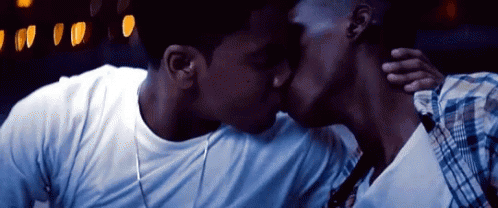
LGBTQ
Black College Students
African-American students in general are developing
ethnic and racial identity. LGBTQ African-American
students have an understanding that gayness is not a
White phenomenon.
African-American college students in general interact
with the dominant culture. LGBTQ African-American
college students are dealing with homophobia from
general society. What are the benefits or risks to
“coming out?”.
African-American college students in general are
developing cultural aesthetics and awareness. LGBTQ
African-American college students are developing
cultural aesthetics and awareness.
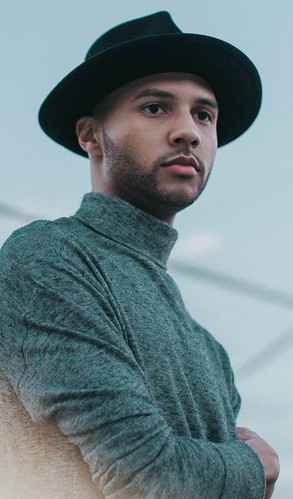
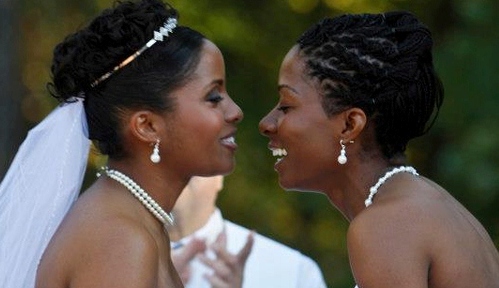
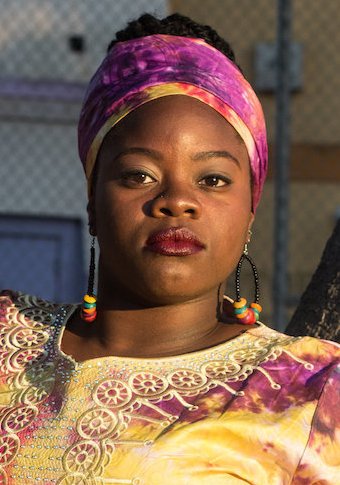
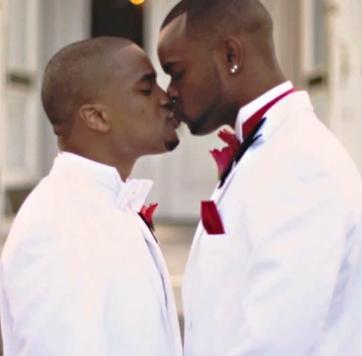
African-American college students in general are
developing identity. LGBTQ African-American college
students are asking themselves, "Who am I as a
racialized homosexual being?" For men: trying to define
Black manhood; For women: learning how to sort through
issues of physical attractiveness. Must deal with
racism, sexism, and homophobia. Have evolved outside of
society’s definition of femininity
African-American college students in general are
developing Interdependence. LGBTQ African-American
college students ask themselves, "What will my family,
friends, and community think? Will they disown me?"
Social isolation and/or secrecy. Fear of being found
out. Maintaining ties to family and community.
African-American college students in general are
fulfilling affiliation needs. For LGBTQ African-American
college students, much of one’s identity is constructed
on the basis of community connection. Managing the
coming out process and maintaining strong connection to
group.
African-American college students in general are
surviving intellectually. LGBTQ African-American college
students are learning how to deal with stress of
academia while trying to sort out one’s identity. What
will my professor think? Will often travel to other
cities for social outlets (this is time that could be
used to study instead of spending several hours on the
road to another city)
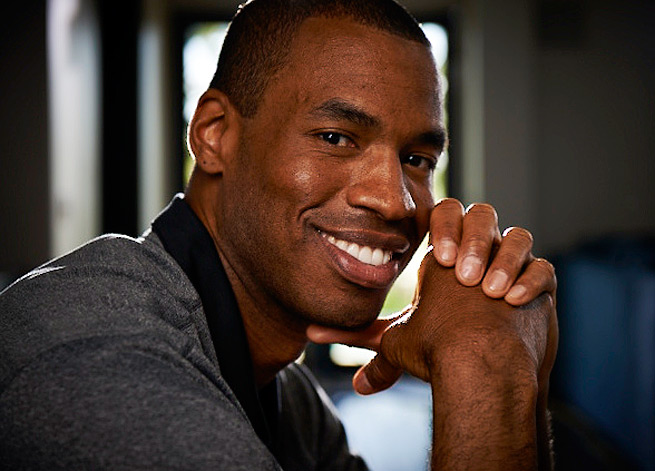
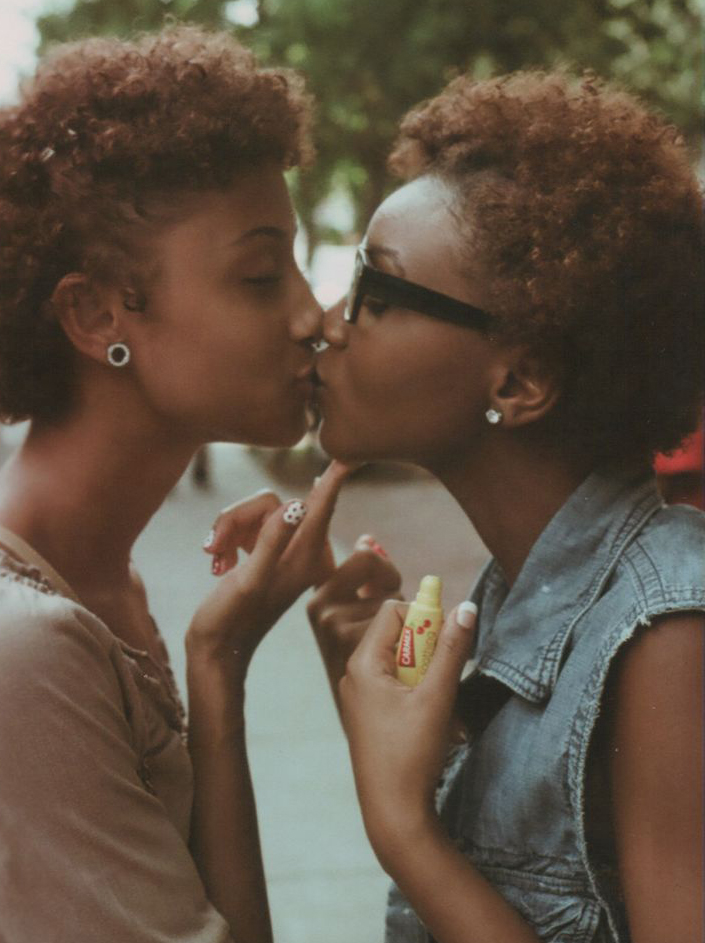
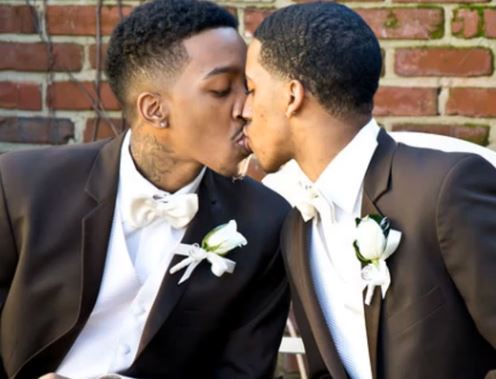
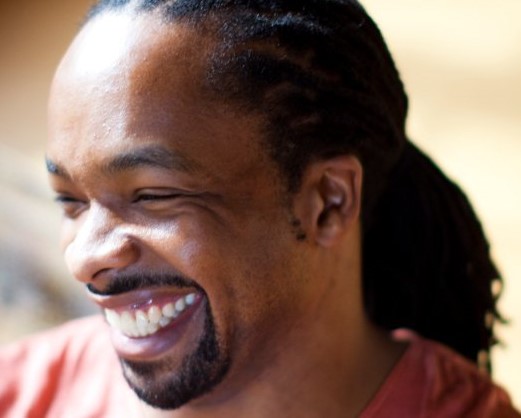
African-American college students in general are
developing spiritually. LGBTQ African-American college
students are maintaining connections with religious
organizations. Fear of being ousted from their church.
Wrestling with relationship with higher power.
African-American college students in general are
developing social responsibility. LGBTQ African-American
college students are dealing with the “coming out”
process and recognizing the need to be role models for
other African American LGBTQ persons, thereby reducing
the invisibility.
Questions for Educators:
In what ways can we make our classrooms/learning
communities more inclusive and user-friendly for LGBTQ
students? How often do we engage in self-reflection and
an examination of our own values and biases with respect
to race, gender, and homosexuality? How might our
personal issues, comments, subtle message impede the
educational process for students who are members of this
group?
[Source: Angela D. Coker, PhD, LPC, NCC, University of
Alabama at Birmingham, School of Education. McEwen, M.K., Roper, L.D., Bryant, D.R., & Langa, M.J.
(1990). Incorporating the development of
African-American students into psychosocial theories of
student development. Journal of College Student
Development]
Gay Pride: Are Black Gay Men Proud?
TED Talk: African and Gay
Black LGBTQ People in History
Video Interview: Black, Christian, Lesbian
Mia and Pauline
Famous Black Lesbians You Should Know
Queer Black Trailblazers
Black Lesbians You Should Know (1)
The Truth About Homophobia in the Black Community
Chef Michael Twitty: Unites His Black and Jewish
Heritage With Food
Video: Racism in the LGBTQ Community
Black Queer Films To Watch This Black
History Month
James Baldwin: Speaking on Dick Cavett Show
Our Families: LGBTQ
African American Stories
Tia and Nadine
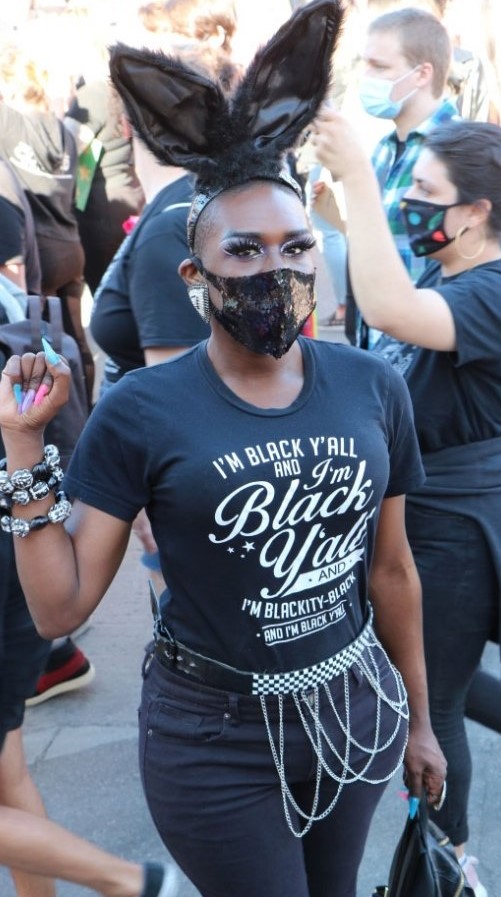
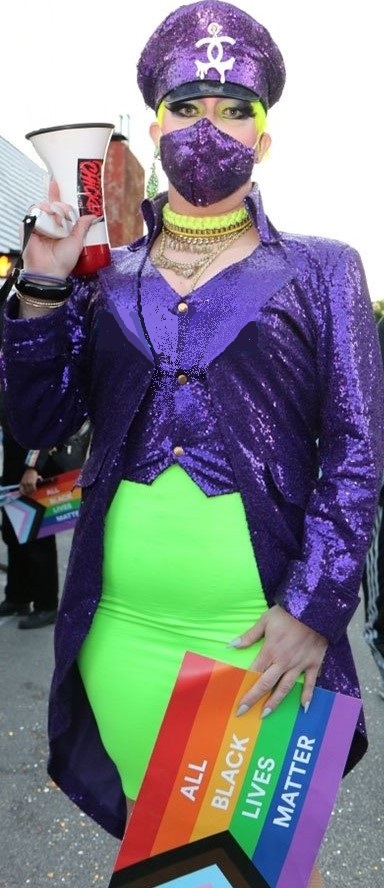
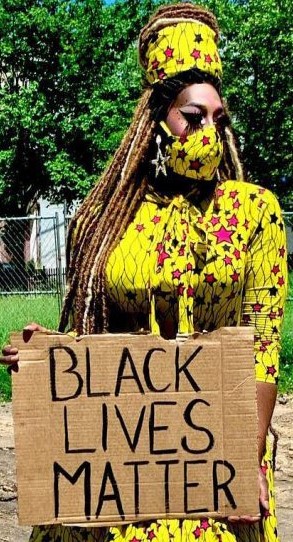
TED Talk: Misadventures of a Tired Gay Black Man
Moorehouse College Now Accepting Trans Men
Growing Up Black and Gay in the South
Info: Discrimination,
Prejudice, Bigotry
MAP: Talking About LGBTQ Equality With African Americans
LGBTQ African American Celebrities
Kehinde Wiley: Black Gay Artist
Things to Know If You Are
QPOC
Beauty of Blackness
Gospel Music Would Be Nothing Without
Black Queer and Trans Artists
Black Gay Men You Should Know (1)
James Baldwin: Explaining the Riots of 1968
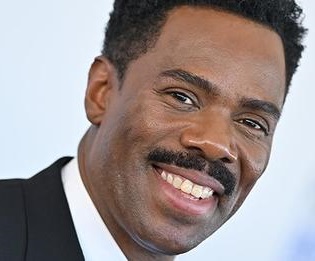 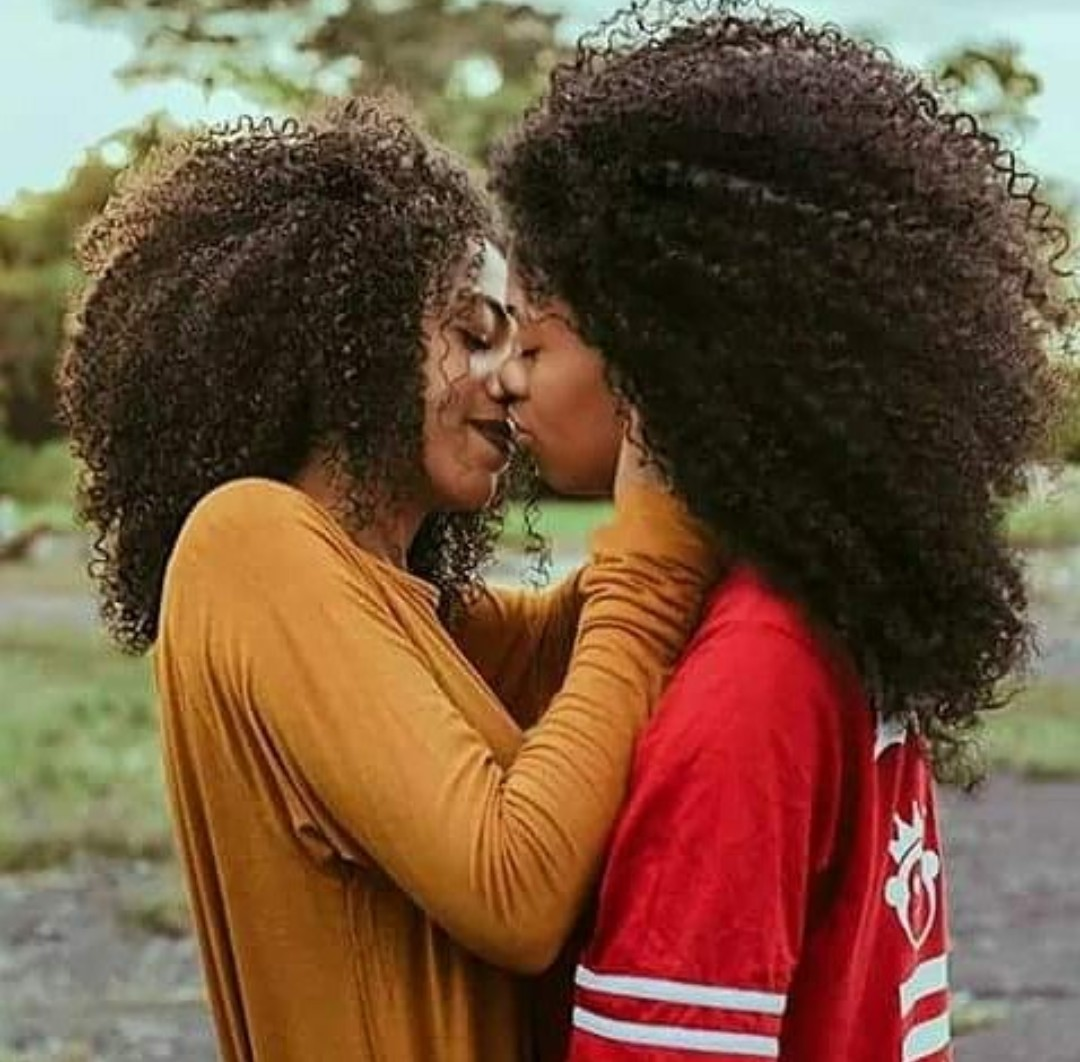
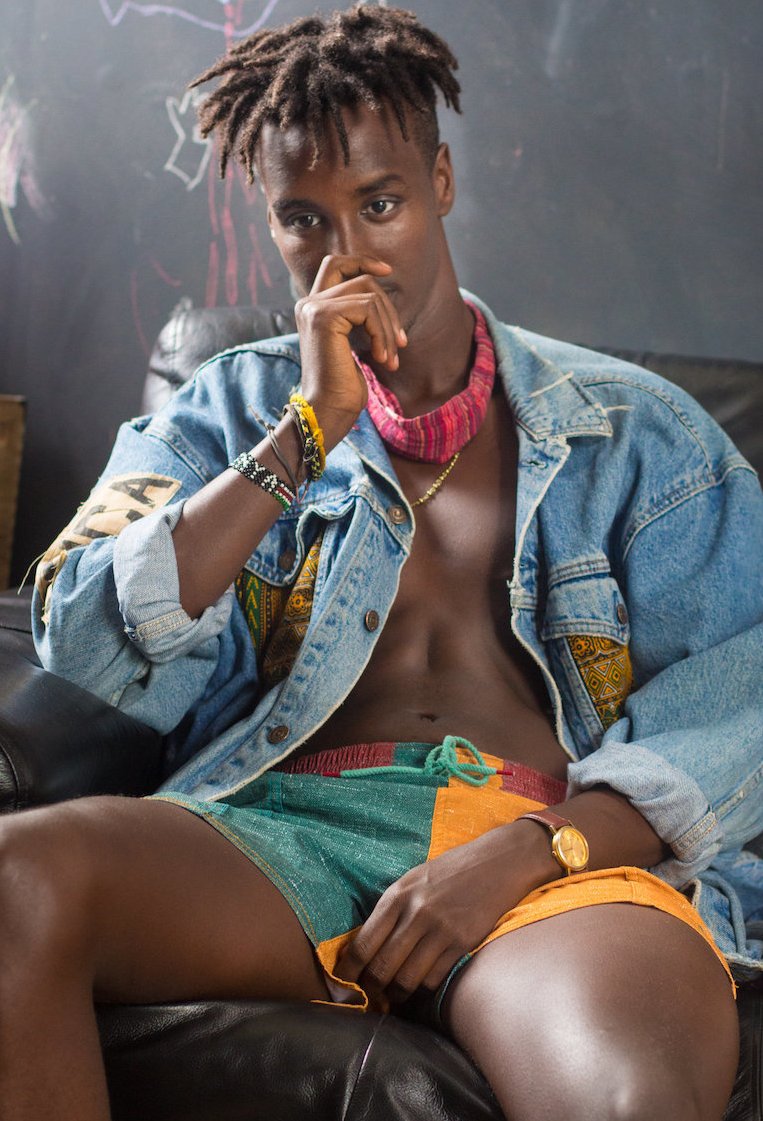
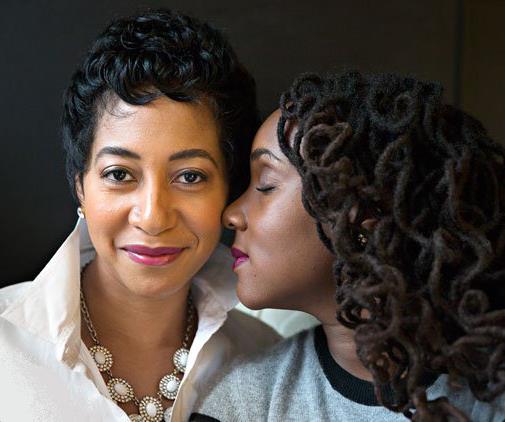
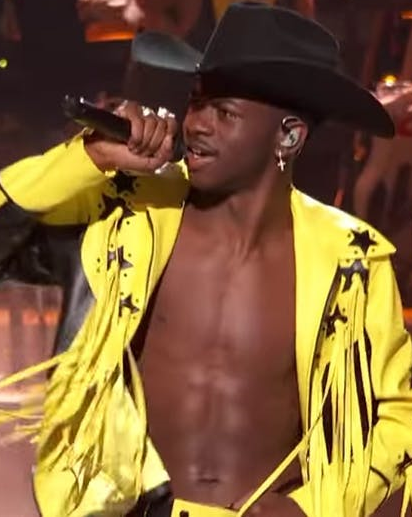
Lena Waithe: Gay
Black Girls Rock
Lena
Waithe, who is a gay black woman, is an American
actress, producer, and screenwriter. She is known for
co-writing and acting in the Netflix series Master of
None. Waithe made history at the 69th annual
Primetime Emmy Awards when she won Outstanding Writing
for a Comedy Series for her work on Master of None,
becoming the first black woman to do so. The
"Thanksgiving" episode for which she won the Emmy was
partially based on her personal experience coming out to
her mother. She is also the creator of the Showtime
series The Chi. Here are some of Lena's recent
eloquent remarks:
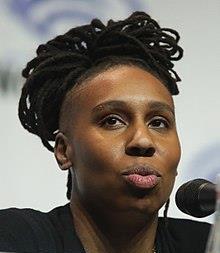
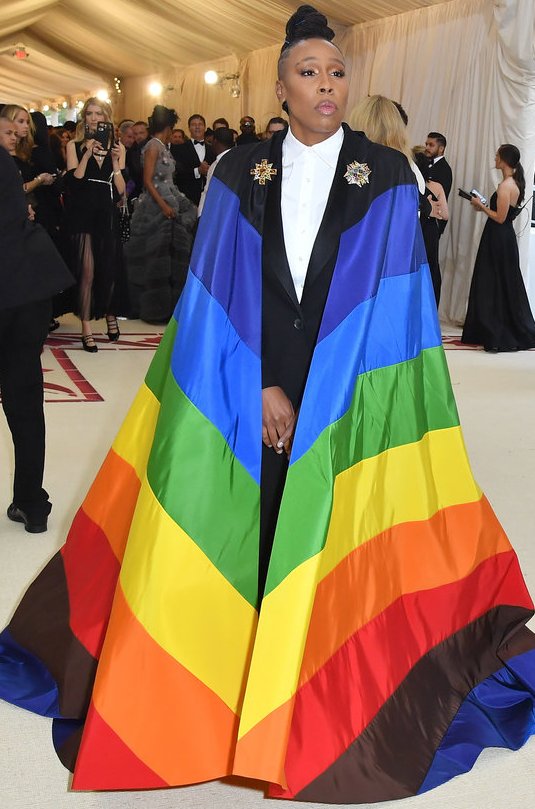
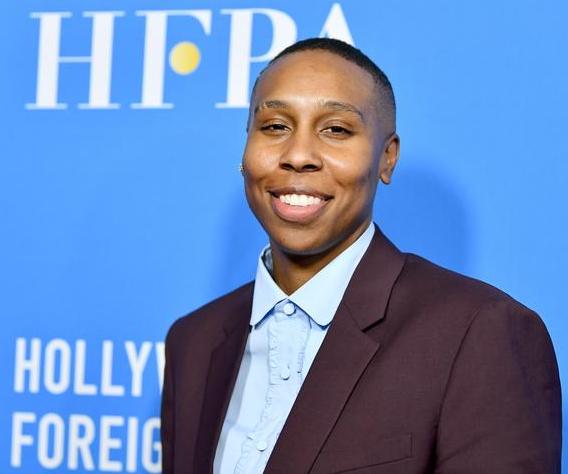
“Let’s get
free of the idea that we can’t go after our dreams
because of how we look, where we come from, who we love
or how old we are. We all have gifts and we can either
lock into those gifts or act like we don’t exist. You
can’t live your dream if you don’t go after it.”
“Many
queer kids, they don’t feel love. They don’t feel seen
and they don’t feel heard. I don’t just want these kids
to live, but I want them to live their best lives
because we as a society will benefit from all the many
gifts they have to share. Our youth deserve to know that
they weren’t born to be perfect. They were born to be
whole.”
Lena Waithe: Gay Black Girls Rock
Lena Waithe: Queer Superhero
BET: Lena Waithe's Acceptance Speech
Lena Waithe: My Favorite Black Queer Icons
Critical Issues
Facing LGBTQ African Americans
African
Americans are, and have always been, a vibrant part of
the lesbian, gay, bisexual, transgender, queer (LGBTQ)
and same gender-loving community. From trailblazing
pioneers such as openly gay novelist James Baldwin and
transgender rights activist Marsha P. Johnson, to
modern-day heroes such as actress Laverne Cox and
basketball star Jason Collins, LGBTQ African Americans
have made enormous contributions to the ongoing fight
for social, racial and economic justice.
According to the Williams Institute, there are more than
1 million LGBTQ African Americans currently living in
the United States, with approximately 3.7 percent of all
African American people identifying as LGBTQ. LGBTQ
African Americans are disproportionately young and
disproportionately female, and nearly one-third of all
African American same-sex couples are raising children.
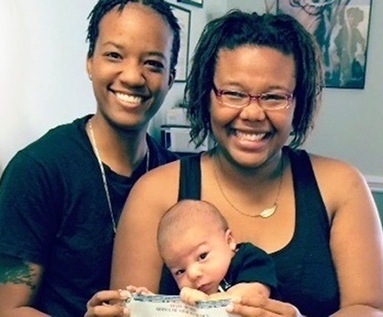
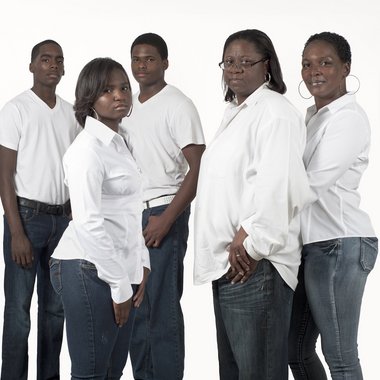
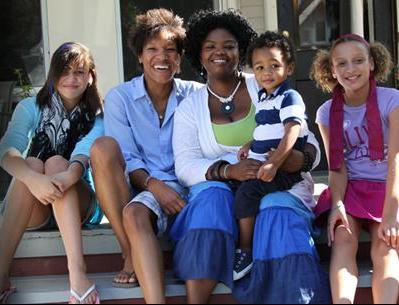
TED Talk: Misadventures of a Tired Gay Black Man
How Many African Americans are LGBTQ?
National Black Justice
Coalition
Slideshow: Black LGBTQ
People in History
James Baldwin: Explaining the Riots of 1968
Gay Pride: Are Black Gay Men Proud?
TED Talk: African and Gay
Queer Blackathon: Black
LGBTQ Book Recommendations
The Truth About Homophobia in the Black Community
LGBTQ African Americans live in communities across the
nation, but there are some areas of the country where
the LGBTQ African American population is more heavily
concentrated. Washington, DC comes in at number one due
in part to the large number of African Americans who
live in and around the nation's capital. Maryland,
Georgia, New York and North Carolina also have large
numbers of LGBTQ African American residents, as do
several other states in the Deep South. Notably, many of
these states lack statewide non-discrimination
protections for LGBTQ people.
What are some important issues facing LGBTQ African
Americans? While the Civil Rights Movement
resulted in monumental legal changes for a country just
100 years removed from slavery, African Americans
continue to experience bias, discrimination and
prejudice at all levels of society. The situation is
even more severe for LGBTQ African Americans, who live
at the intersection of racism, homophobia and
transphobia and face a number of critical issues.
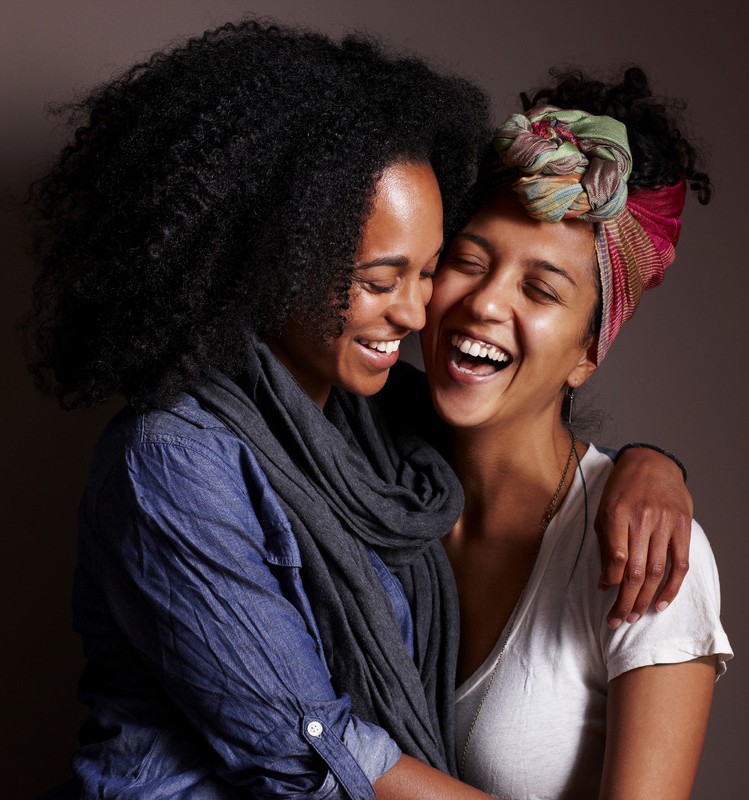
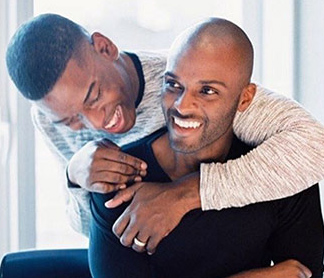
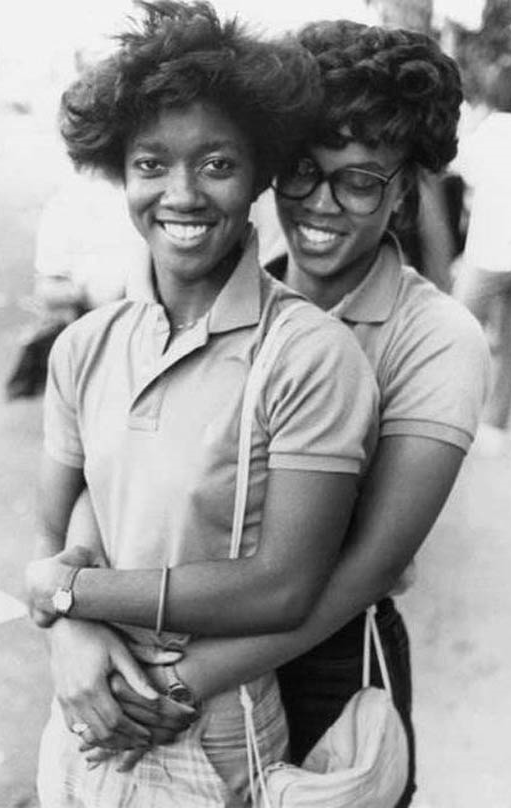
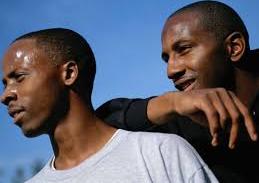
Economic
Insecurity – Although economic conditions in the U.S.
are improving, LGBTQ African Americans continue to be
economically disadvantaged because of persistent
discrimination, housing insecurity, a lack of quality,
affordable healthcare and fewer educational
opportunities. A 2012 report found that "32 percent of
children being raised by Black same-sex couples live in
poverty, compared to 13 percent of children being raised
by heterosexual Black parents and just 7 percent being
raised by married heterosexual white parents."
Additionally, Black transgender people face severe rates
of poverty, with 34 percent living in extreme poverty
compared to just 9 percent of non-transgender Black
people.
Violence & Harassment – According to a 2014 report on
hate violence against LGBTQ and HIV-affected
communities, Black survivors of hate violence were 1.3
times more likely to experience police violence than
their non-Black counterparts. Black survivors were also
twice as likely to experience any physical violence,
twice as likely to experience discrimination and 1.4
times more likely to experience threats and intimidation
during acts of hate violence. Additionally, Black
transgender women face the highest levels of fatal
violence within the LGBTQ community and are less likely
to turn to police for help for fear of revictimization
by law enforcement personnel. According to the National
Transgender Discrimination Survey, 38 percent of Black
transgender people who interacted with police reported
harassment; 14 percent reported physical assault from
police and 6 percent reported sexual assault. Such high
rates of revictimization by police is a major barrier to
dealing with anti-transgender violence.

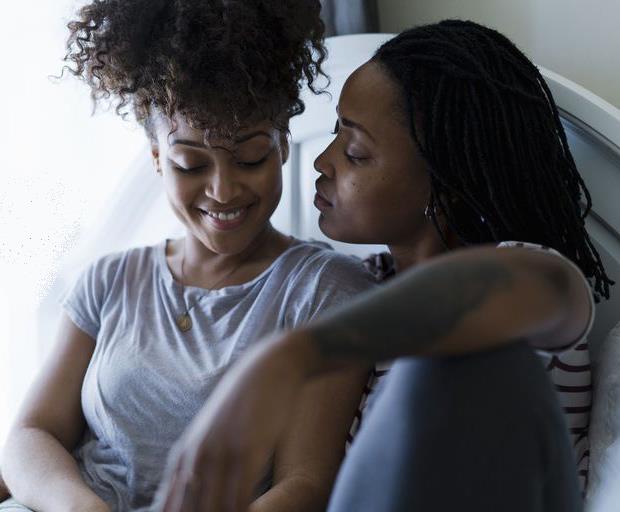
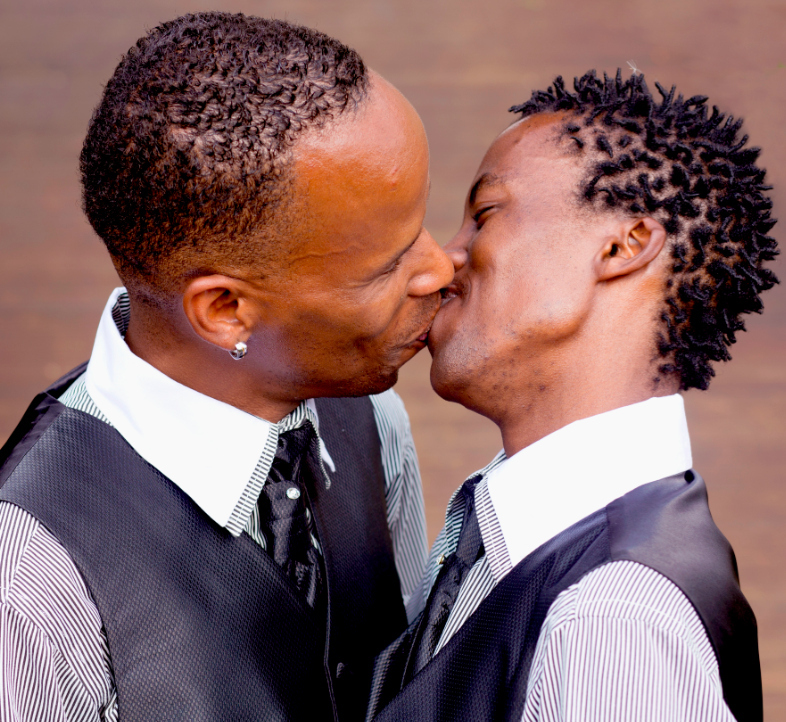
Kehinde Wiley: Painter of President Obama Official
Portrait
Moorehouse College Now Accepting Trans Men
Short Film: Who I Am
Video Interview: Black, Christian, Lesbian
Beautiful Wedding: Gina and Angie
National Black Justice
Coalition
Brown Boi
Project: Communities of Color Talk About Gender
What It's Like to Grow Up Gay and Black
LGBTQ African American Stories
HIV &
Health Inequity – According to the Centers for Disease
Control and Prevention, young, Black gay and bisexual
men are among the communities most heavily affected by
HIV. In the city of Atlanta, for example, a young, Black
gay man now has a 60 percent chance of becoming
HIV-positive by the age of 30 even though Black gay and
bisexual men are more likely to engage in safer sex
practices than their white counterparts.
Religious
Intolerance – While LGBTQ African Americans identify
with various faith traditions, the Christian church
remains a source of both hope and trepidation for many,
but acceptance of LGBTQ people is increasing in
communities of faith. For example, according to the
Public Religion Research Institute, support for marriage
equality increased from 23 percent to 38 percent among
Black Protestants between 2013 and 2014.
Criminal Injustice – A number of recent, highly
publicized cases of police brutality and misconduct have
highlighted how broken our criminal justice system
really is. Findings from a 2014 U.S. Department of
Justice investigation revealed patterns of excessive
force in the Albuquerque and Cleveland police
departments. Findings of clear racial disparities and
discriminatory intent were also revealed in a 2015 study
of Ferguson, Missouri, which became a site of major
protests following the police shooting of unarmed Black
teenager Michael Brown in 2014. Additionally, data from
the 2011 National Transgender Discrimination Survey
found disproportionately high rates of arrest and
incarceration among Black transgender people when
compared to all other racial and ethnic groups.
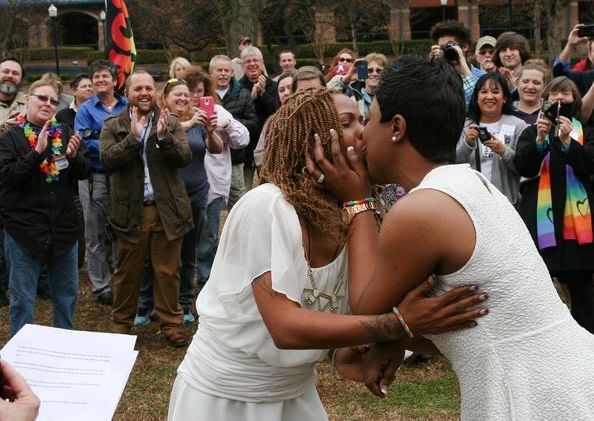
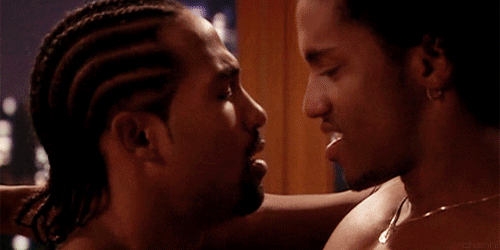
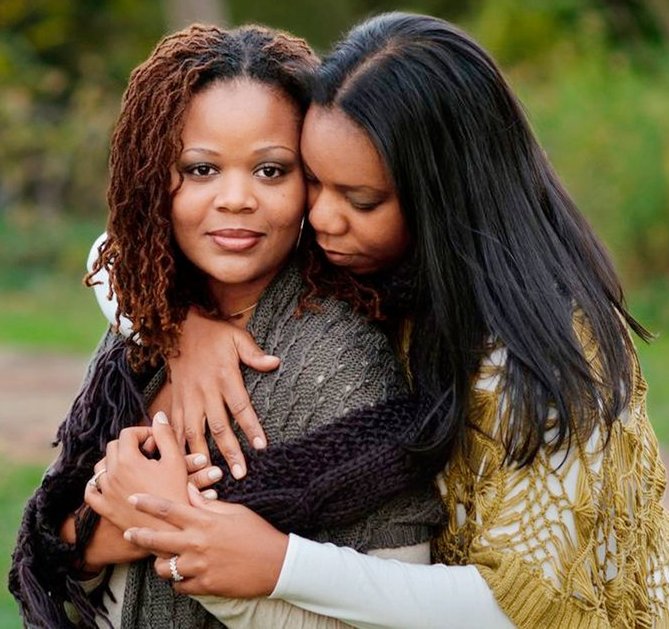
Redefining What It Means to be a Gay Black Man
Black and LGBTQ:
Approaching Intersectional Conversations
Slideshow: Black LGBTQ
People in History
PBS Video: Boundless Black Masculinity
Coming Out as a Black Transgender Woman
LGBTQ African American Celebrities
Essence: Liberated and Loved
Mia and Pauline
Black Gay Men You Should Know (2)
Derrick Gordon: Black LGBTQ Basketball Player
Info: Discrimination,
Prejudice, Bigotry
Annisa and Grace
HRC: Being African American and LGBTQ
MAP: Talking About LGBTQ Equality With African Americans
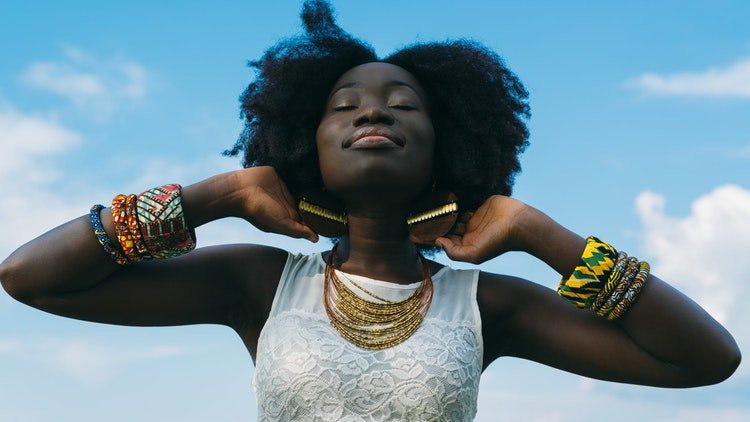
Kehinde Wiley: Black Gay Artist
Short Film: Who I Am
Students Explain: Being
Queer, Black and Proud
Tia and Nadine
Black Gay Christians Speak Out
Janelle Monae: Queer Black
Woman
Black Queer Films To Watch This Black
History Month
Black Lesbians You Should Know (2)
Holler If You Hear Me: Black and Gay in the Church
Info: Black Gay Drag Slang
Masicka: Blessing
James Baldwin: Speaking on Dick Cavett Show
Advocate: Homophobia in the Black Community
Gay Pride: Are Black Gay Men Proud?
Feminista Jones: Black Feminism
PBS Video: Surviving Racism and Cancer as a Queer Black
Woman
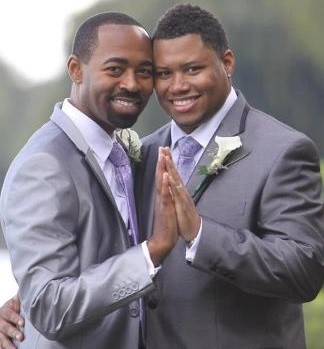
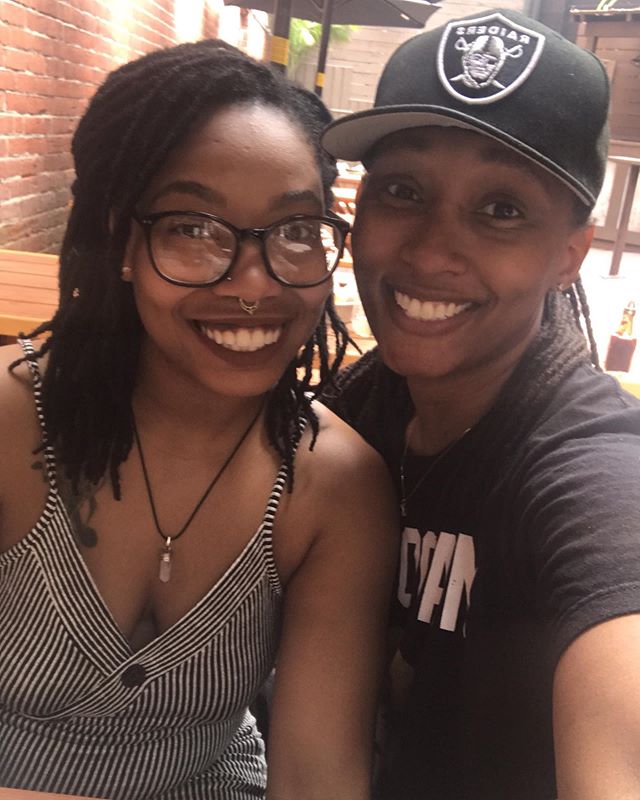
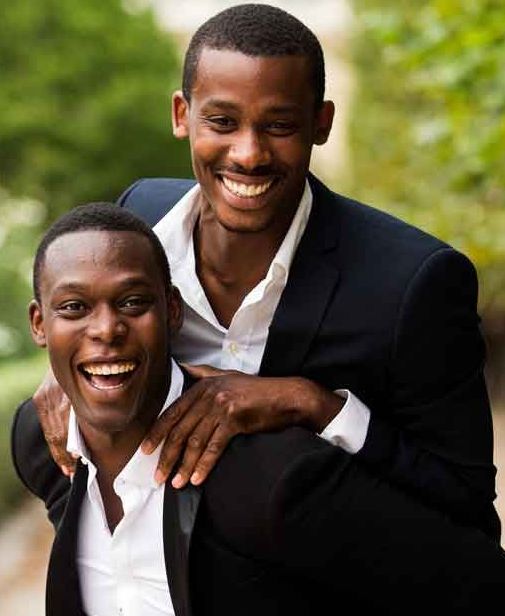
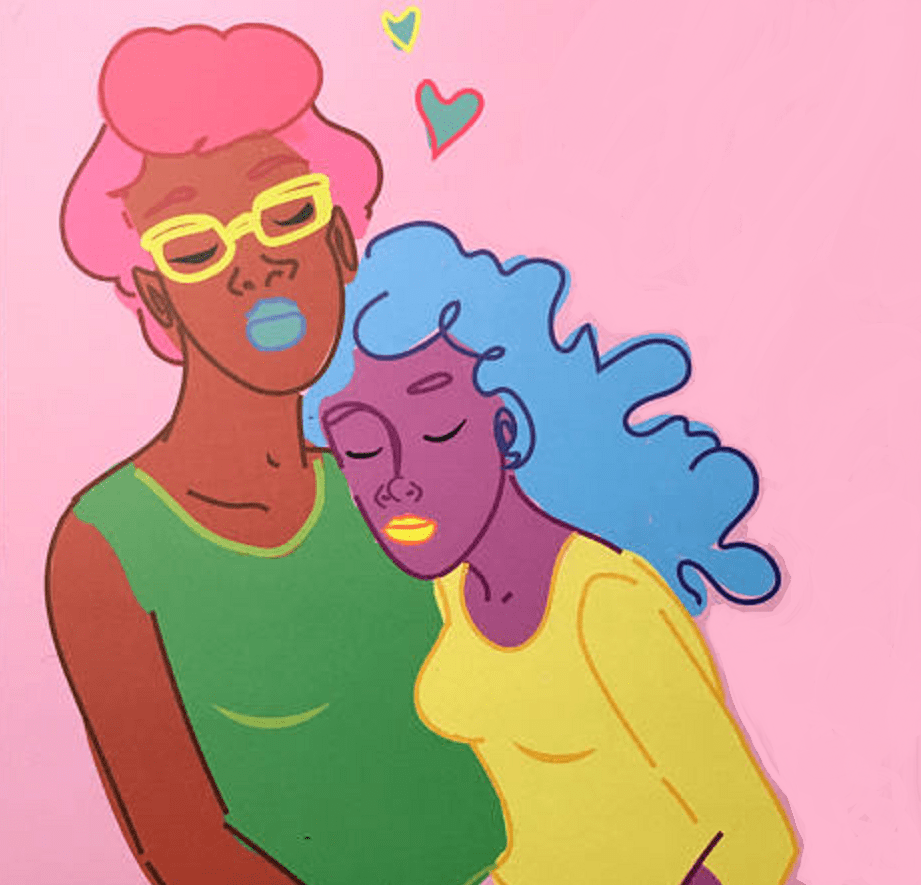
Black Queer Love
Black Queer Love: The Beginning
Black Queer Love: Coming Out
Black Queer Love: Intimacy and Infidelity
Queer and Black
in America Today
What does
it mean to be Black and queer in America today? Black
LGBTQ leaders joined NBC's "Pride and Protest" town hall
program in June 2020 to address that question.
Advocates and leaders at the intersection of the Black
and queer communities discussed issues from the work of
historic gay and trans icons like Bayard Rustin and
Marsha P. Johnson to present-day anti-transgender
violence.
MSNBC anchor Joshua Johnson moderated the special
report, whose guests included "Pose" stars Angelica Ross
and Dominique Jackson, Pennsylvania state Rep. Malcolm
Kenyatta, Minneapolis City Council member Andrea
Jenkins, Tagg Magazine Editor-in-Chief Eboné Bell, Human
Rights Campaign President Alphonso David, journalist
Tre'vell Anderson and activists Tiq Milan, Ianne Fields
Stewart and Ashlee Marie Preston.
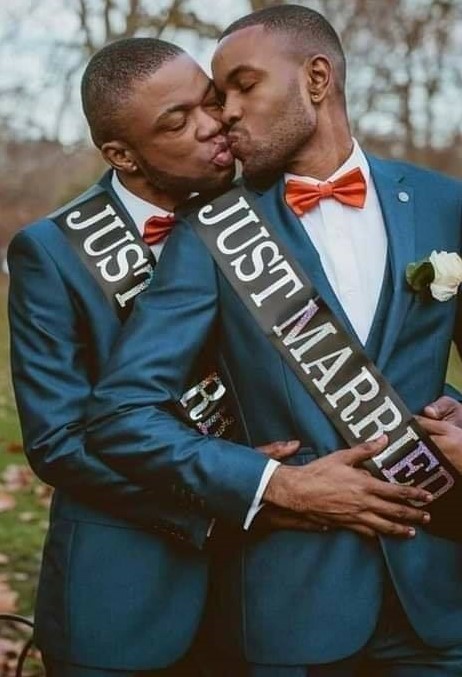
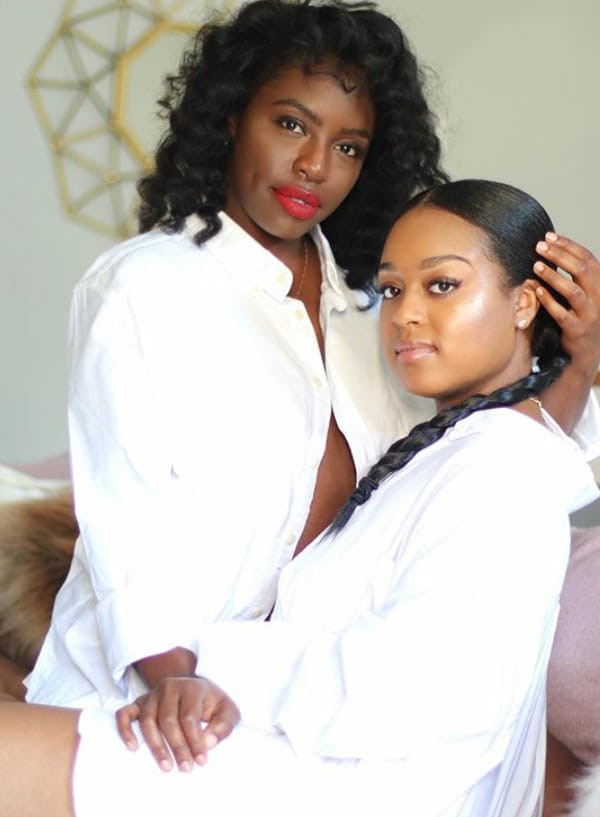
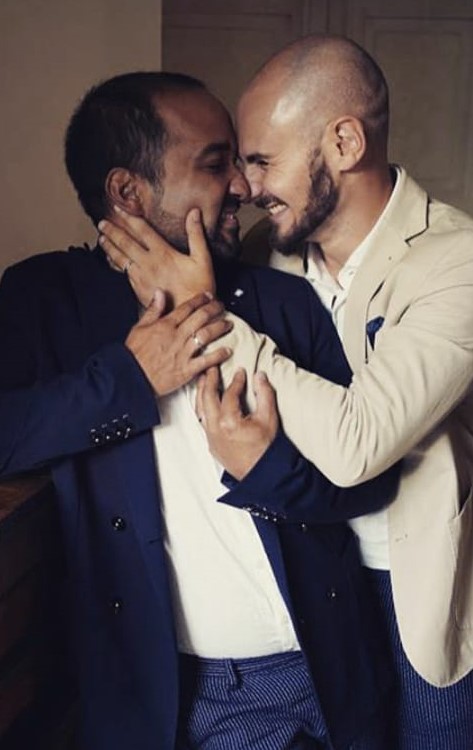
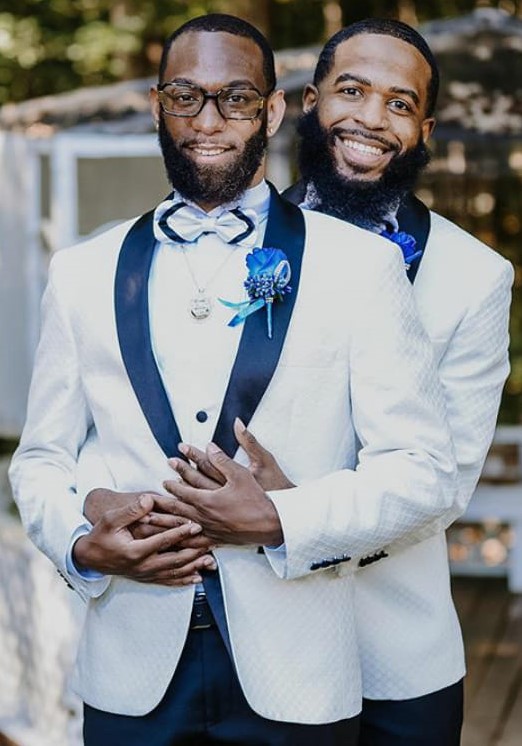
Merging
and broadening the movements
Reflecting
upon the merging of the LGBTQ movement with the
anti-racism protests sweeping the country, David said,
"True liberation is the goal, not only for LGBTQ people,
but for Black people and all people of color in this
country." Kenyatta, a Democrat who represents North
Philadelphia, said protest movements in Pennsylvania
have been critical to efforts to push for change in the
political arena. "Because of folks who, for 19
days now in Pennsylvania, have been out every single day
demanding that we disrupt these systems that have
treated folks who are Black and brown, who are LGBTQ,
who exist on the margins absolutely horribly ... we know
that we need big change," he said.
After a recent protest in Brooklyn, New York, drew an
enormous crowd and highlighted the growing intersections
between the movements for Black lives and LGBTQ rights,
panelists discussed the need to make both movements more
inclusive of each other. "We create a hierarchy of
identity in our various circles, and in some cases ...
if you're a queer person, you have to leave your sexual
orientation or gender identity at the door if you want
to focus on your race or vice versa; we need to create
an environment where you don't have to choose," David
said. "We need, as a society, to recognize identity and
not assign value on certain identities and devalue
others."
David and Johnson, the moderator, referenced as an
example the case of Rustin, the Black gay civil rights
icon who organized the March on Washington in 1963 but
was shunned by some fellow civil rights leaders due to
his sexual orientation.

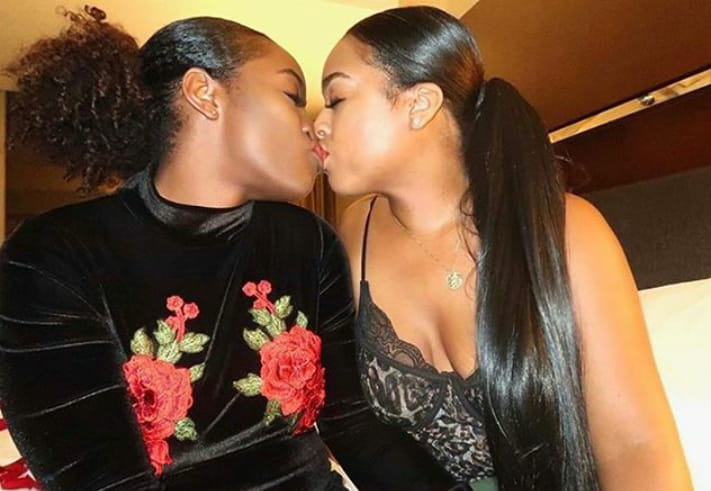
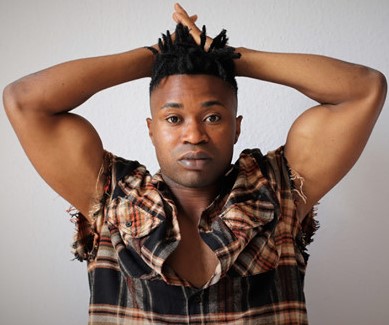
What Does it Mean to Be Queer and Black in America
Today?
Redefining What It Means to be a Gay Black Man
Students Explain: Being
Queer, Black and Proud
Black and LGBTQ:
Approaching Intersectional Conversations
That means
no intersecting identity cancels out or outweighs any
other, Bell said. "We need spaces where we can relate to
people," Bell said. "That's what Black pride does for
Black queer people." Jackson said one way she tries to
be more inclusive is by referring to the community using
the broader LGBTQIA+ community — referring to queer,
intersex and asexual. "Taking the time to just say the
QIA+ will give those people who don't identify under the
L, G, B or the T to feel included," Jackson said.
Bell agreed: "It's time to bring in our other brothers
and sisters and siblings and be inclusive, because we
can't ask for the same thing and leave out a whole other
section of our community." Fields Stewart said that
language, or the lack of it, can work to obscure the
contours of the Black LGBTQ experience. "Black transness
has existed for far longer than we have had language for
it," Fields Stewart said.
"There's always that person, that auntie, that uncle,
that someone ... there's always someone who's in the
community who's 'got a little extra sugar in the tank,'
or whatever words we use, so I think there is an
indigeneity in queerness and blackness that we aren't
ready to talk about yet," Fields Stewart said. "It has
always been there."
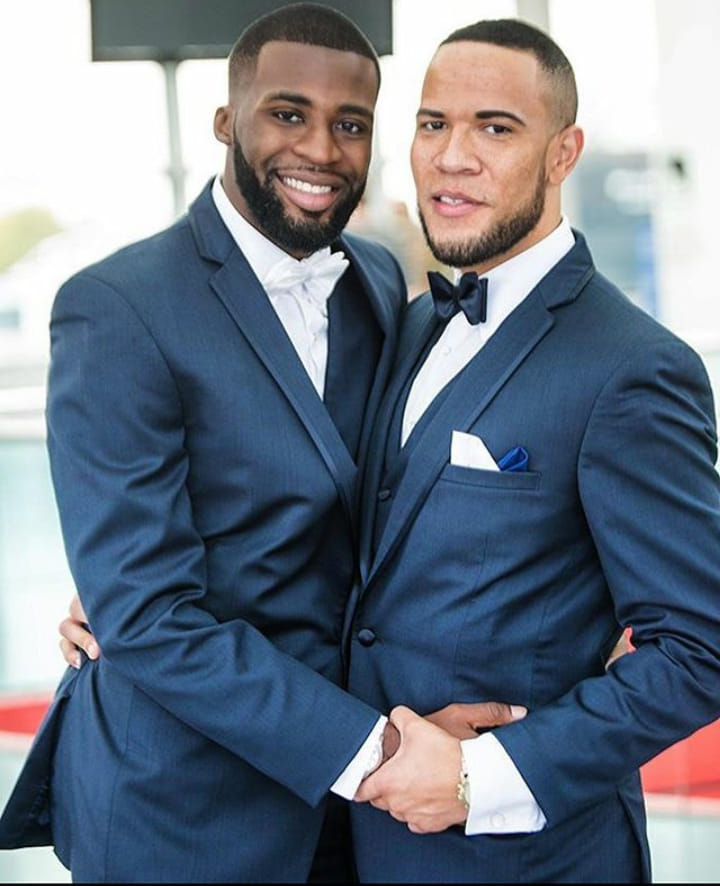
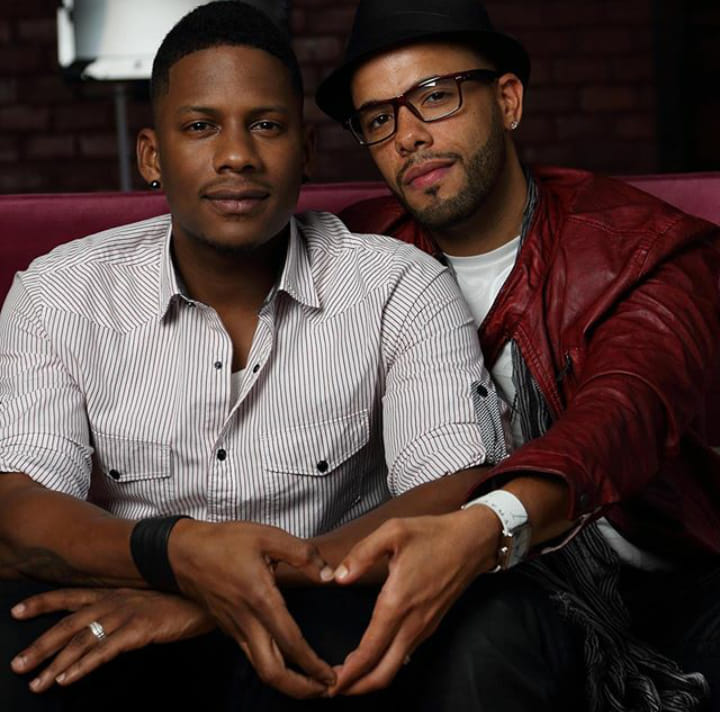
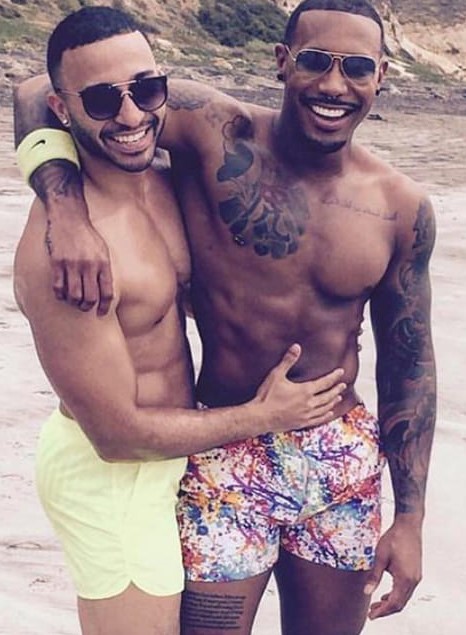
We have
to name that
Even so,
many panelists spoke out against the forces that lead
many Black transgender women's being victimized by Black
men, which Jenkins called a "huge problem."
"I have been on the front lines for Black liberation for
as long as I can remember," Jenkins said. "The fact
remains that many of the murders you described leading
up to this conversation, here in Minneapolis, Iyanna
Dior ... this violence is being brought upon our
community by Black people." "If we are going to
have an honest discussion, we have to name that,"
Jenkins said. Tiq Milan said he often passes as
cisgender, "which offers me a level of autonomy and
safety that sometimes trans women do not get."
"Oftentimes that is because what happens is we are more
inclined to investigate femininity and investigate women
in a way that we don't do to men," Milan said.
Ross echoed the sentiment, saying that despite her
"privilege," gained from her access to Hollywood, "I
have come to understand that my privileges, whatever
they may be, will not protect me." Ross said she still
feels unsafe walking down the sidewalk "through a group
of Black men who go from catcalling me to examining my
femininity a little bit closer and then they saying,
'Wait a minute, that's a man,' and all of a sudden, my
heart rate goes up and I'm not sure if those are the
last words I'm going to hear." Even so, Ross said, the
idea that Black families are more conservative is
"rooted" in white supremacy.
"I know that what's really happening is that so many
mothers and fathers are so concerned about their Black
child's safety, cis or trans," Ross said. "That's why
every Black child gets a talking to about how to survive
in America: what not to do, how to dress, how to talk
... and that extends to the LGBTQ community. They tell
us, 'Why would you want to put one more layer of
oppression or one more difficult thing to get into this
world? Don't you understand how the world is going to
treat you?'
[Source:
Tim Fitzsimons, NBC News, NBC Out, June 2020]
Black and LGBTQ:
Approaching Intersectional Conversations
Slideshow: Black LGBTQ
People in History
Black Gay Men You Should Know (2)
PBS Video: Boundless Black Masculinity
Coming Out as a Black Transgender Woman
HRC: Being African American and LGBTQ
Black Lesbians You Should Know (2)
Gladys Bentley
Gladys
Bentley (1907-1960) was bullied by her classmates and
ostracized by her family for being an overweight tomboy.
At 16, she packed up to leave her hometown of
Philadelphia and headed to Harlem. When she first
arrived, she made her money singing and playing the
piano at private parties.
But when
she heard that the local gay bar was looking for a male
pianist, Gladys knew what she had to do. She donned a
tuxedo and top hat and took the gig for $35 a week. Her
talent for mixing popular tunes with her own raunchy
lyrics soon attracted record crowds and once wealthy
white people started showing up, management tripled her
pay. Eventually, she was successful enough to live in a
Park Avenue penthouse with, in her words, "servants and
a nice car."
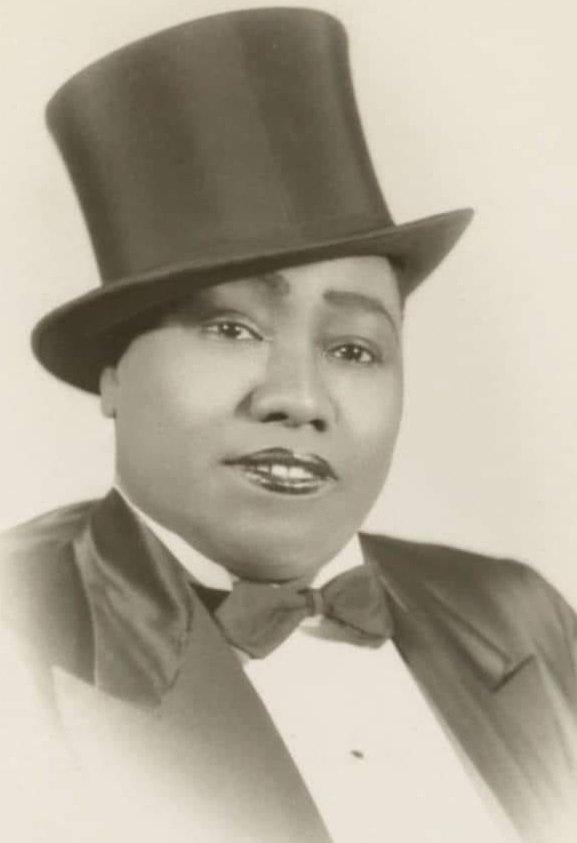
Gladys'
performances were overtly gay. She loved to show off her
glamorous girlfriends and she openly flirted with women
in the audience. Her cabaret show at the Ubangi Club
even featured a cast of drag queens. She never hid the
fact that she was lesbian and was happy to tell the
press that she had married a white woman.
But with
the end of the Harlem Renaissance and the beginning of
the Great Depression, tolerance for LGBTQ people began
to wane. Gladys once again packed her bags; this time
her destination was California. There, she continued to
play in gay clubs and make records but she never
achieved the level of success she had enjoyed in New
York.
In the 1940s and 50s, McCarthyism threatened the
livelihoods of LGBTQ people. The so-called "lavender
scare" saw LGBTQ people as a threat to American values
as well as to national security because it was thought
they were easily manipulated. So, LGBTQ people were
often blacklisted or even arrested.
Afraid of
prosecution, Gladys hung up her top hat and started to
wear dresses. She published a desperate article in Ebony
magazine titled "I am Woman Again," in which she claimed
to have cured her homosexuality by undergoing female
hormone treatments. She went so far as to marry a man,
only to later have him deny the marriage ever took
place. Sadly, Gladys died of pneumonia before the start
of the gay rights movement. Although she had once been
so proud of her queerness, Gladys was forced to spend
the end of her life in the closet.
Great Blues Singer Gladys Bentley Broke All the Rules
Famous Black Lesbians You Should Know
Queer Black Trailblazers
Black Lesbians You Should Know (1)
Growing Up Black and Gay in the South
LGBTQ African American Celebrities
Coming Out Black: Black LGBTQ People in History
Gospel Music Would Be Nothing Without
Black Queer and Trans Artists
Things to Know If You Are
QPOC
Beauty of Blackness
Black Gay Men You Should Know (1)
Keith Boykin
Keith
Boykin is a New York Times best-selling author,
assistant adjunct professor of political science at
Columbia University, CNN political commentator,
journalist, actor and public speaker.
Each of Keith’s four books has been nominated for a
Lambda Literary Award, including his most recent book,
For Colored Boys Who Have Considered Suicide When The
Rainbow Is Still Not Enough, which won the American
Library Association Stonewall Award for Nonfiction in
2013.
Educated at Dartmouth and Harvard, Keith attended law
school with President Barack Obama and served in the
White House as a special assistant to President Bill
Clinton, where he was once the highest ranking openly
gay person in the Clinton White House. He also helped
organize and participated in the nation’s first ever
meeting between a sitting president and leaders of the
LGBTQ community.

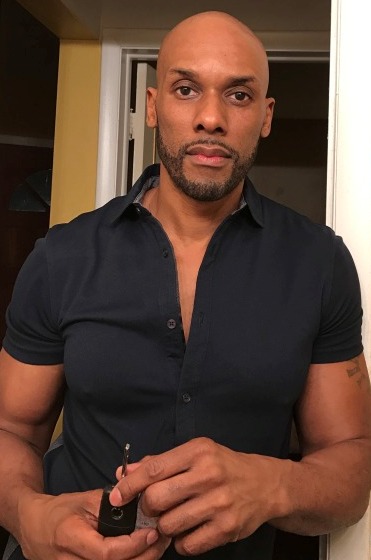
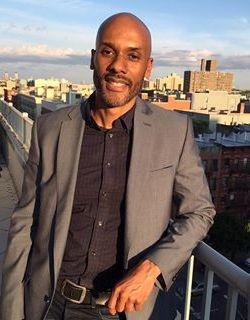
Keith has been actively involved in progressive causes
since he worked on his first congressional campaign
while still a student in high school. He is a veteran of
six political campaigns, including two presidential
campaigns, and he was named one of the top instructors
when he taught political science at American University
in Washington.
He starred on the 2004 Showtime television series
American Candidate, and then became a co-host of the BET
J TV series My Two Cents, where he interviewed
celebrities, politicians, and public figures. A former
CNBC contributor, MSNBC commentator and BET columnist,
Keith is also the former editor of the online news site,
The Daily Voice. He has appeared on numerous national
media programs, including Anderson Cooper 360, The
O’Reilly Factor, The Tyra Banks Show and The Tom Joyner
Morning Show.
A founder and first board president of the National
Black Justice Coalition, Keith has spoken to audiences,
large and small, all across the world. He delivered a
landmark speech to 200,000 people at the Millennium
March on Washington and he gave a stirring speech about
the AIDS epidemic in front of 40,000 people in Chicago’s
Soldier Field in July 2006.
Keith was an associate producer of the 2007 feature film
Dirty Laundry and appeared in the 2014 BET drama
series, Being Mary Jane.
His third book, Beyond the Down Low: Sex, Lies and
Denial in Black America, spent four weeks on the New
York Times bestseller list. Keith won the Lambda
Literary Award for his second book, Respecting The
Soul, and his first book, One More River to
Cross, is taught in colleges and universities
throughout the country.
Keith has lived in 12 cities, visited 48 of the 50 US
states, and traveled across four continents. In 1997
President Clinton appointed him, along with Coretta
Scott King and Rev. Jesse Jackson, to the US
presidential trade delegation to Zimbabwe.
Born and raised in St. Louis, Missouri, Keith currently
lives in New York.
Keith Boykin's Website
National Black Justice
Coalition
Wikipedia: Keith Boykin
Keith Boykin on Facebook
Actor and Rapper
Janelle Monae
Janelle
Monáe is further opening up about her sexuality.
Movie fans know her from her roles in the films
Hidden Figures and Moonlight. And, while she
is an accomplished movie actor, she first came to fame
as an R&B singer and rapper. The
32-year-old singer, who released her new album Dirty
Computer in April 2018, spoke to CBS This Morning
about how her late mentor Prince influenced how she
wants to portray her sexuality in music and in the
public eye.
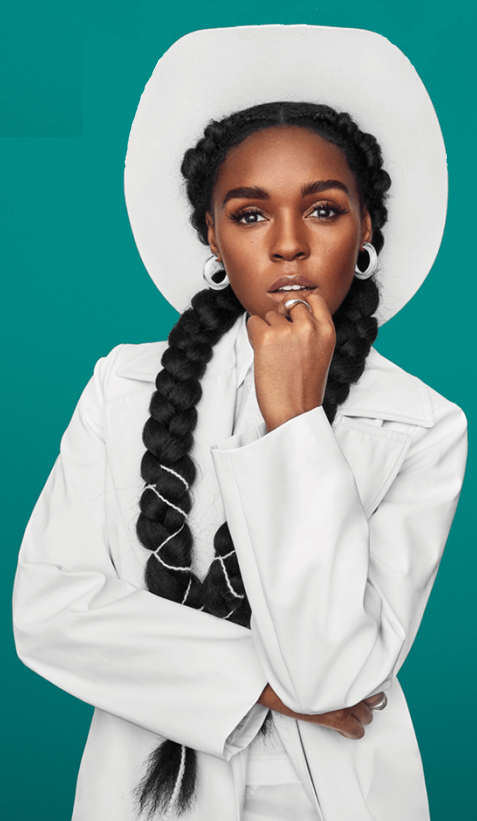
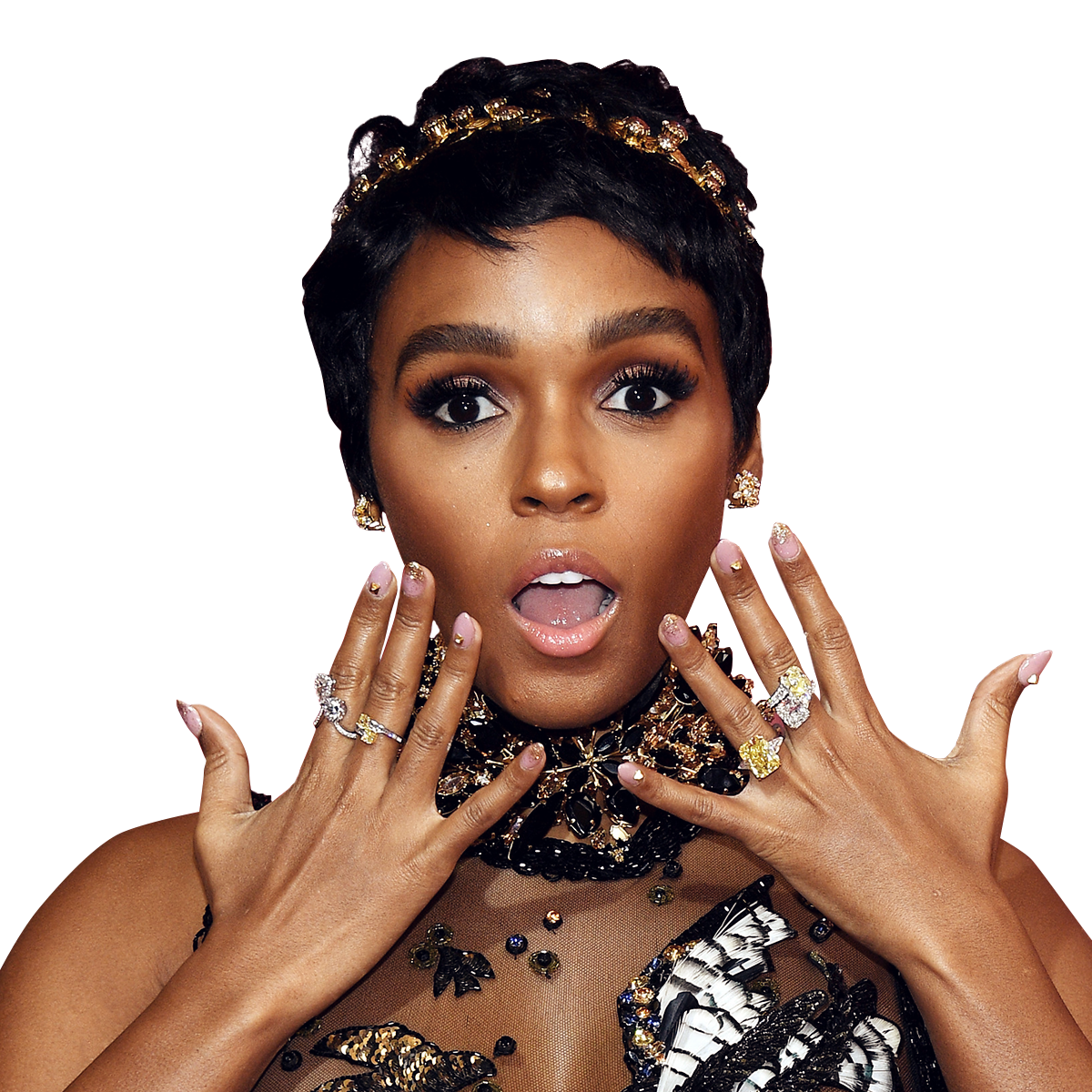
“I think that it’s important for people to be proud of
their identity. I am very proud to be a queer young
black woman in America. I’m proud of who I am,” Monáe
said.
In an interview with Rolling Stone magazine, Monáe revealed
what it’s like “being a black queer woman in America”
and why she doesn’t identify as bisexual. Monae
has described herself as "someone who has been in
relationships with both men and women" and has further
identified as pansexual.
Janelle Monae: CBS Sunday Morning Interview
Dirty Computer by Janelle Monae
Make Me Feel by Janelle Monae
Janelle Monae: Queer Black
Woman
Rolling Stone: Janelle Monae Frees Herself
Django Jane by Janelle Monae
Billboard: Queerest Moments on Janelle Monae's New Album
I Like That by Janelle Monae
Janelle Monae: Growing Up
Queer and Black
Pynk by Janelle Monae
Black, Gay and
Successful in Hollywood
Paris KC Barclay is a gay black man working in
Hollywood as a television director and producer. Born in
1956 in Chicago, Illinois, Barclay has directed over 100
episodes of television to date, for series including
NYPD Blue, ER, The West Wing, CSI, Lost, The Shield,
House MD, Law & Order, Monk, Numb3rs, City of Angels,
Cold Case, and more recently The Mentalist, Weeds, Sons
of Anarchy, NCIS: Los Angeles, The Good Wife, In
Treatment, and Glee.
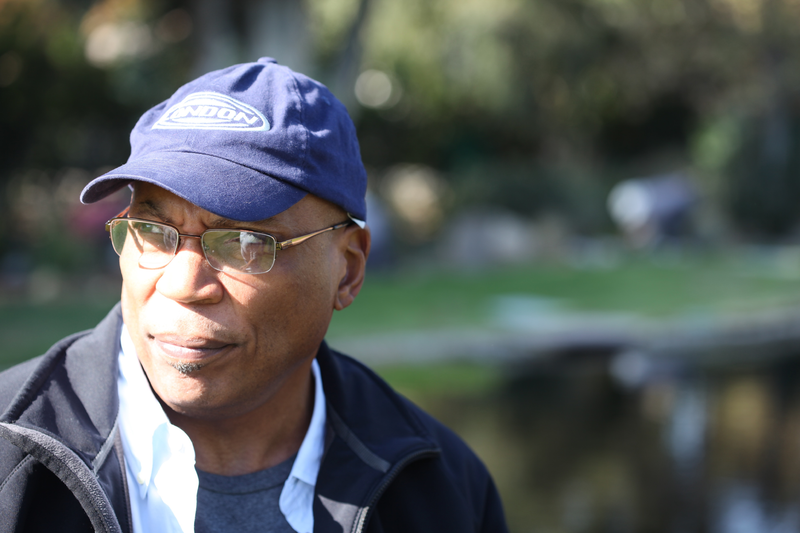
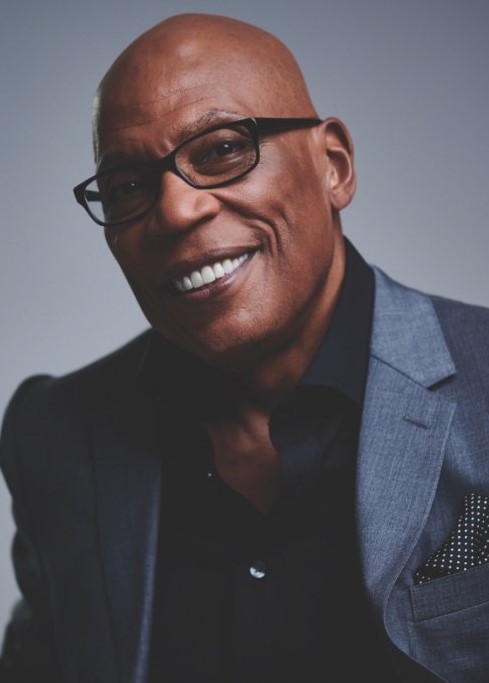
Paris has
won two Emmy Awards as well as a Directors Guild of
America award for directing episodes of NYPD Blue, and
has garnered 10 DGA nominations. He is the first
director in the history of the Guild to be nominated for
a comedy series and drama series in the same year, two
years in a row (2008, 2009). Barclay has also received
an NAACP Image award for Best Drama Series as
co-creator, writer, and director of the groundbreaking
medical drama City of Angels, and another Image Award
for directing Cold Case.
Currently, Barclay is executive producer and principal
director of HBO's In Treatment, now in its third season.
Openly gay since late in his college days, he was a
regular contributor to The Advocate magazine for several
years. Barclay is one of Hollywood's very few openly gay
black decision-makers. He is used to hearing the same
line, repeatedly, when other industry executives see
scripts with queer black characters.
Black Queer Films To Watch This Black
History Month
Black and LGBTQ:
Approaching Intersectional Conversations
Video: Racism in the LGBTQ Community
Black Love: Same Sex Couples' Quest for Marriage
Equality
Pride: Inspiring Queer Black Heroes
Black LGBTQ Short Film: Different Direction
LGBTQ African American Celebrities
Gay Black
Theologian
Horace L. Griffin is an African-American Theologian who
is also gay. He teaches pastoral theology and is
Director of Field Education at the General Theological
Seminary of the Episcopal Church. An ordained priest in
the Episcopal Church, USA, Griffin also serves as an
associate at All Saints' Episcopal Church in Glen Rock,
NJ.
In 1990,
Griffin began his professional career as a college
professor at the historical black Fisk University while
completing his Ph.D. at Vanderbilt. At Fisk, he chaired
the Department of Religious and Philosophical Studies
from 1993-1996, becoming the first openly gay Department
chair in the University's 127 year history. In 1992, he
received the "Professor of the Year Award" for the
Division of Humanities and Fine Arts.
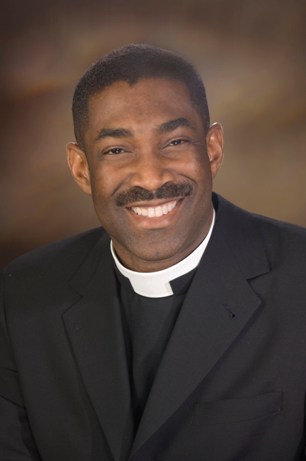
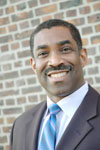
During
this period, he also co-chaired the Lesbian and Gay
Coalition for Justice, a civil rights organization for
gay citizens in Nashville and Middle Tennessee. Griffin
has a Bachelor of Arts in Religion degree from Morehouse
College in Atlanta, a Master of Divinity from Boston
University School of Theology in Boston, and a PhD in
Philosophy from Vanderbilt University Graduate
Department of Religion in Nashville.
As a graduate student concentrating in gender and
sexuality issues, he developed a slide presentation
addressing black pastoral issues and the AIDS epidemic.
Called "Couldn't Hear Nobody Pray," the presentation
became a teaching tool for black pastors at conferences
and in black faith communities. As a result of his AIDS
work, Griffin was invited to serve as a board member
(1994-1996) of Nashville Cares, an AIDS agency for the
Greater Nashville community.
In 1996,
Griffin joined the religious studies faculty at the
University of Missouri-Columbia as Assistant Professor
of African-American Religions. He taught courses on
African-American religions, religion and human sexuality
and religion and homosexuality. In 1999, Griffin
resigned, in part, because the university president and
administrators refused to include sexual orientation in
the university's non-discrimination policy. Later that
year, he accepted a position as Assistant Professor of
Pastoral Theology at Seabury-Western Theological
Seminary in Evanston, Illinois, where he taught courses such
as Pastoral Care and Congregations, Sexuality and
Pastoral Care, and Cross Cultural Pastoral Care. He also
directed the Chicago Collegiate Seminarians Program, a
Lilly funded grant for college students considering
ordained ministry.
Griffin has published numerous articles and essays in
peer journals and anthologies, including "Revisioning
Christian Ethical Discourse on Homosexuality: A
Challenge for the 21st Century" in the Journal of
Pastoral Care, and "Toward a True Black Liberation
Theology: Affirming Homoeroticism, Black Lesbian and Gay
Christians and their Relationships" in Loving the Body:
Black Religious Studies and the Erotic. His most recent
work, "Black Machoism and Its Discontents" will be
published in 2008 in Face to Face: A Discussion of
Critical Issues in Pastoral Theology. His first book,
Their Own Receive Them Not: African American Lesbians
and Gays in Black Churches (Pilgrim Press 2006) was
awarded the 2006 Lambda Literary Award in LGBTQ studies
in the spring of 2007. This groundbreaking work also
received a Stonewall Award nomination. The LGBTQ African
American Roundtable convened a panel of scholars and
clergy offering a critical examination of the book at
its 2007 annual meeting. In its second printing, Their
Own Receive Them Not is a useful text currently being
studied and discussed in college and seminary classrooms
and black faith communities.
Chef Michael Twitty: Unites His Black and Jewish
Heritage With Food
Cory and Davonta: How We Met
Huff Post: Prominent Black LGBTQ Icons
James Baldwin: Speaking on Dick Cavett Show
Tarek Ali: The Truth of a Gay Black Man
Coming Out Black: Black LGBTQ People in History
Trans Sistas of Color Project
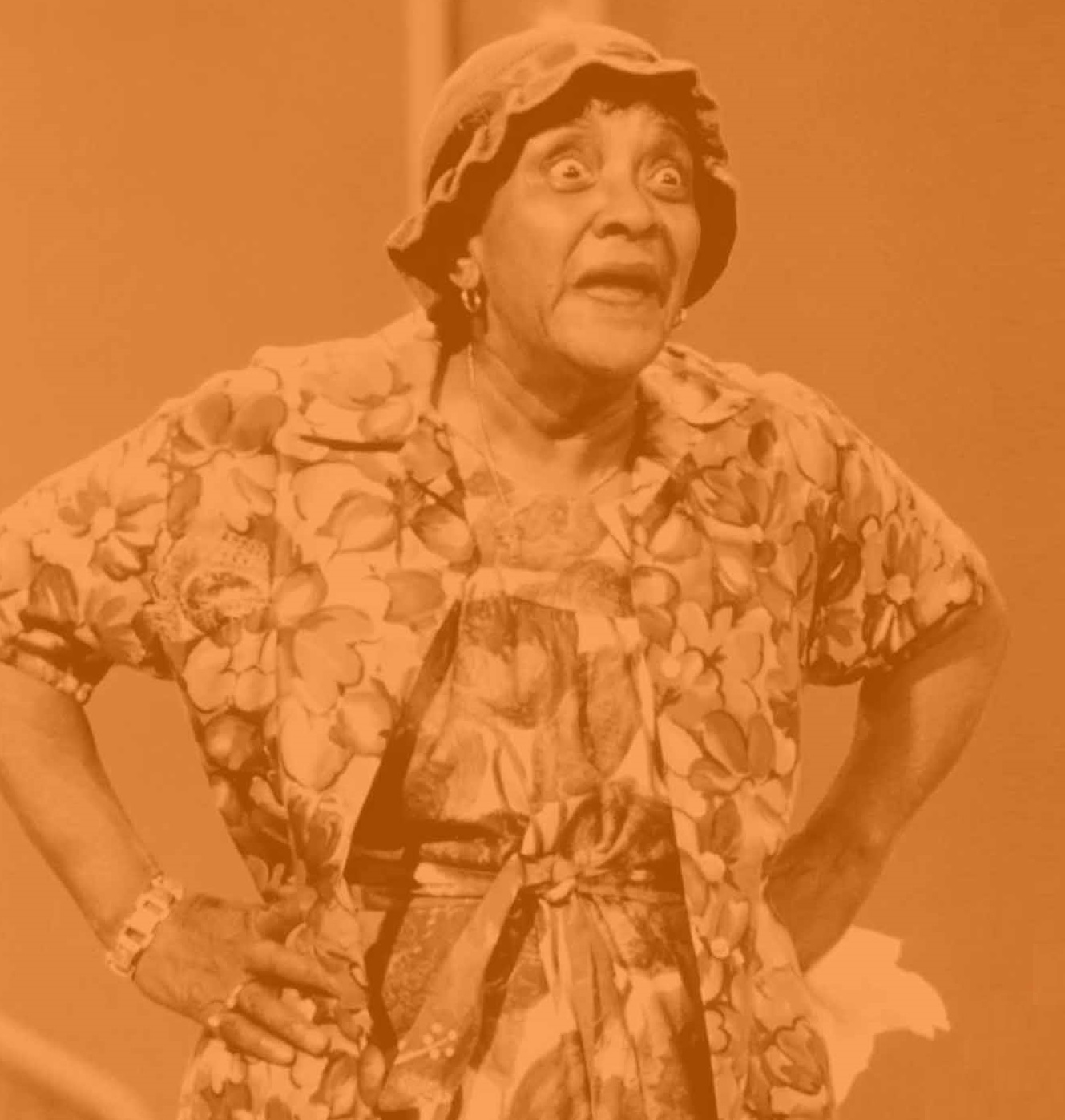
Irrepressible Moms
Mabley
"Black
women. White women. All of them. I'm colorblind. I don't
know the difference. I only know you're a human being.
And you're my children."
-Moms Mabley
The
African-American actress and comedienne Jackie "Moms"
Mabley was born in 1894 and died in 1975. Though she had
four children and five grandchildren, Mabley never
married and she lived most of her life as a Lesbian.
Although
she was not "out" in the modern sense, certainly Moms
Mabley did break taboos and challenge assumptions
throughout her career with her character of an old
woman, who was sexual, savvy, and irrepressible.
The girl
who survived childhood rape to carve out a successful
career in the inhospitable world of show business grew
up to be Moms, who described her television appearances
by saying, "I looked at the world as my children."
Moms
Mabley: Biographical Notes
Comedian Moms Mabley in 1967
Moms Mabley: Legacy Project
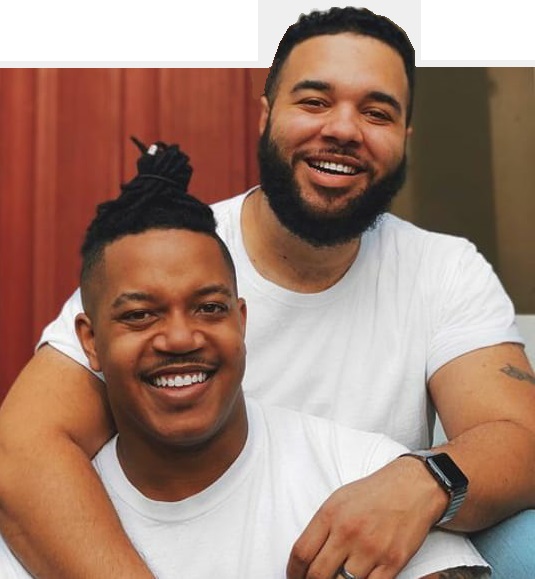
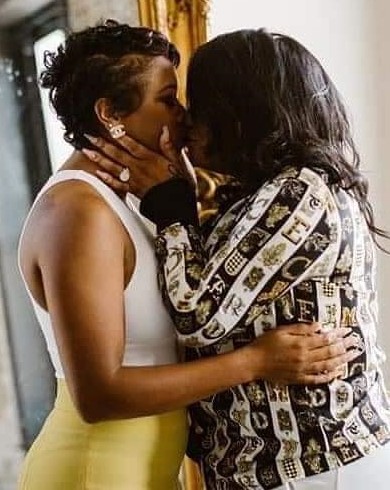
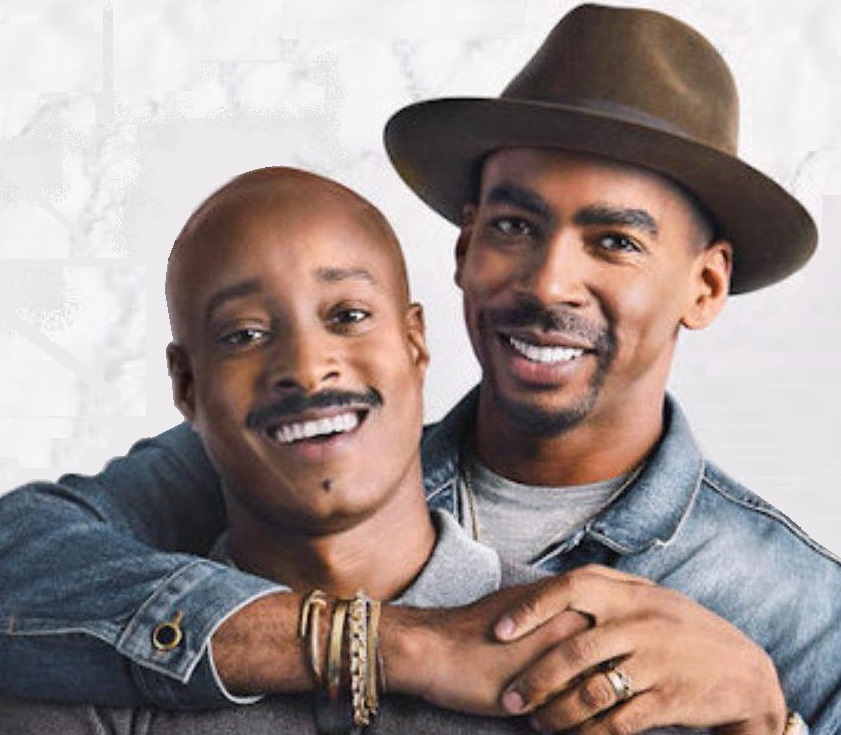
GLAAD: Honoring Black LGBTQ Icons
Advocate: Black LGBTQ Pioneers
What Does it Mean to Be Queer and Black in America
Today?
Things to Know If You Are
QPOC
TED Talk: Misadventures of a Tired Gay Black Man
Brown Boi
Project: Communities of Color Talk About Gender
Our Families: LGBTQ
African American Stories
Gospel Music Would Be Nothing Without
Black Queer and Trans Artists
Black and Gay in New Orleans in the 60s
Info: Discrimination,
Prejudice, Bigotry
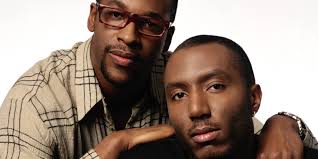
Lena Waithe: My Favorite Black Queer Icons
Queer Blackathon: Black
LGBTQ Book Recommendations
Slideshow: Black LGBTQ
People in History
Beautiful Wedding: Gina and Angie
Video Talk: Black Gay Man Learns to Love Himself
List: LGBTQ African Americans
Oprah and Raven-Simone Talk About Labels
Merging of Two Movements: LGBTQ Pride and Black Lives
Matter
Famous Black Lesbians You Should Know
Ranker: LGBTQ Black Hollywood Celebrities
James Baldwin: Explaining the Riots of 1968
Nobody by Jade Novah and Cynthia Erivo
HOME
QUEER CAFE
│ LGBTQ Information Network │ Established 2017 |